In December 2019, the World Health Organization hosted the Global Vaccine Safety Summit in Geneva, Switzerland.
During that event, Professor Heidi Larson of the Vaccine Confidence Project shared that two of the main challenges to increasing confidence in vaccines are when medical professionals themselves begin to question vaccines, or when they are not able to answer questions from their patients who would like more information:
“We talked about it earlier, some of the challenges are when the front line professionals are starting to question, or they don’t feel like they have enough confidence about the safety to stand up to the person asking them the questions.
I mean, most medical school curriculums, even nursing curriculums, in medical school you’re lucky if you have a half day on vaccines, never mind keeping up to date with all this.”
“…all of this.” What is she referring to? If you spend time watching the rest of the video feed from the Global Vaccine Safety Summit, you’d find out. For example, one of the issues they discuss at another point during the event is the reactogenicity of aluminum adjuvants and the inherent toxicity and harm that is caused by adjuvants in vaccines.
For a rundown of important topics which were covered during this event, I would recommend watching the following video from Del Bigtree’s show called the Highwire:
But, back to the main point.
While millions upon millions of people choose to trust their doctor when it comes to vaccines, authorities at the World Health Organization are openly declaring that doctors and nurses are hardly educated on the subject.
It has been a little over a year since video from this event was originally circulated. A week ago, I re-shared the short clip on Instagram, for those who have not seen it before.
I then posted the following statement to my stories:
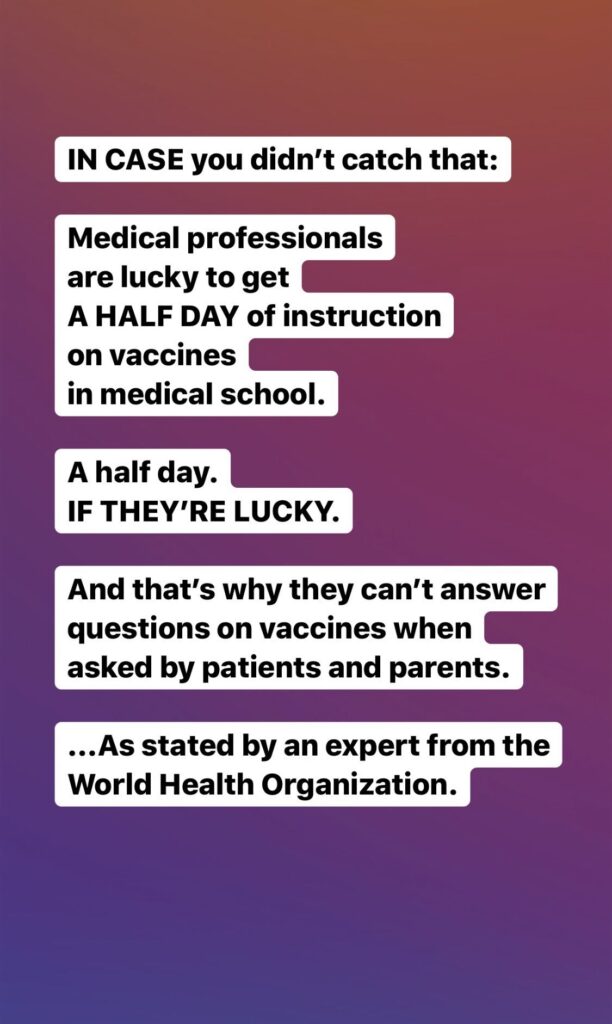
Cue the health care professionals.
I began receiving private messages from nurses, pharmacists, doctors, paramedics, from PhDs, occupational therapists, speech pathologists, a microbiologist, family members of medical professionals, and more.
They shared what was taught – and what they did not learn – in their nursing programs, in medical school, etc. In total I received 85 messages. I have covered up profile pictures in order to protect these individuals in case they did not want to be identified, and any words relating to vaccines or COVID have been crossed out since these trigger “fact checkers” on Facebook, since I plan to share there as well.
Here’s what they said:
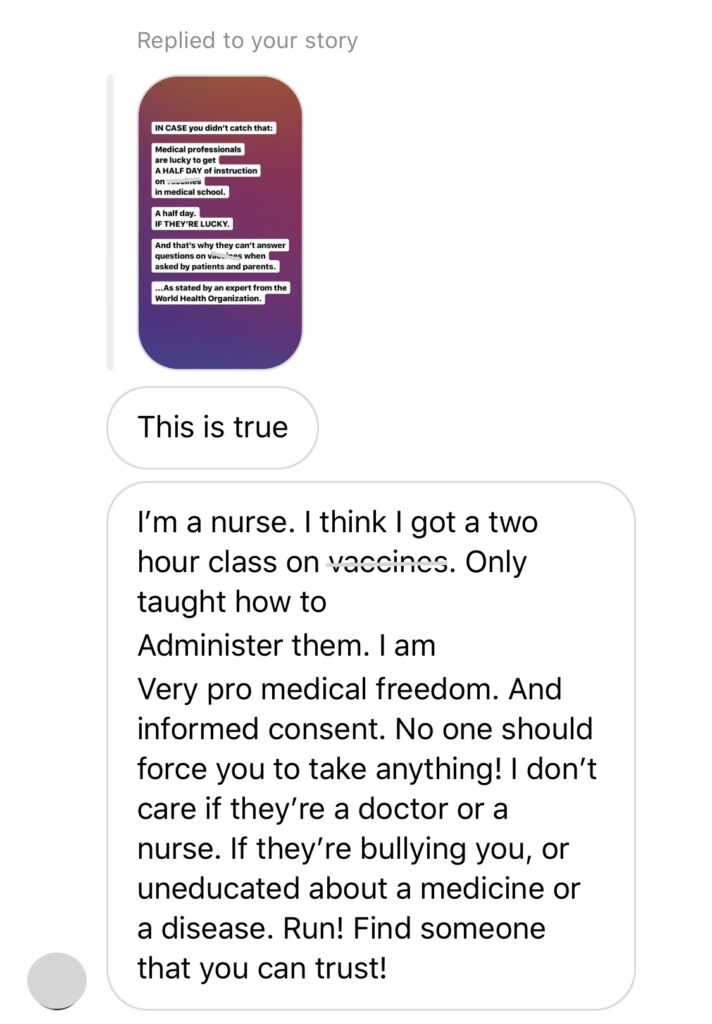
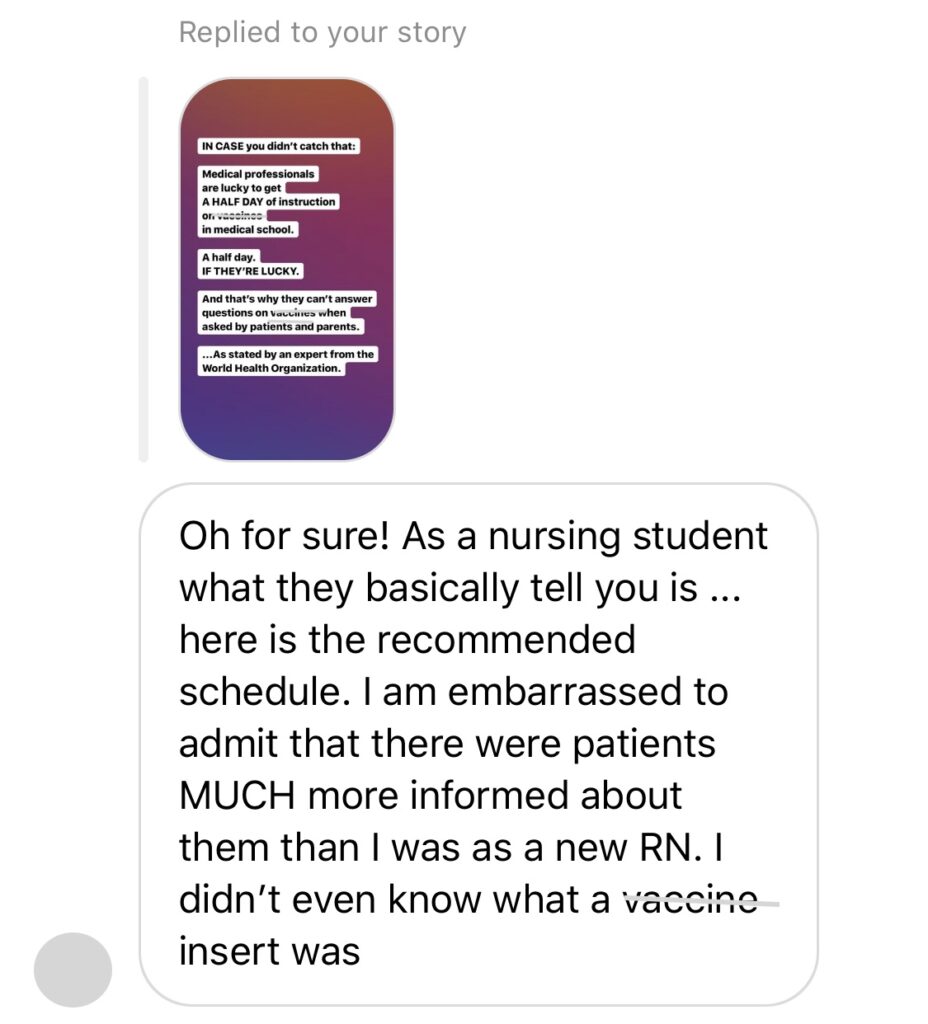
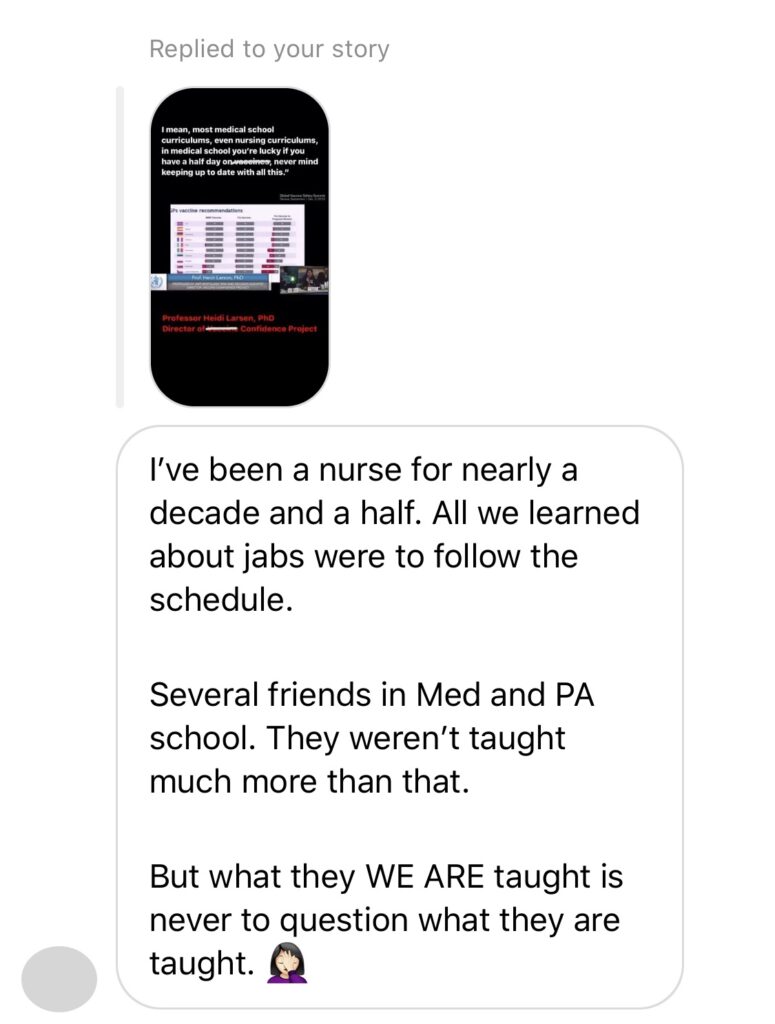
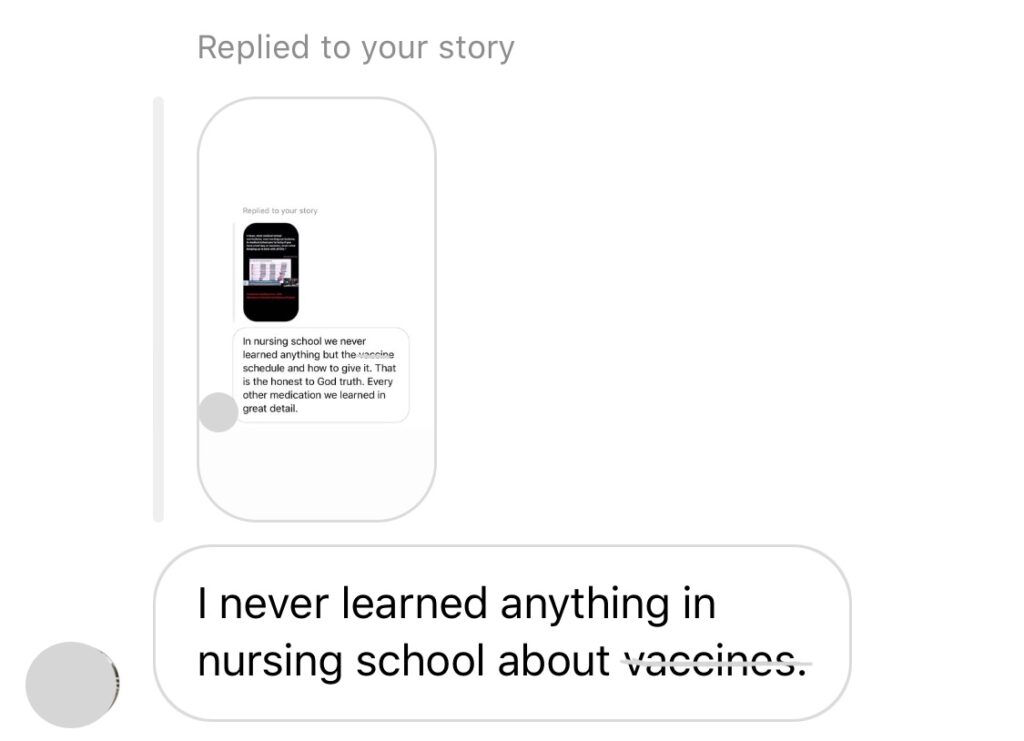
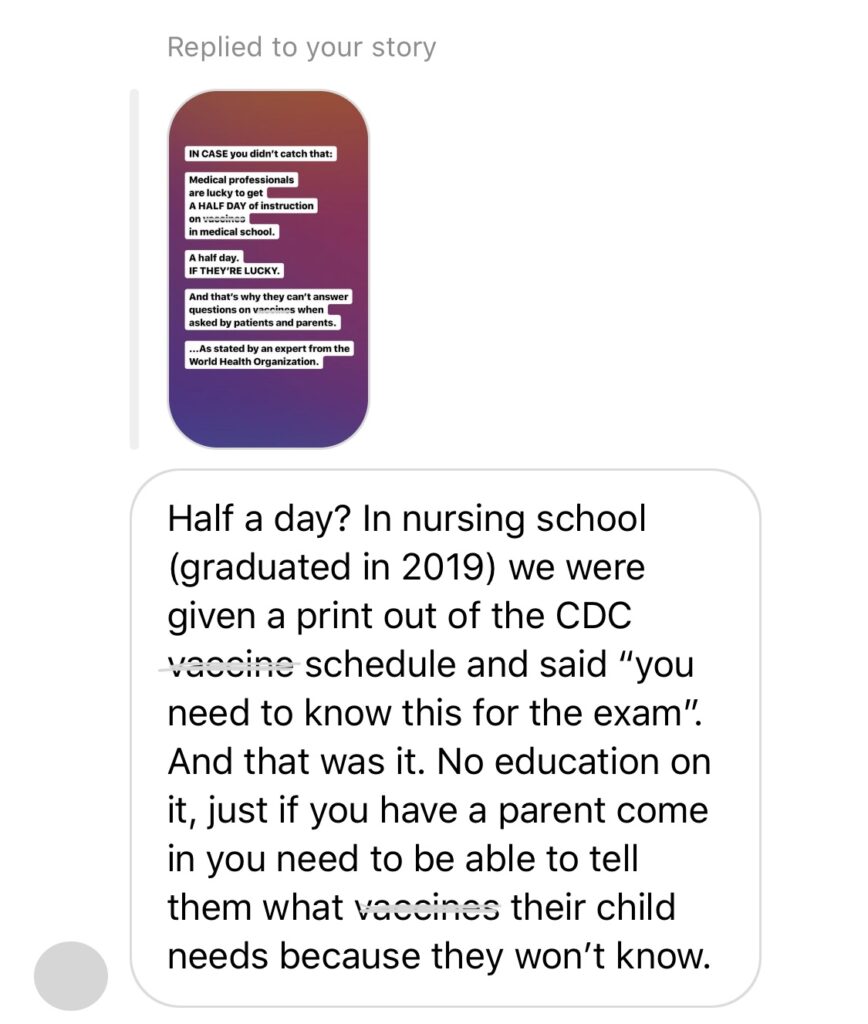
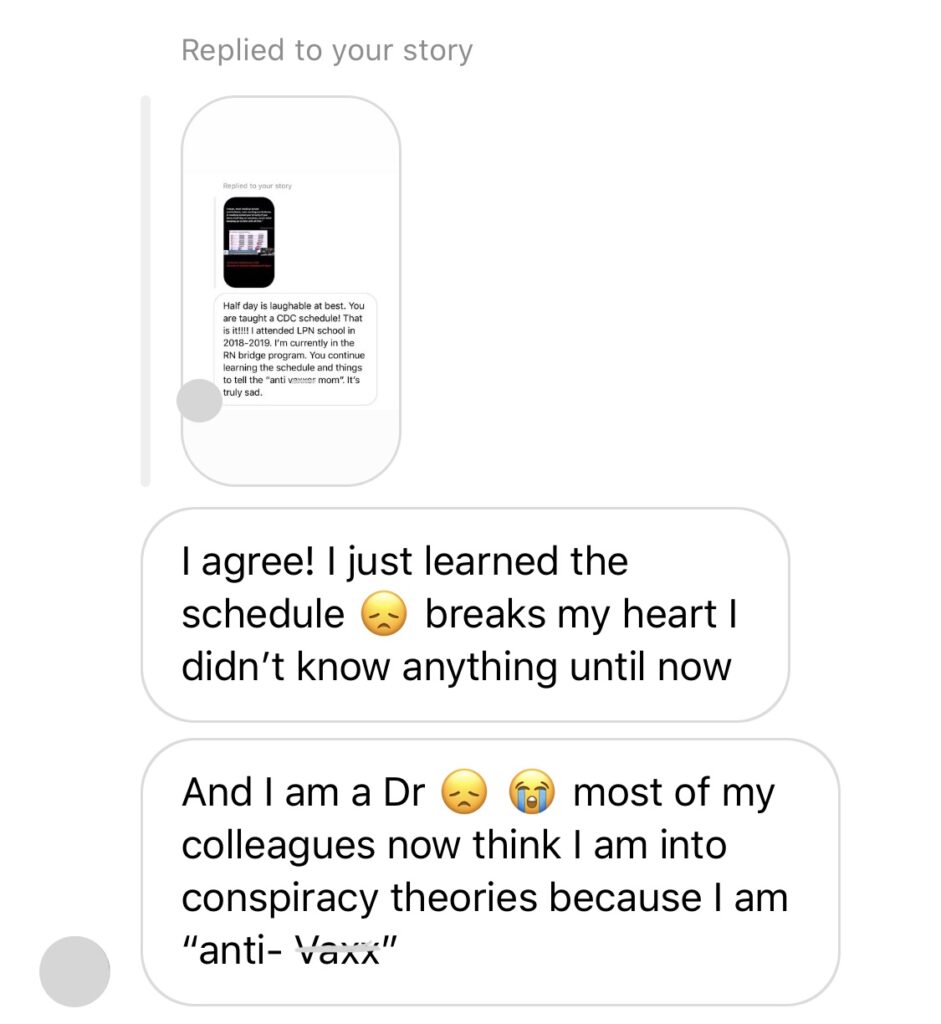
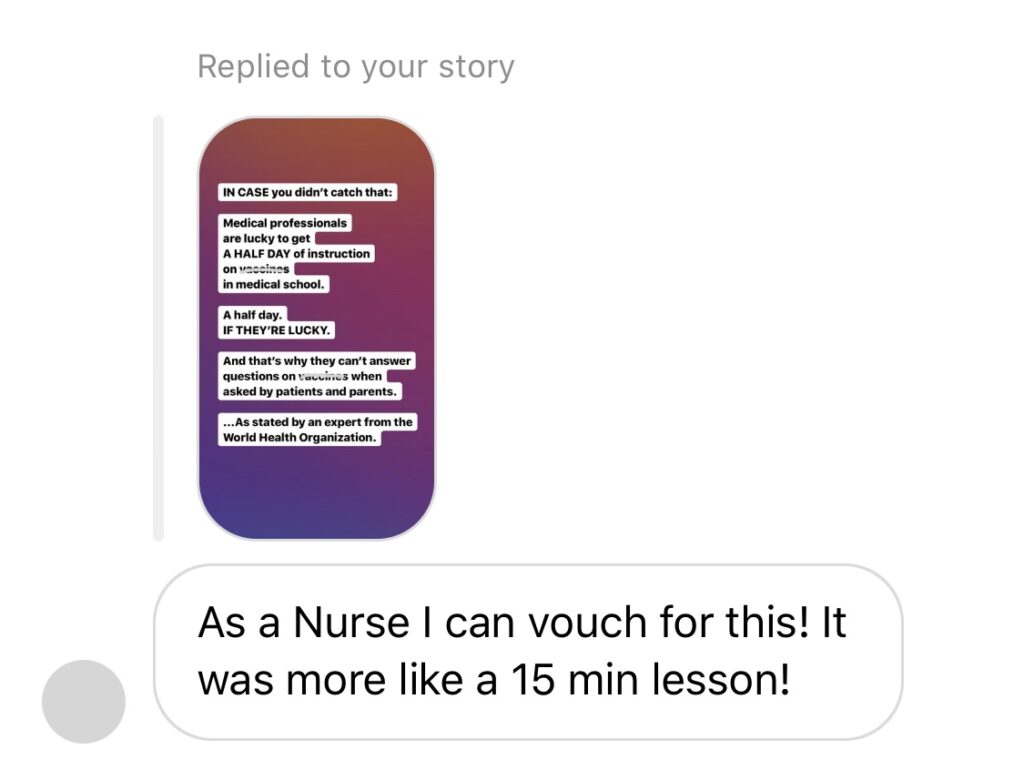
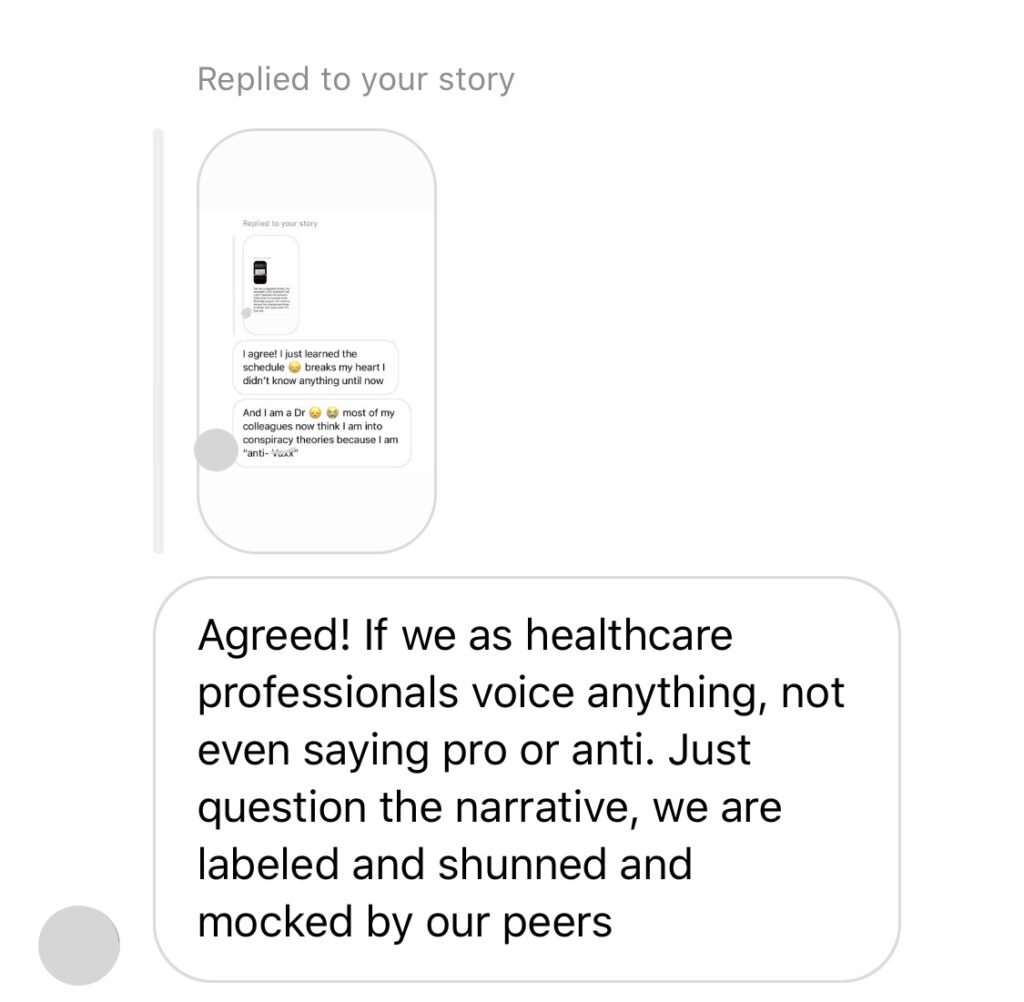
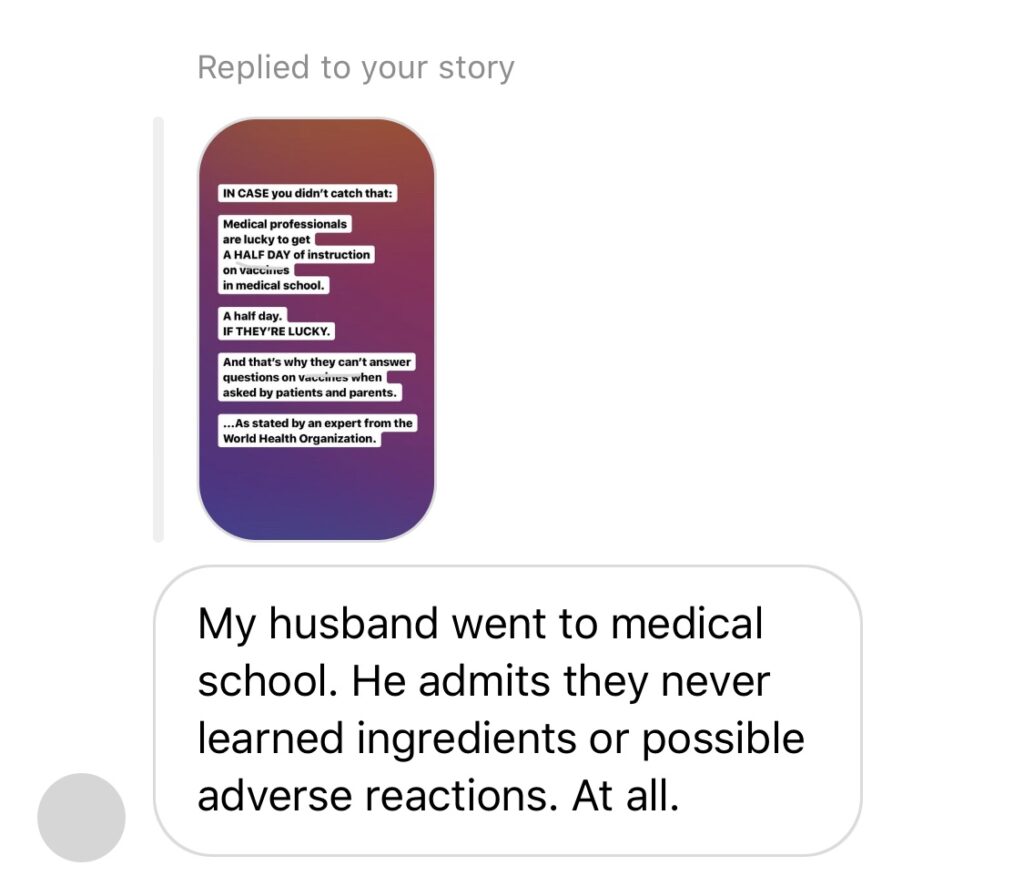
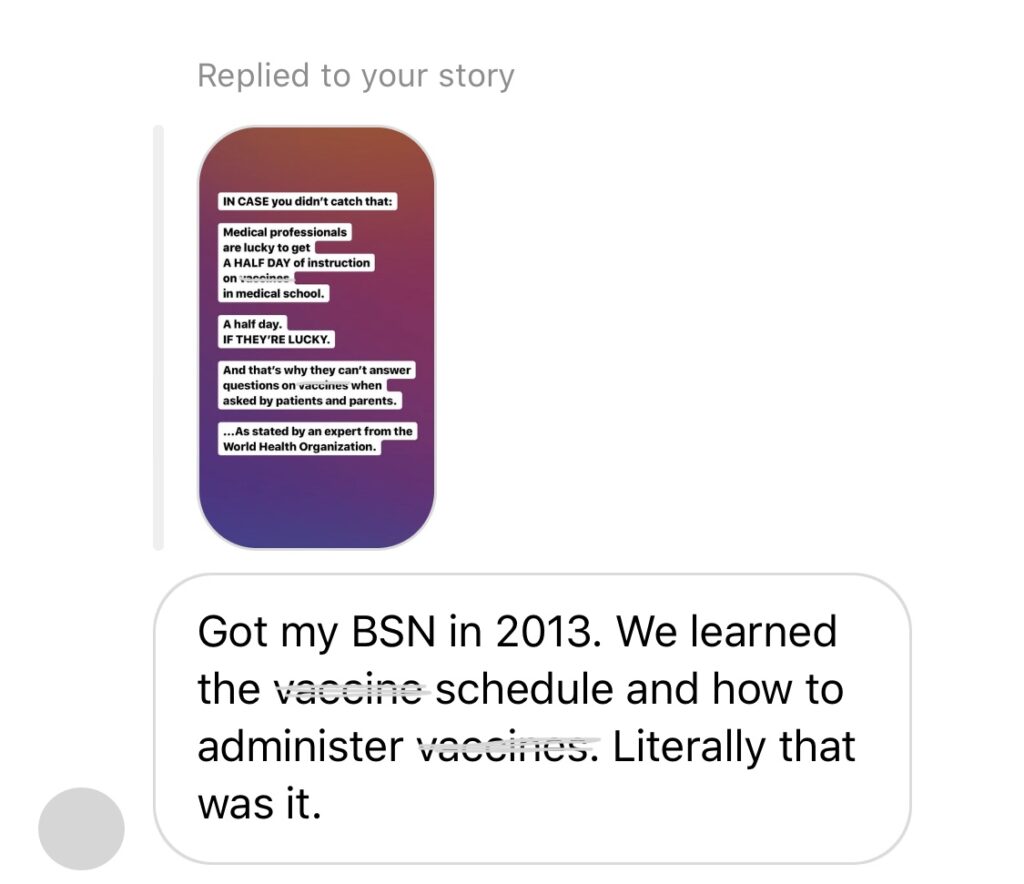
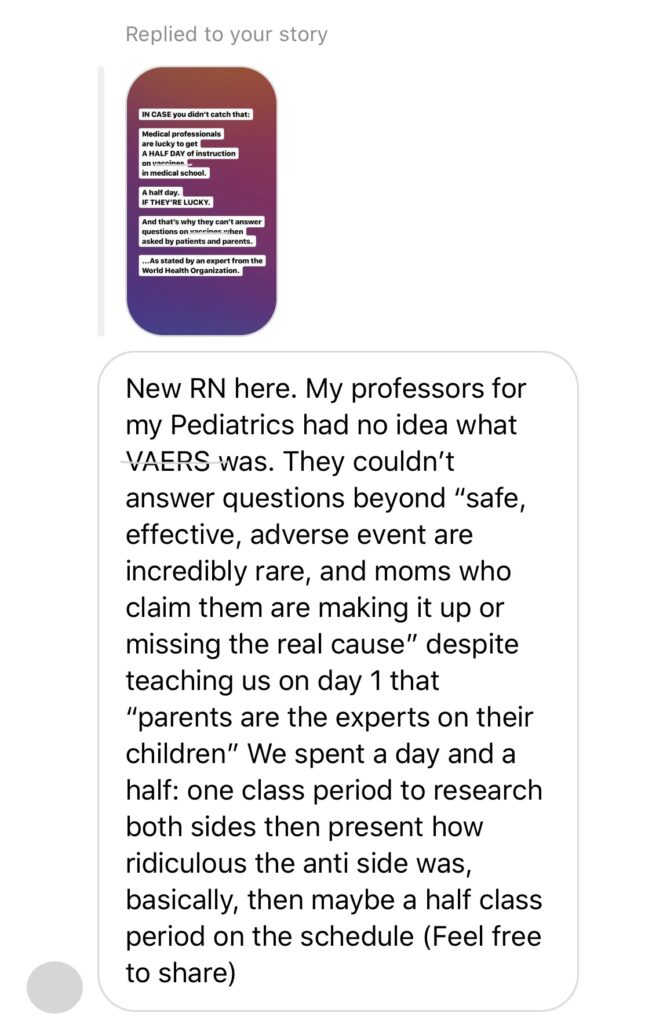
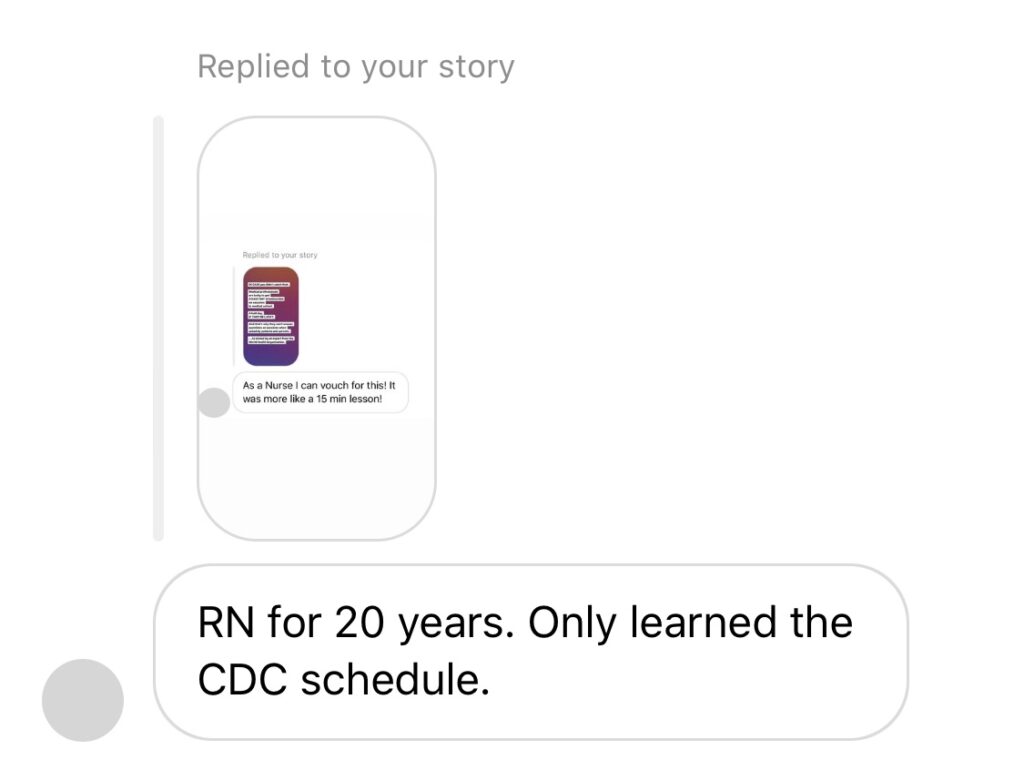
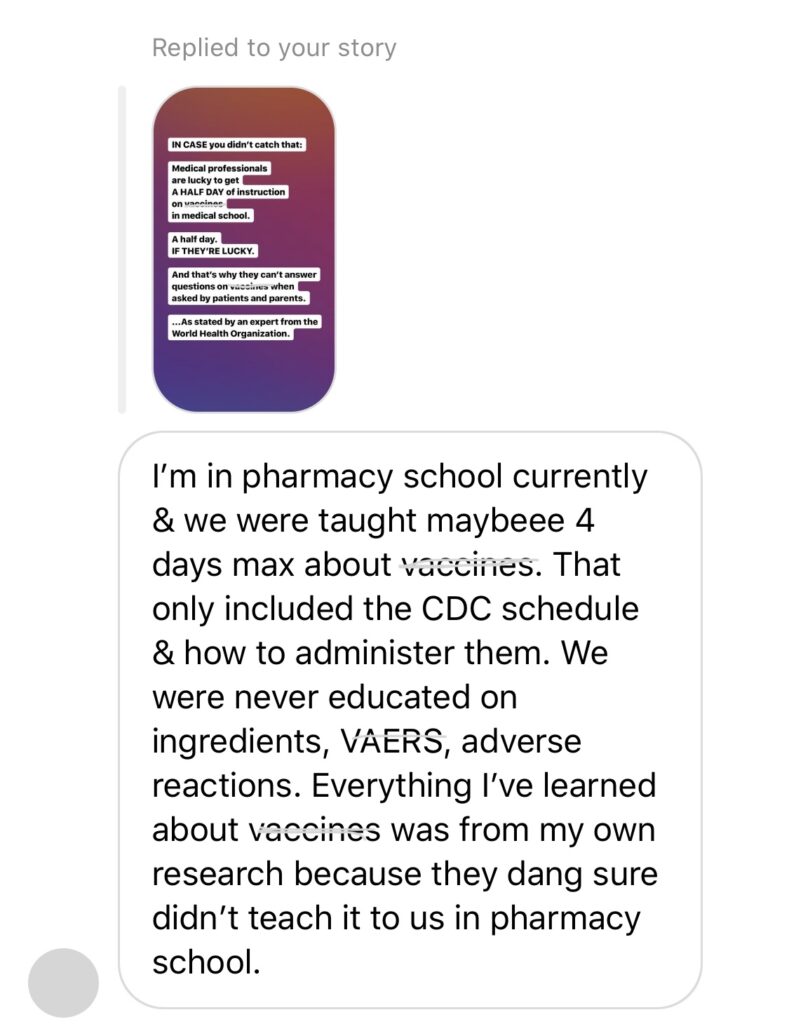
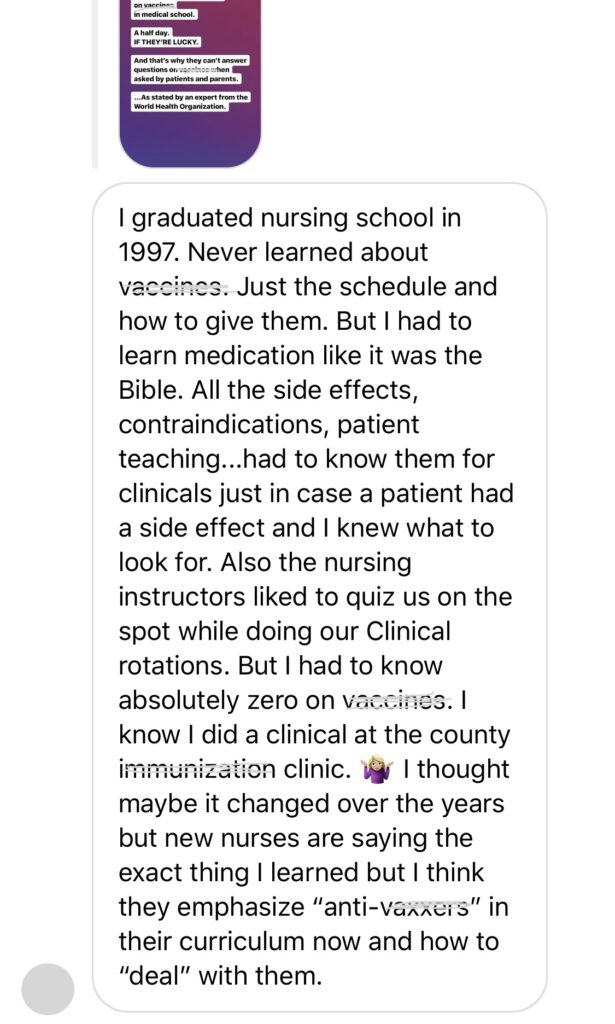
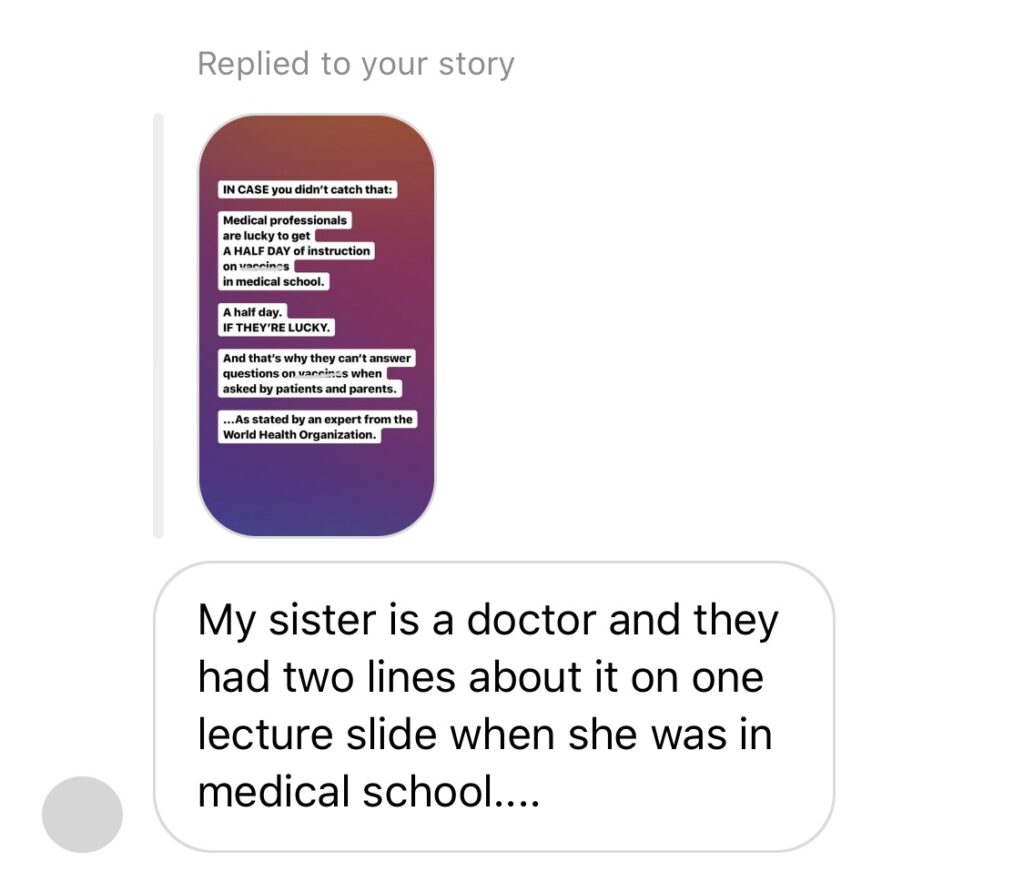
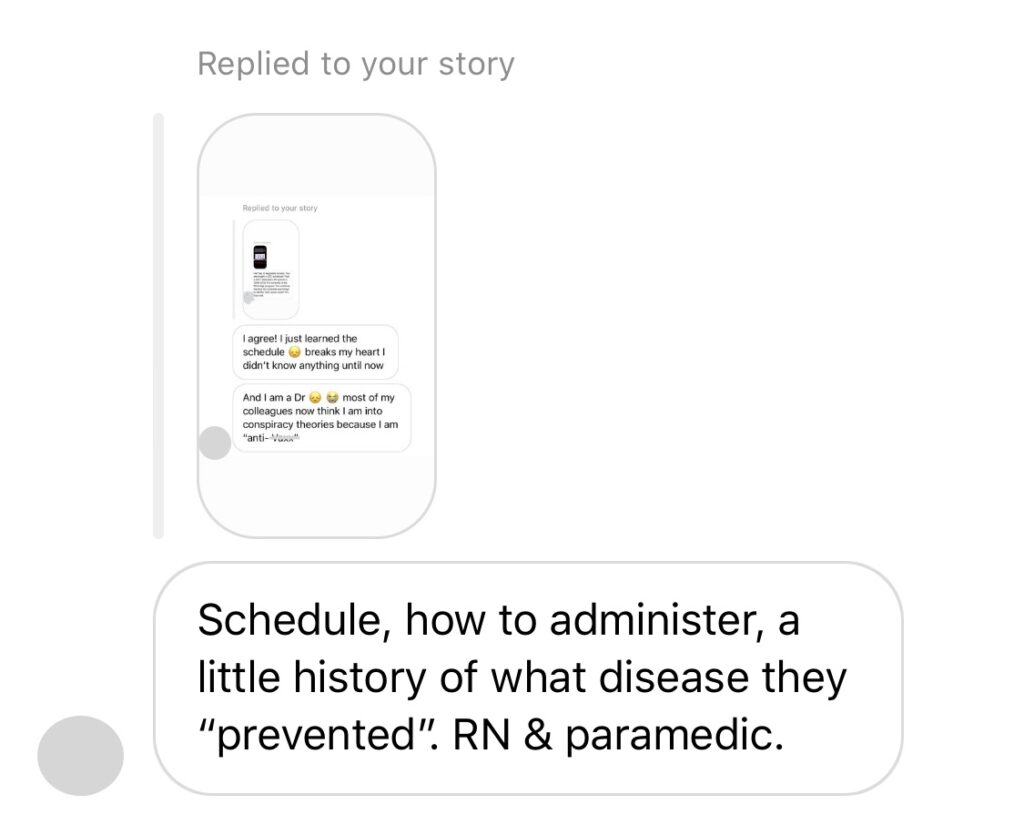
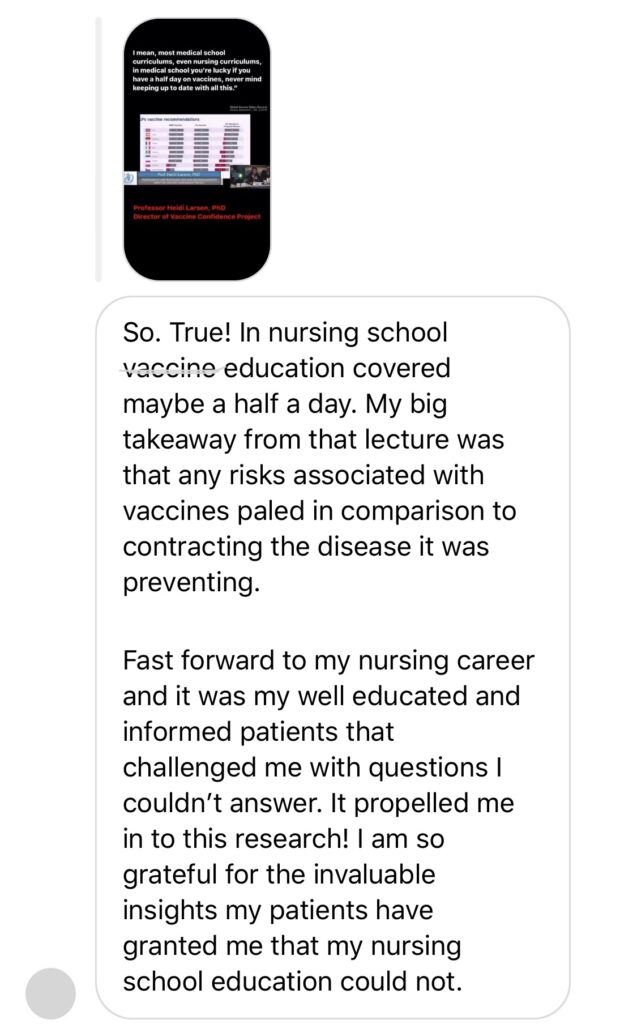
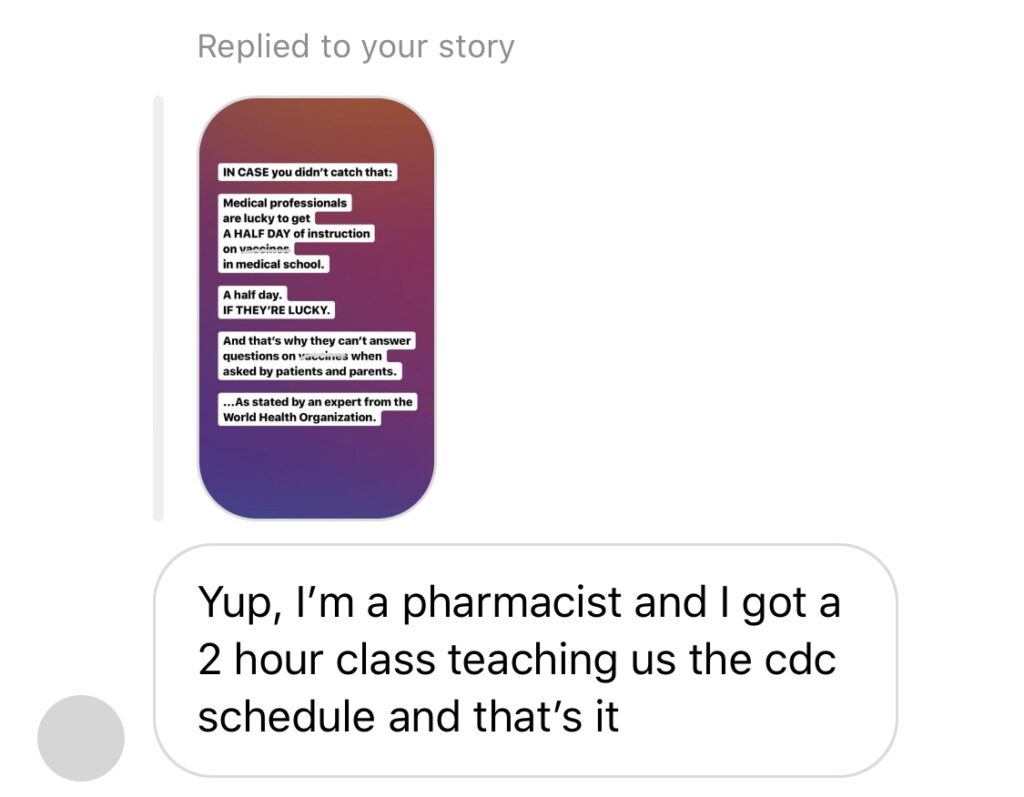
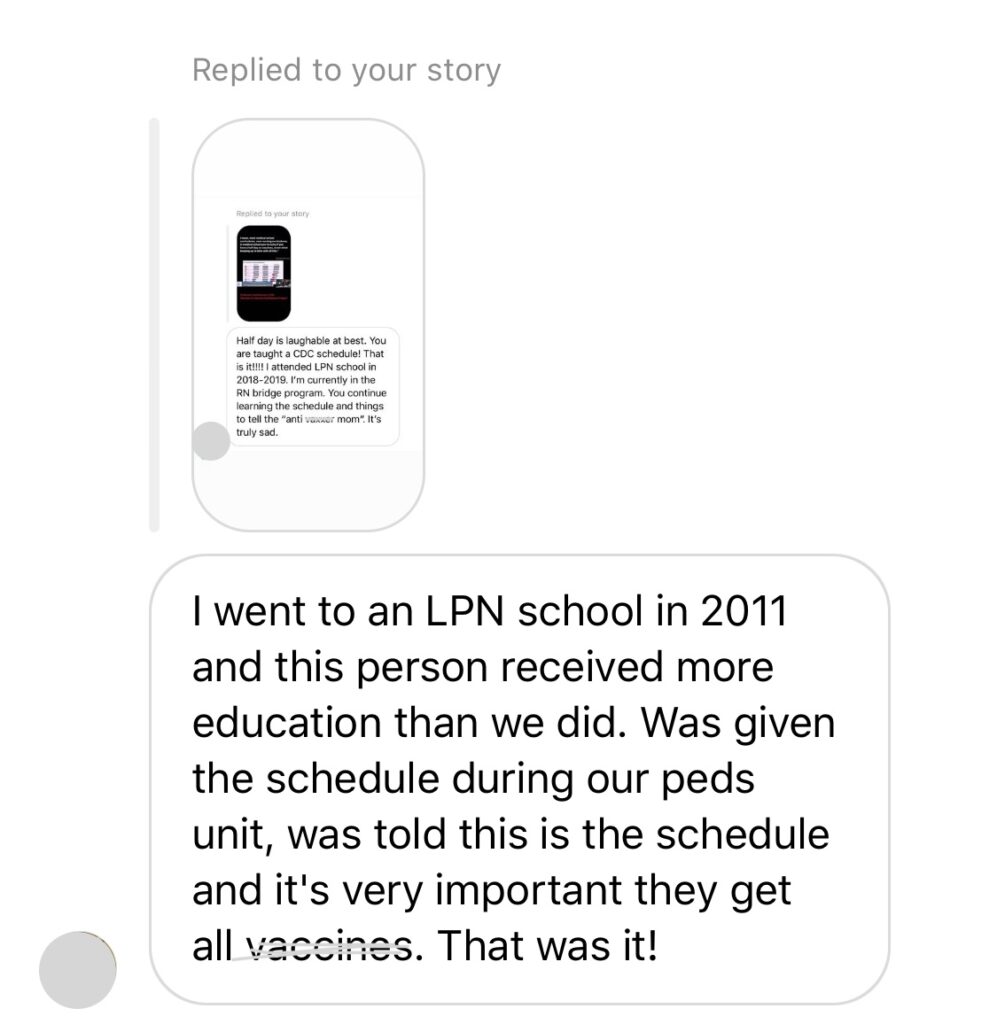
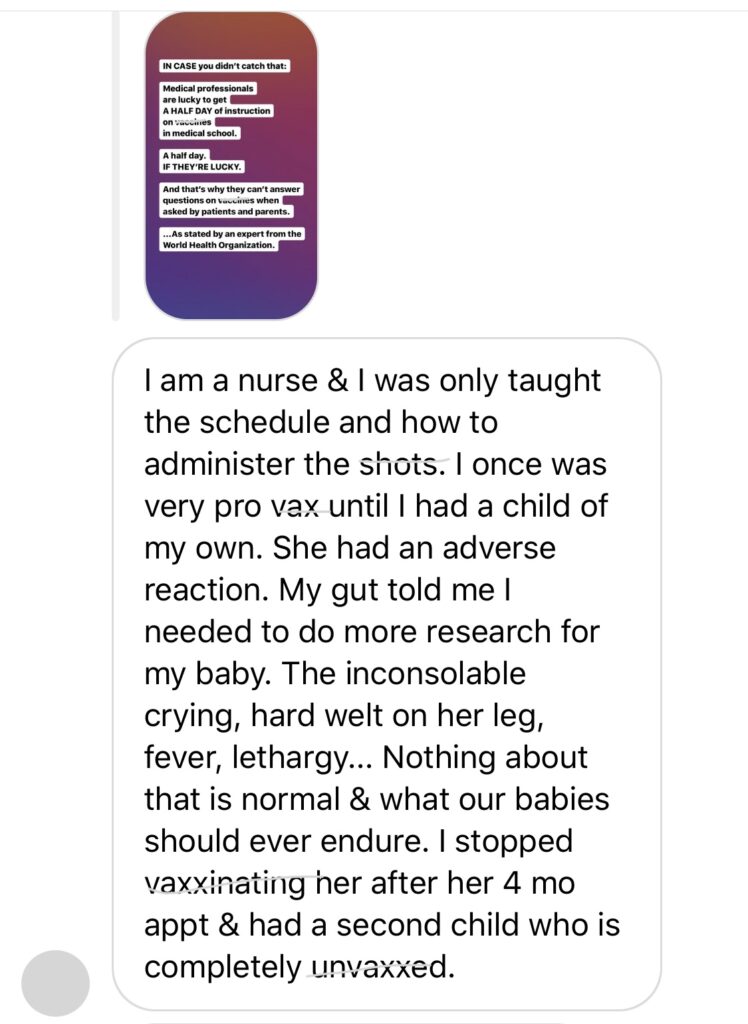

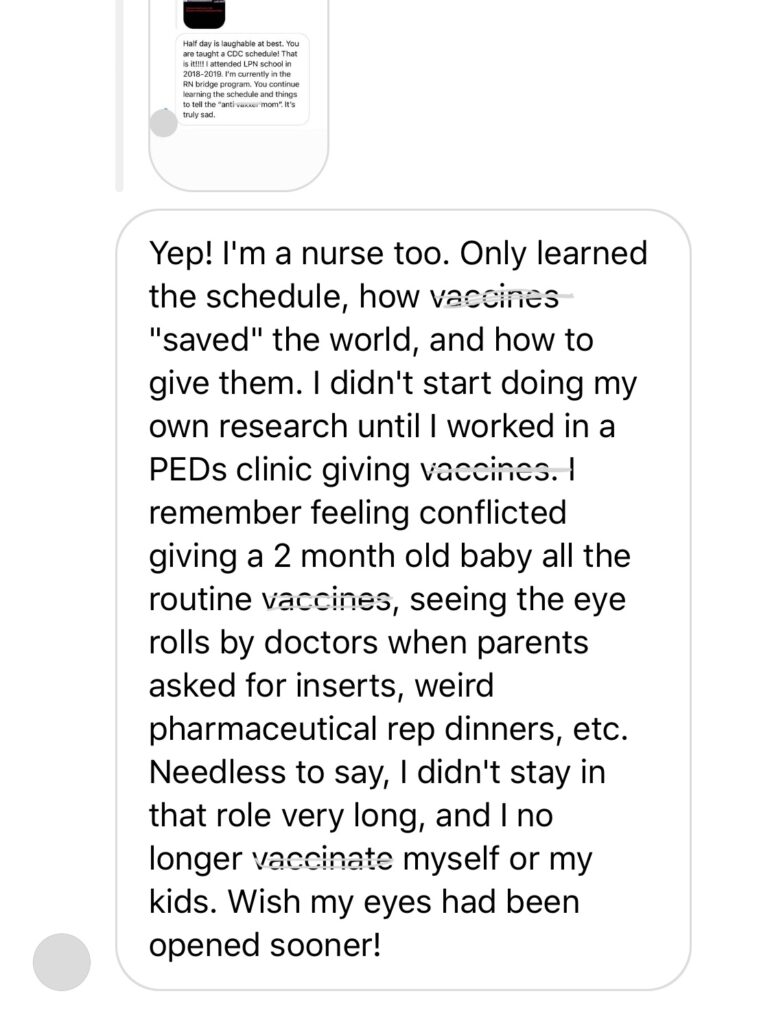
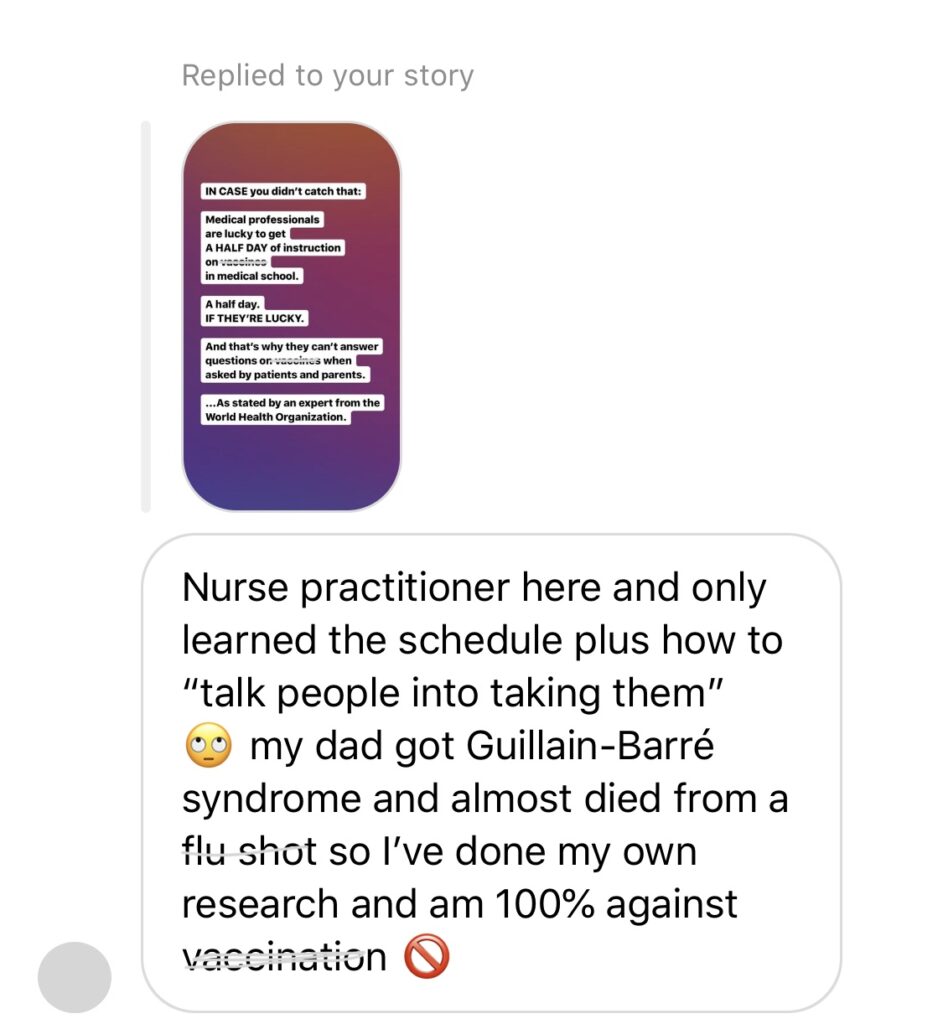
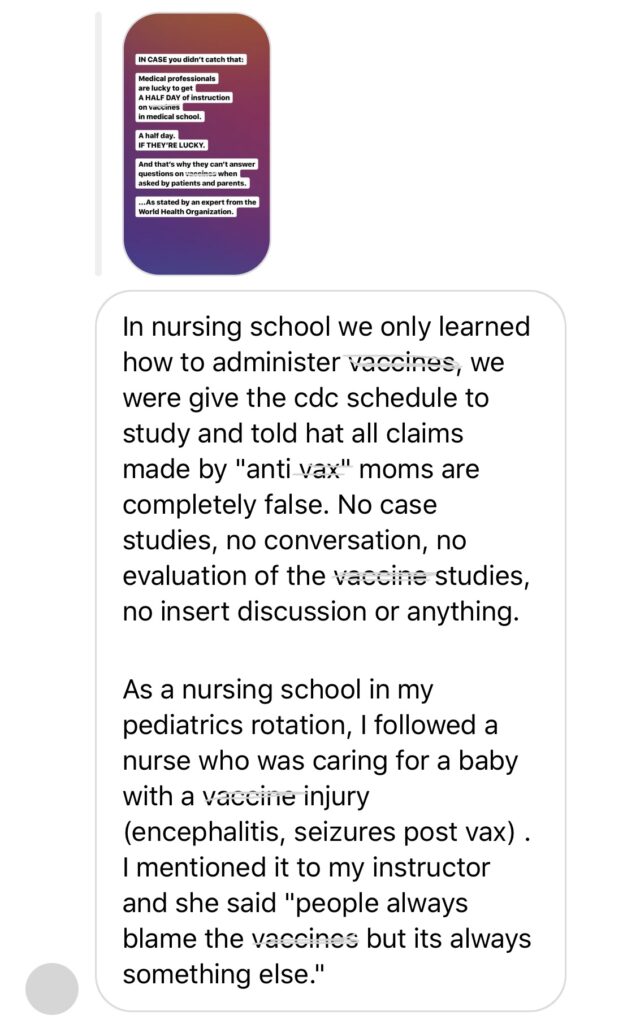
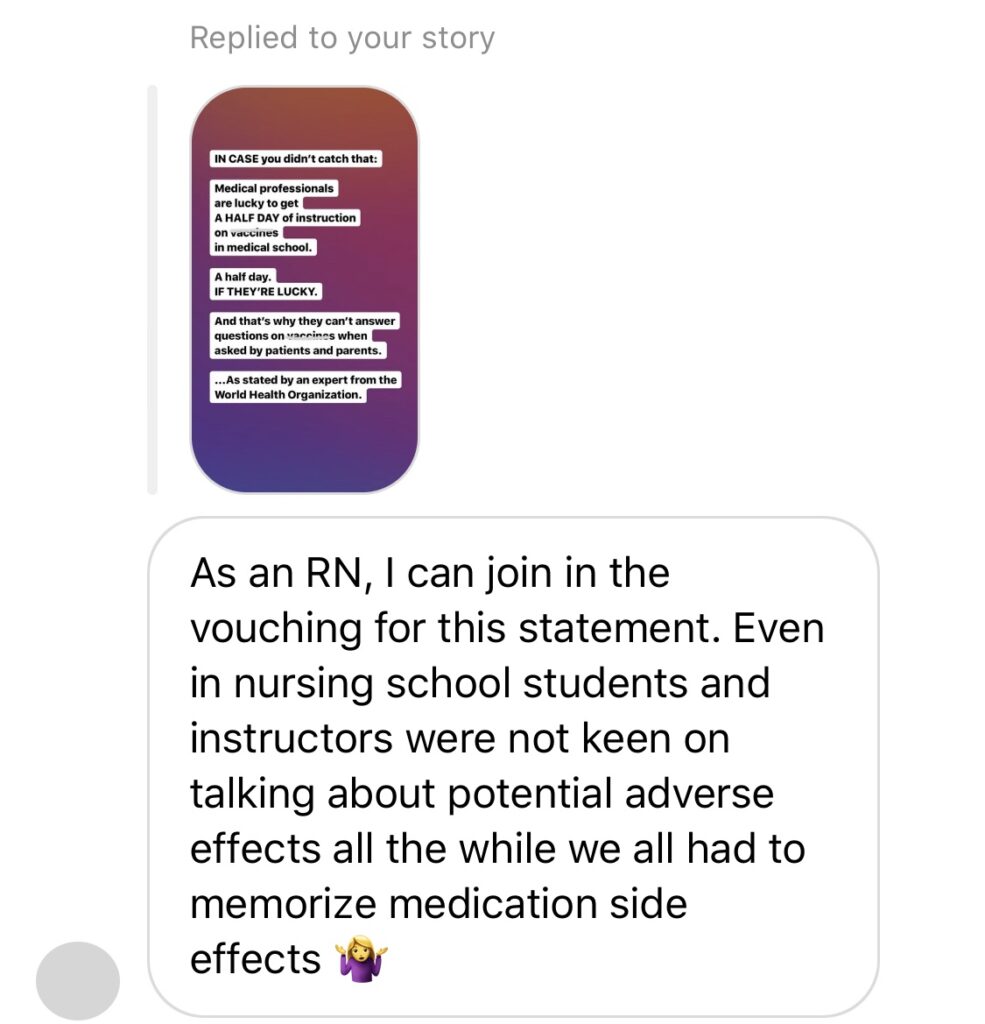
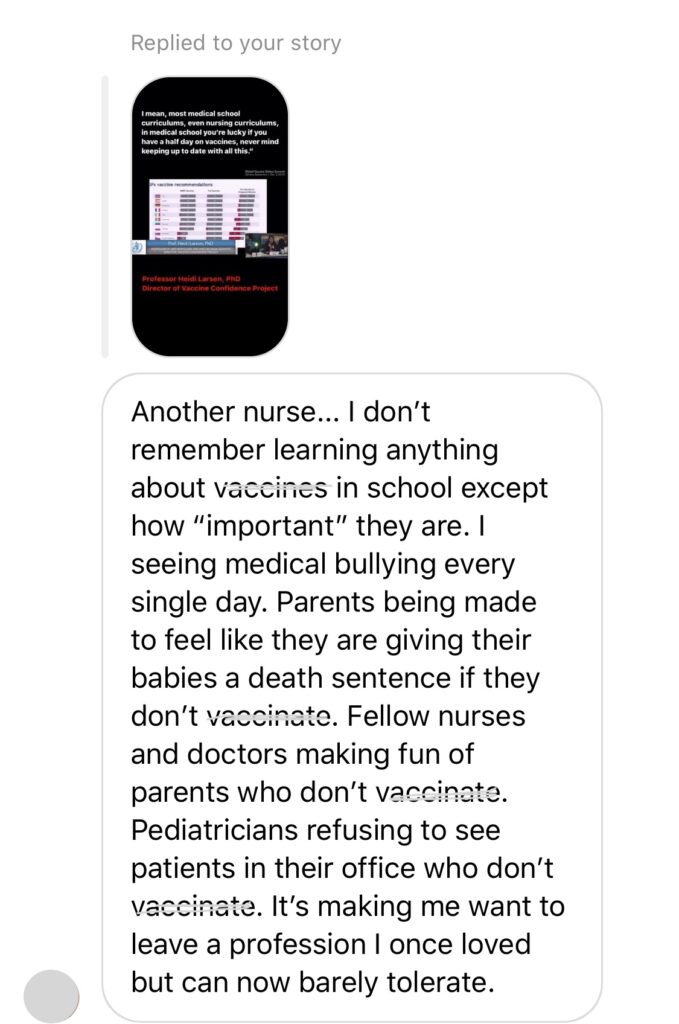
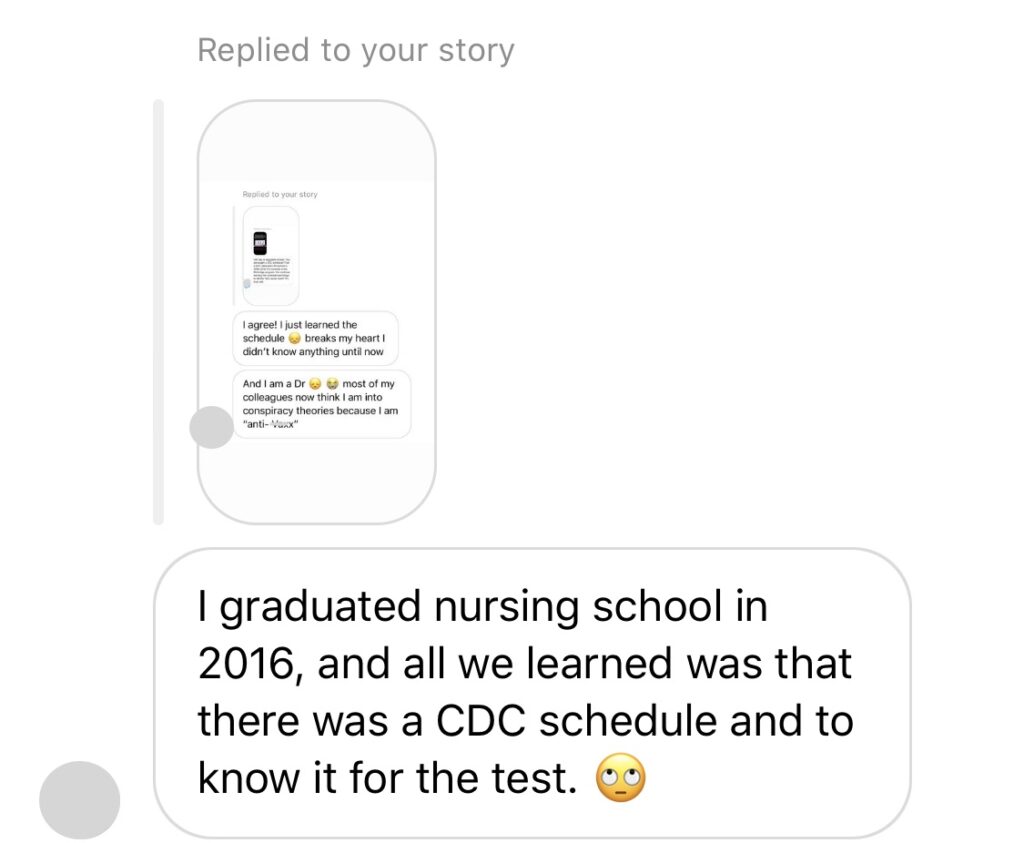
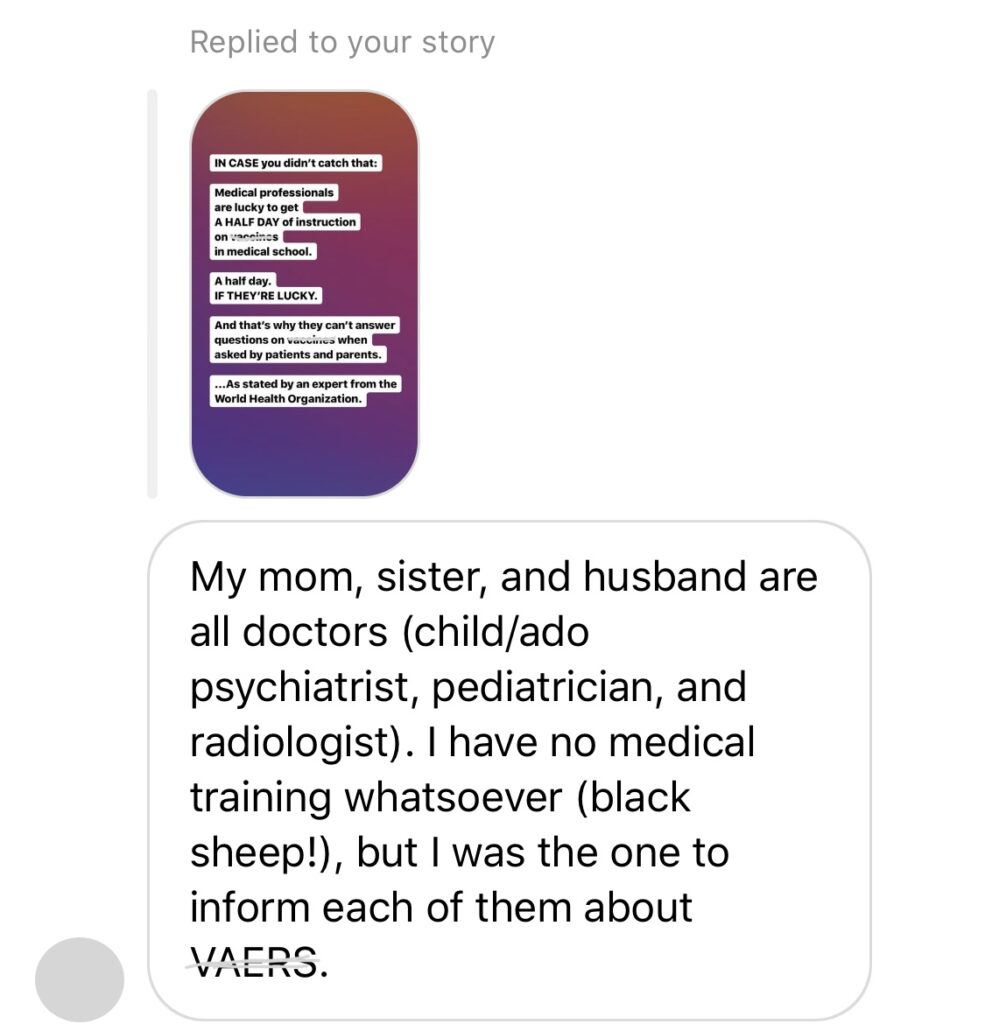
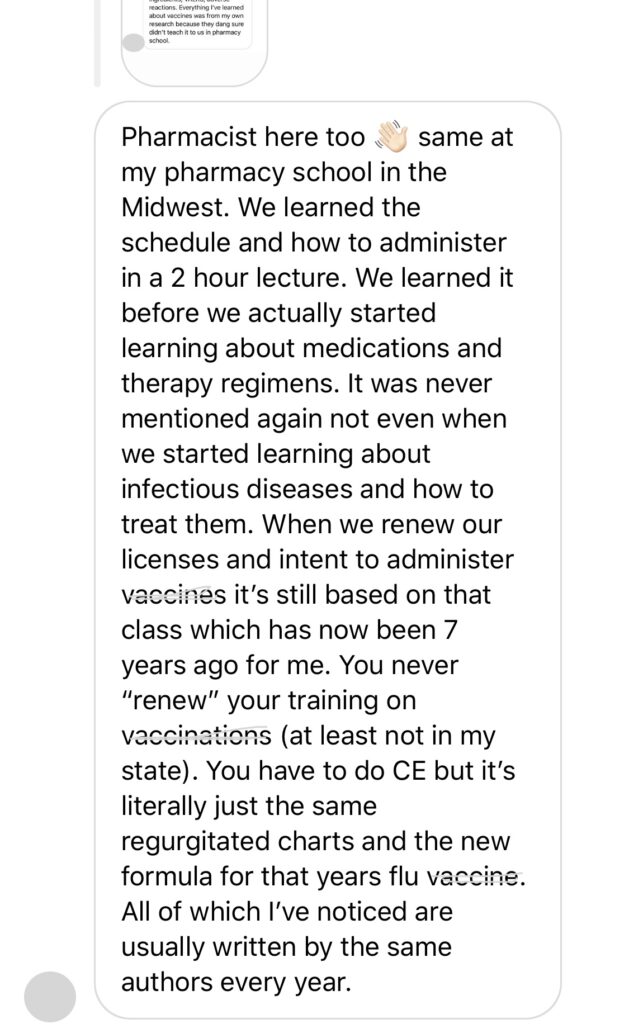
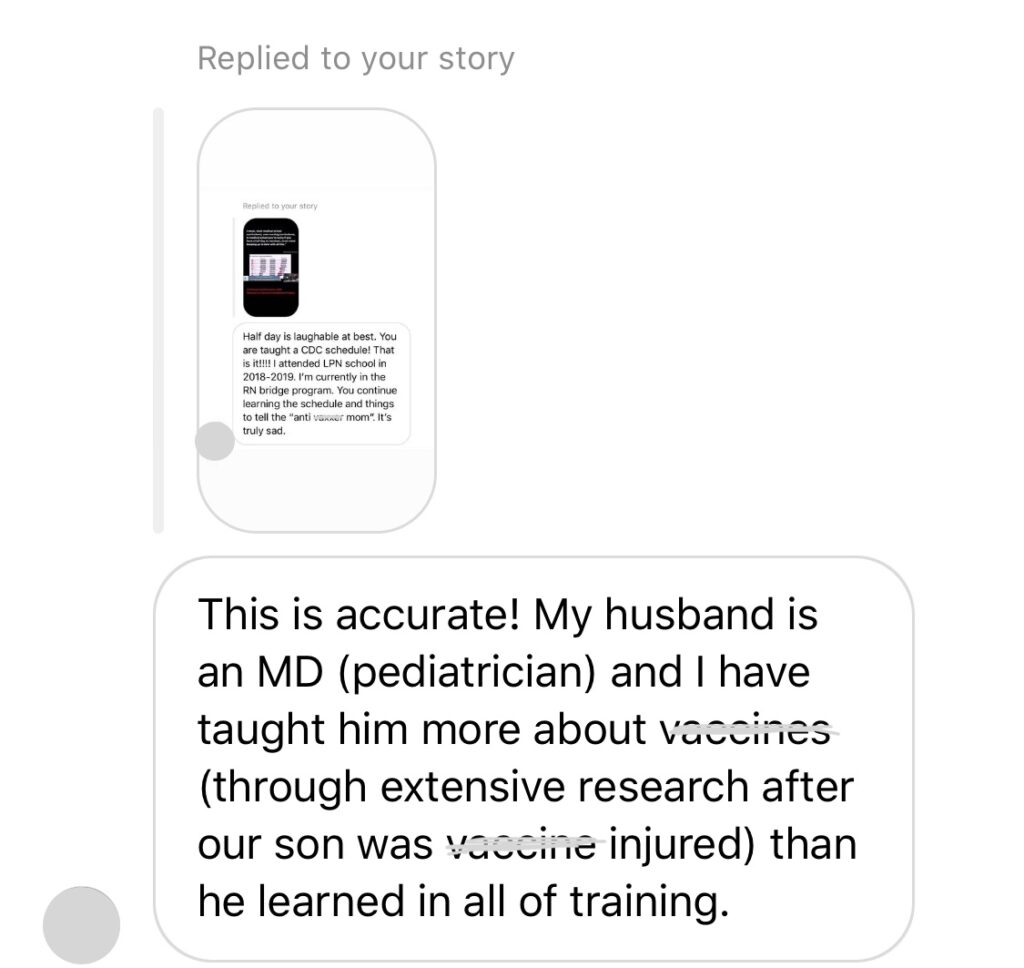
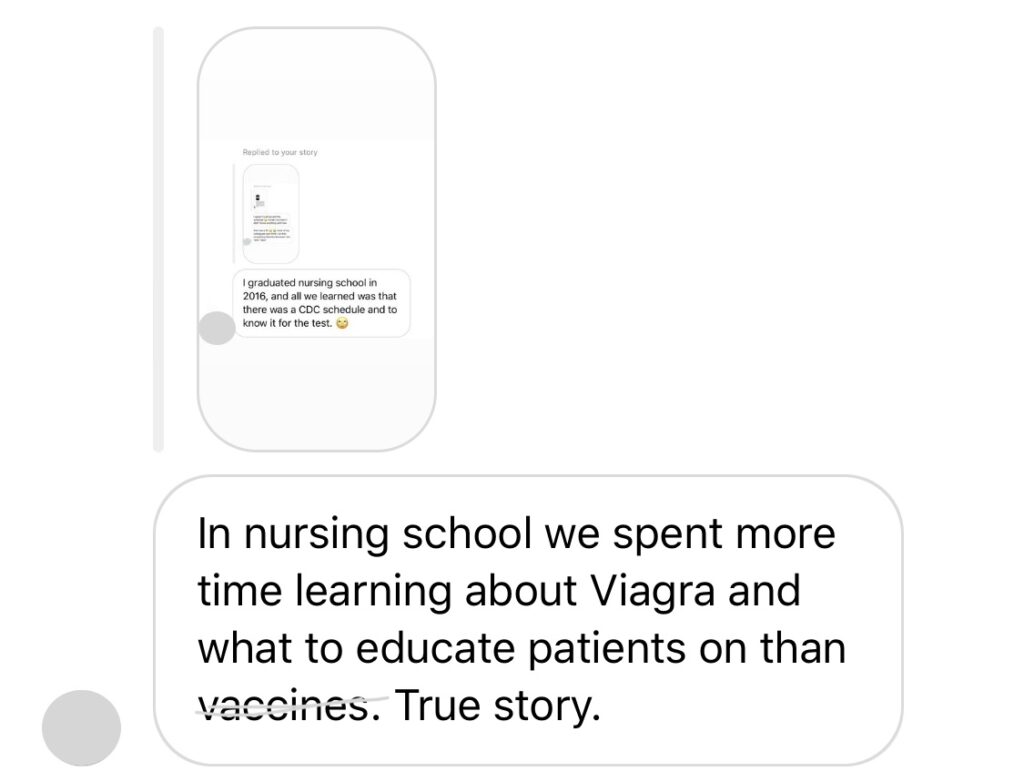
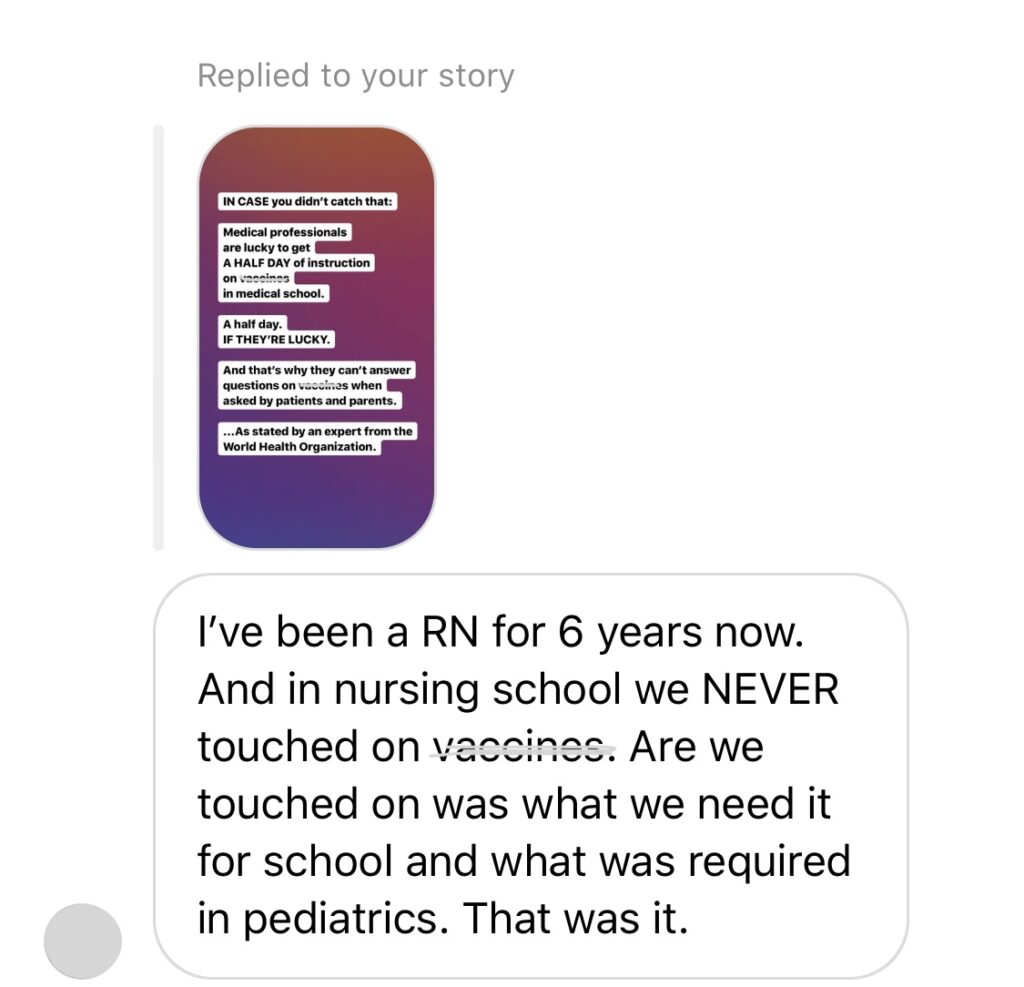
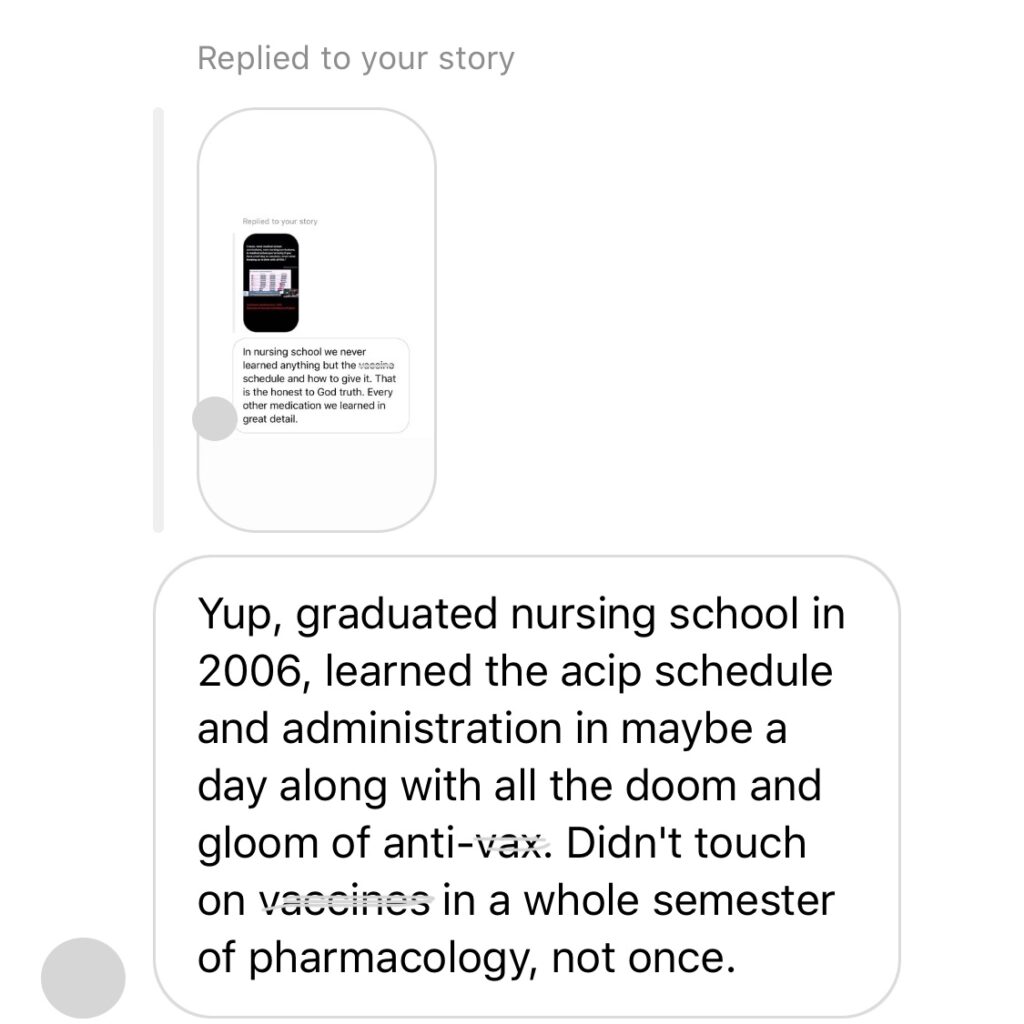
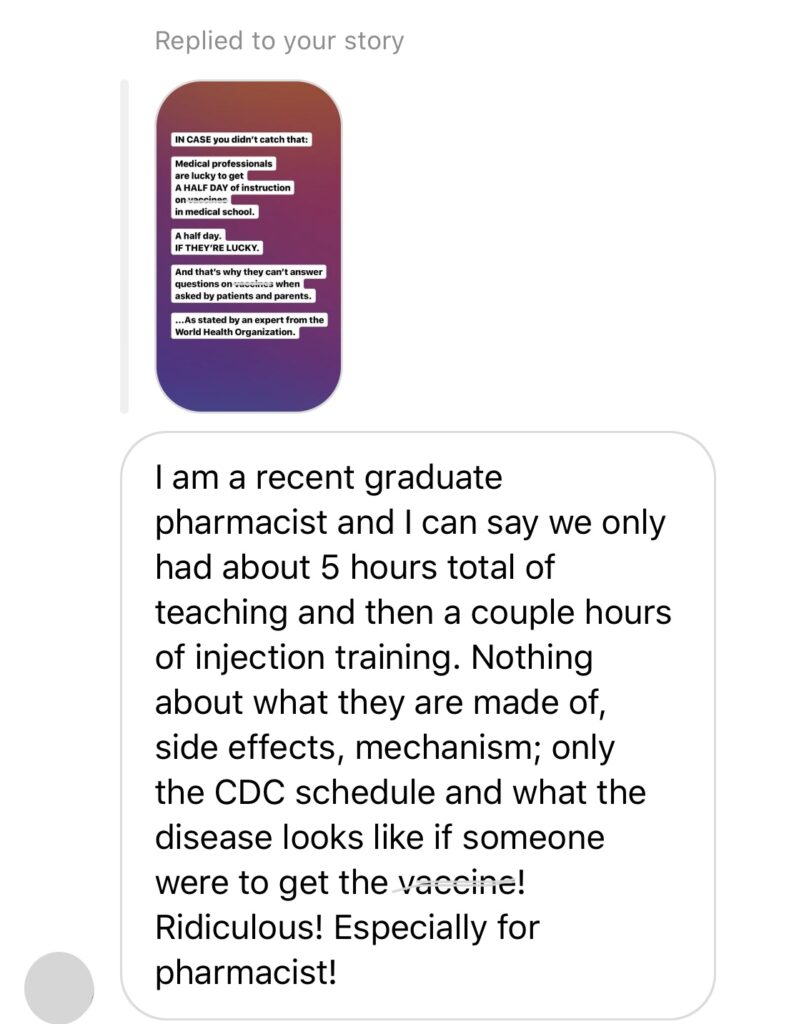
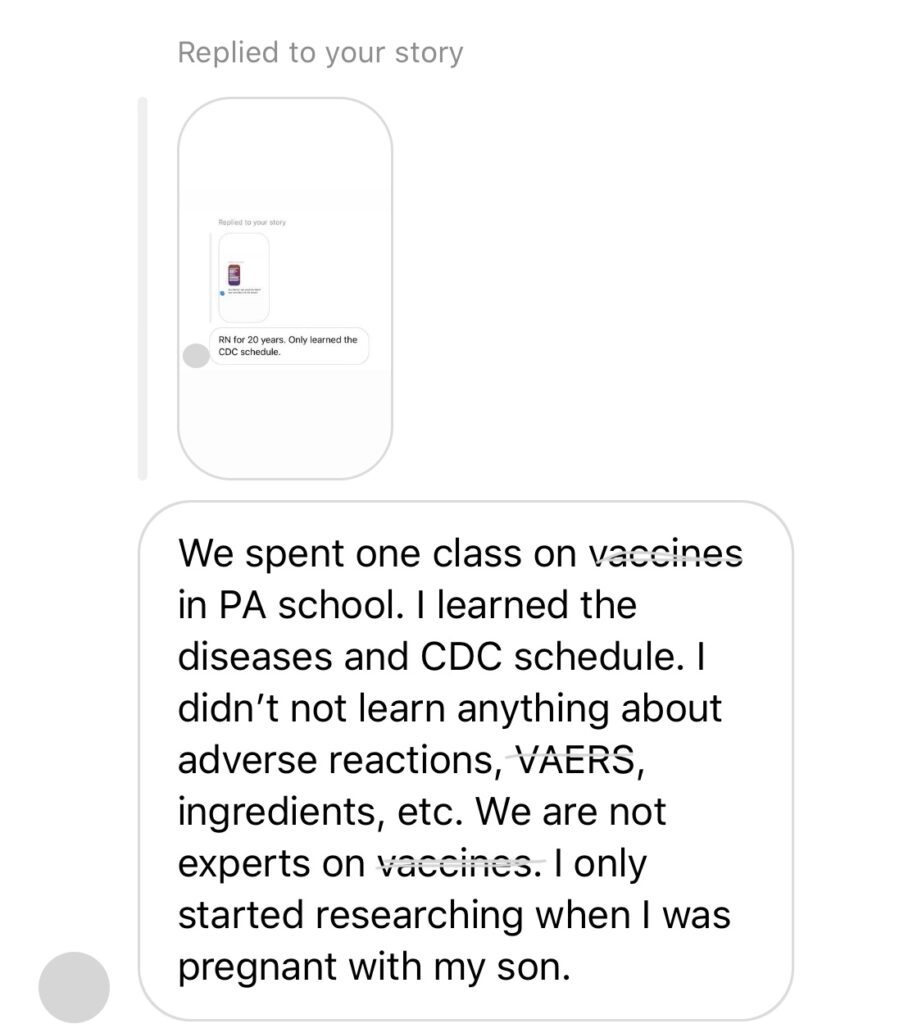
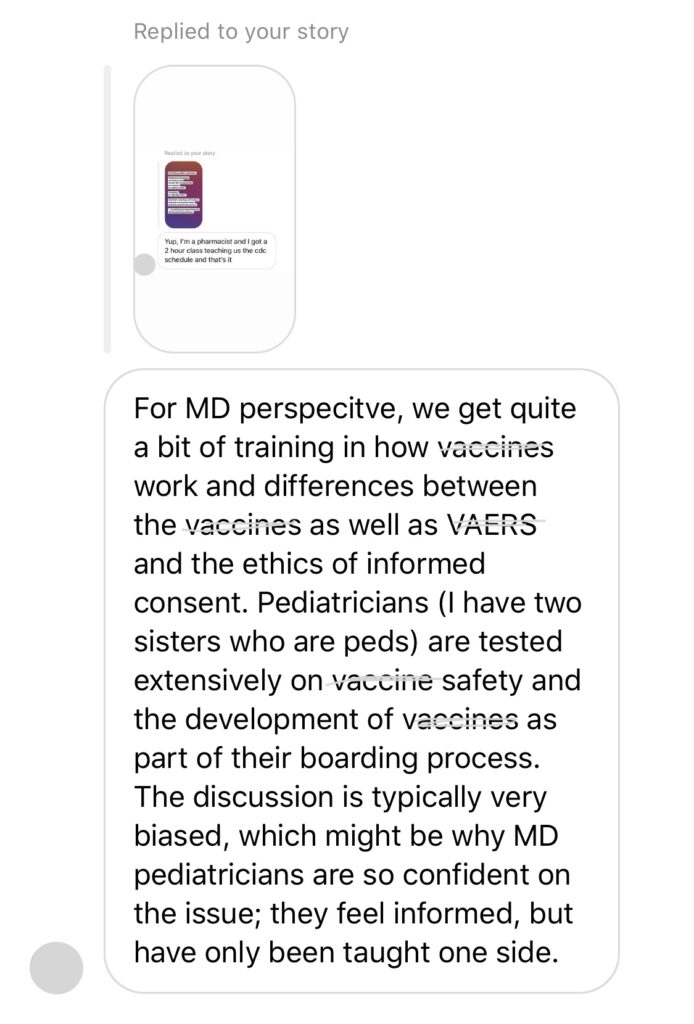
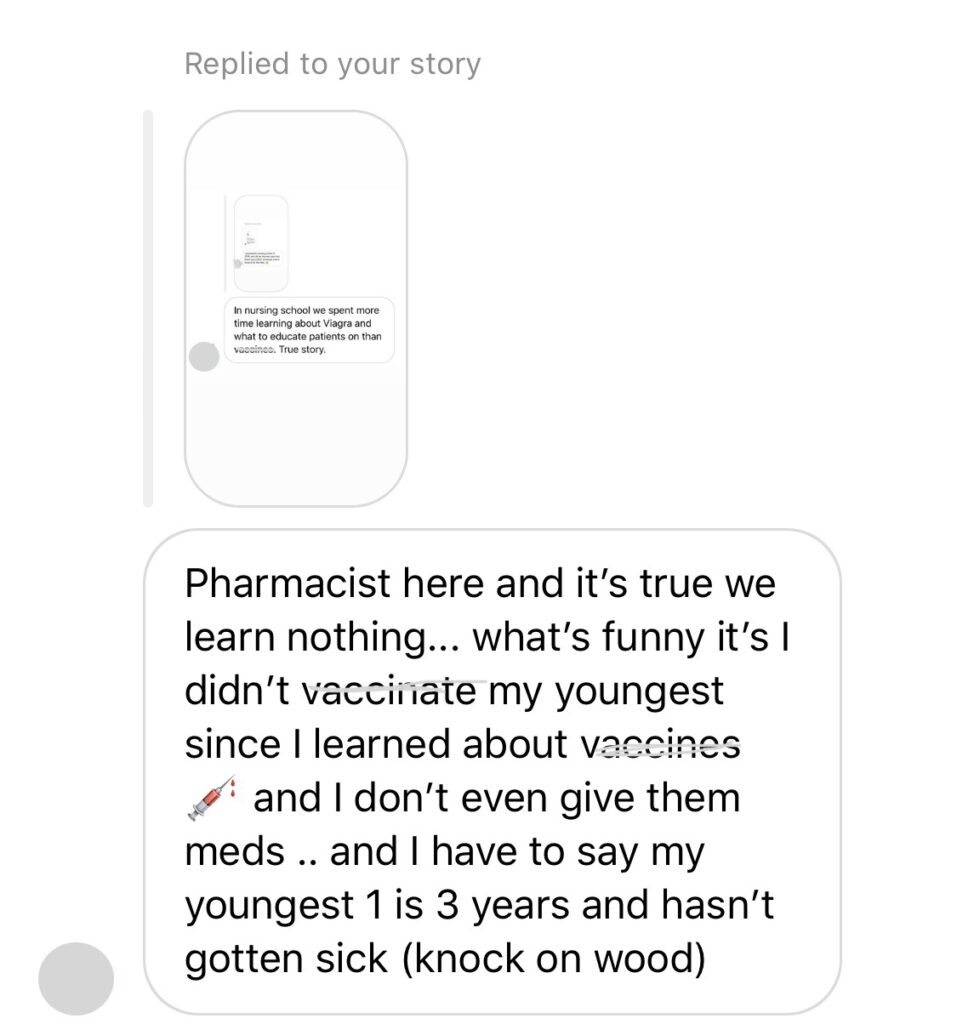
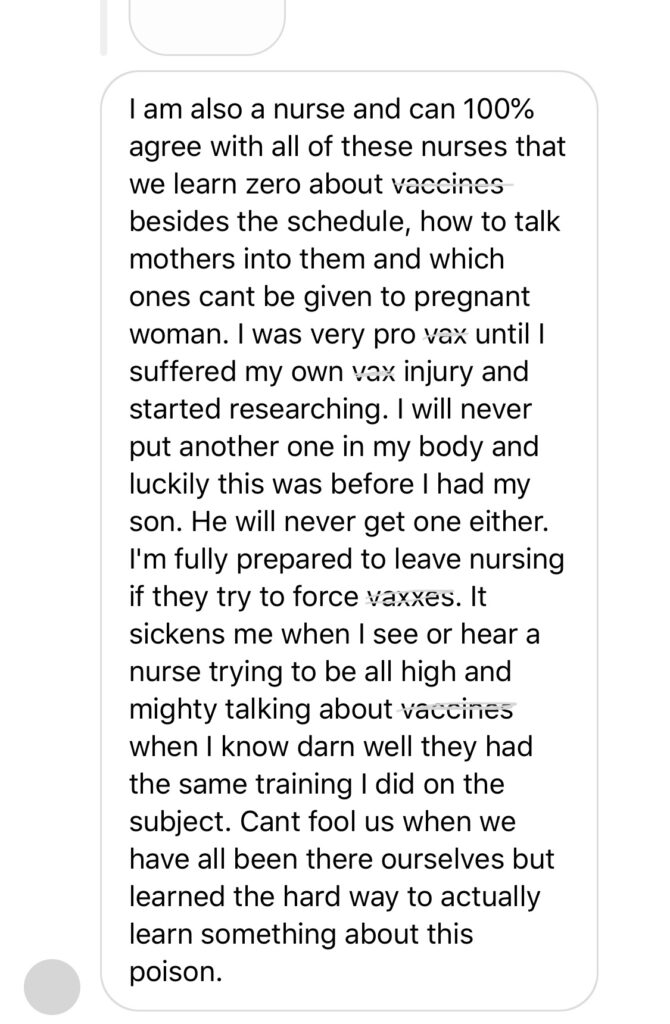
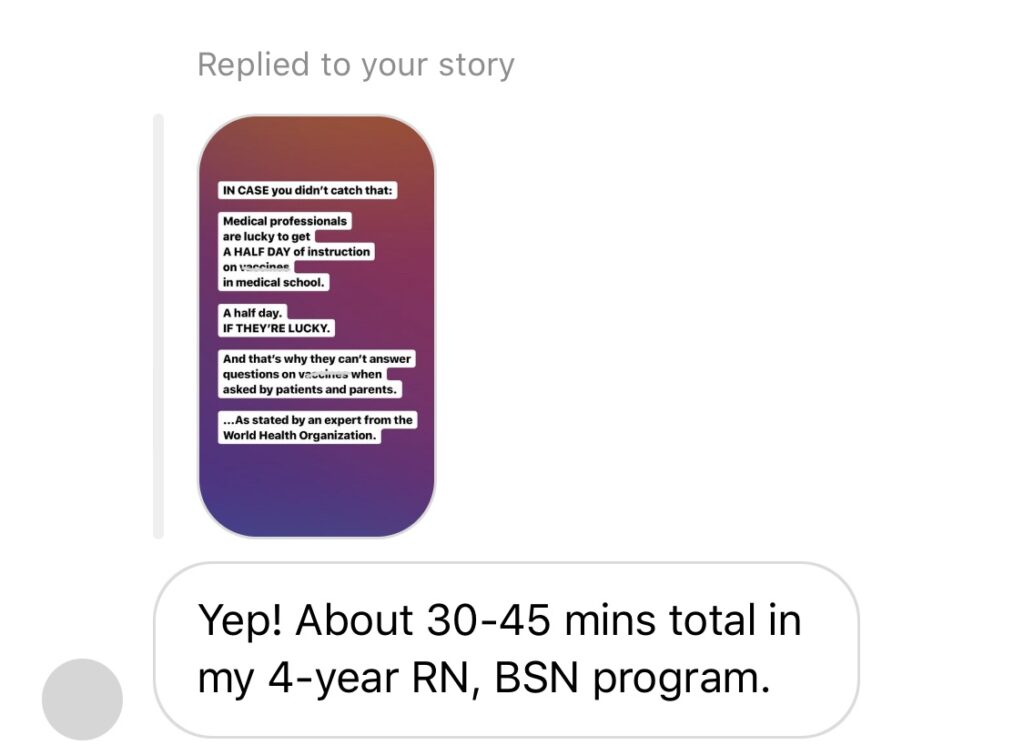
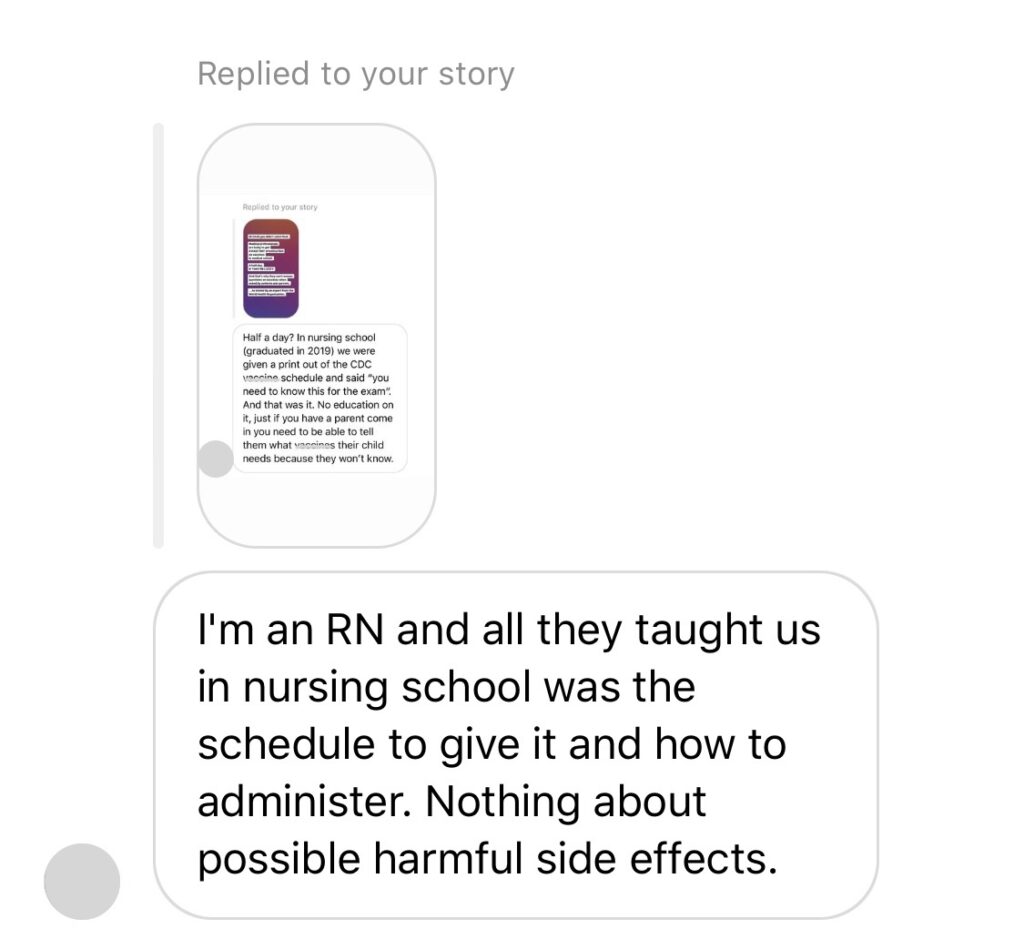
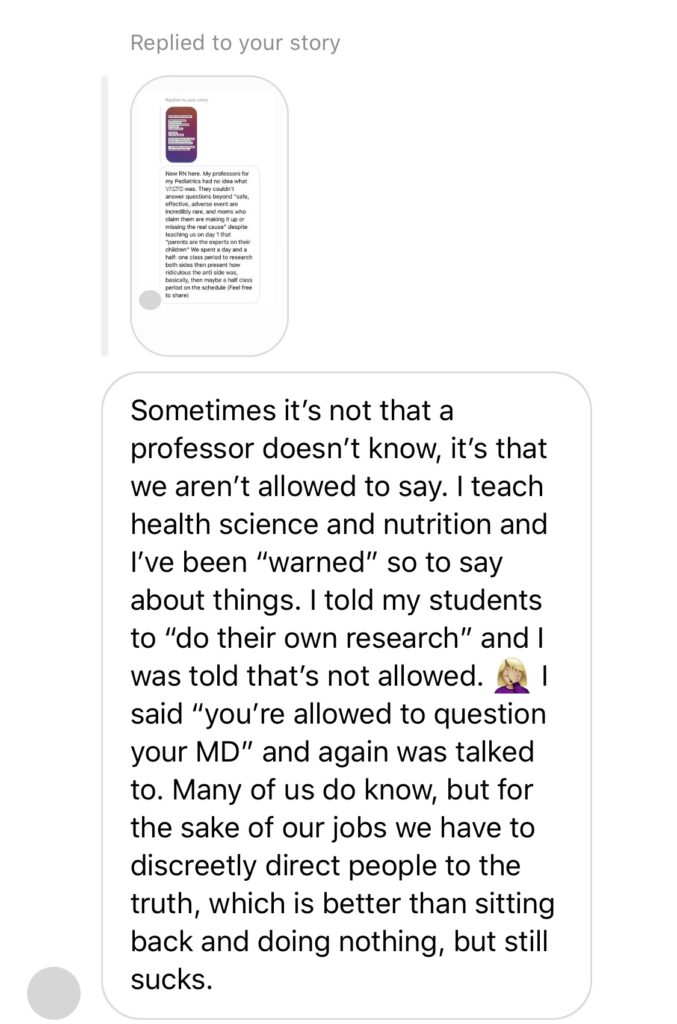
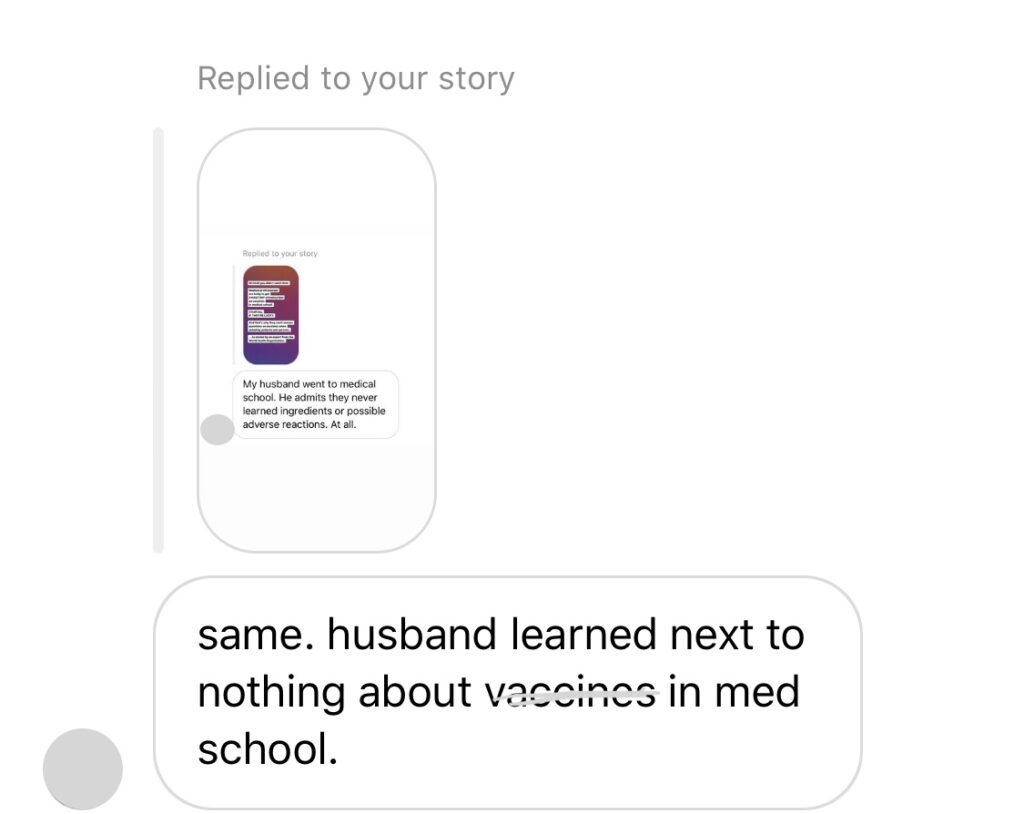
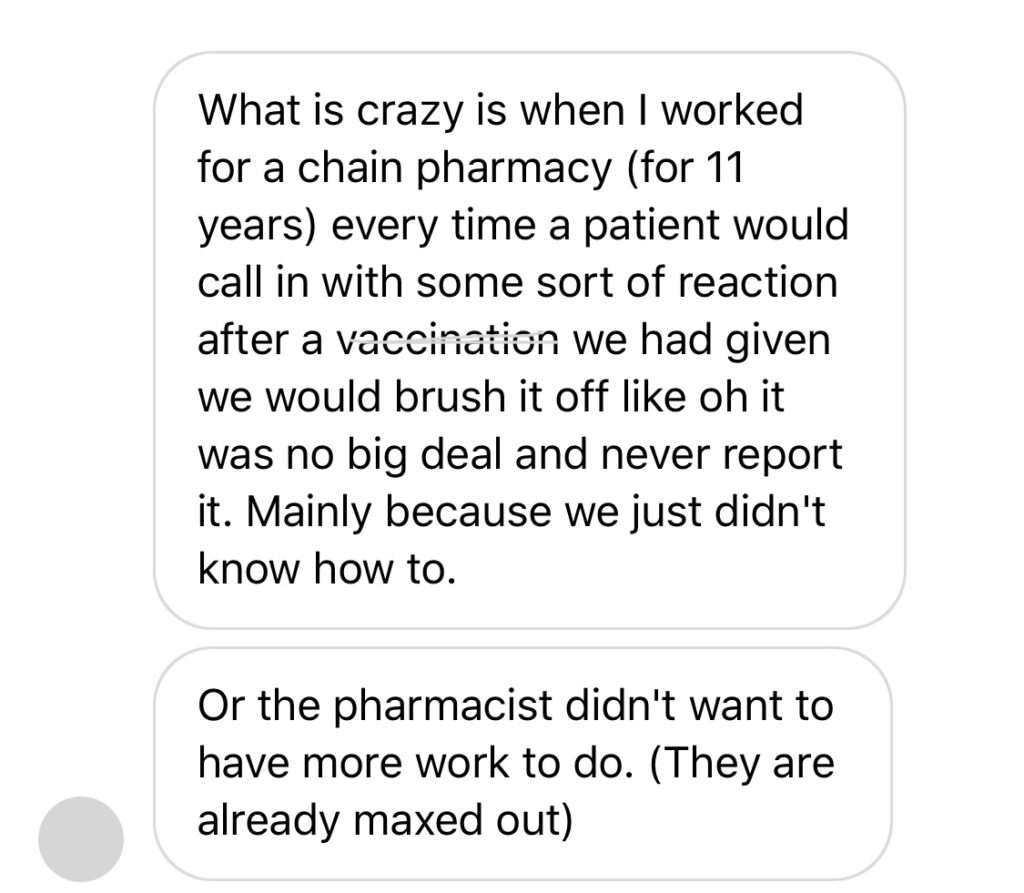
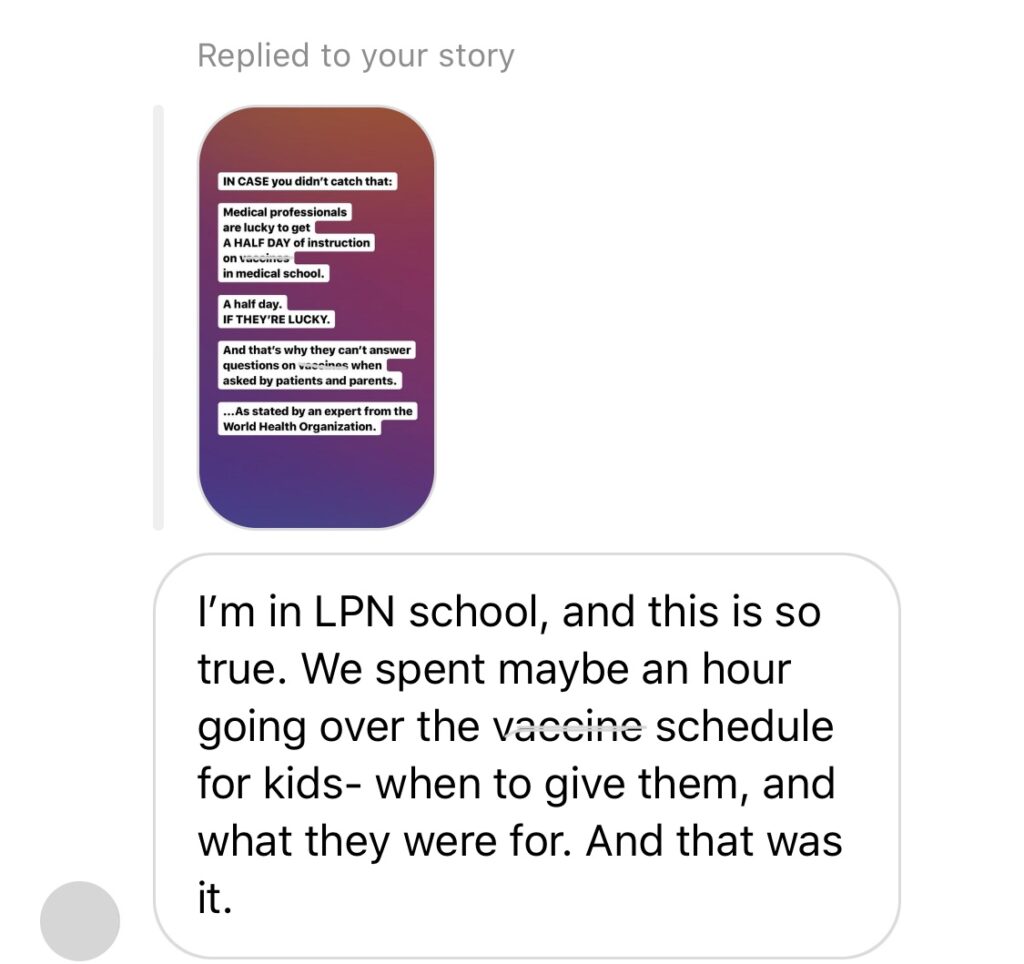
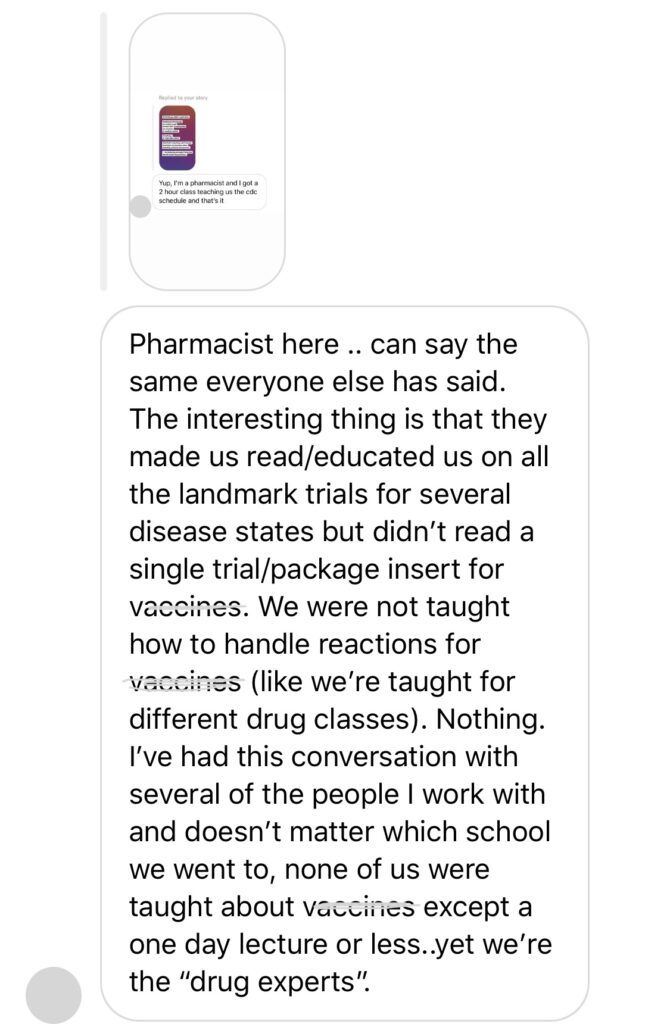
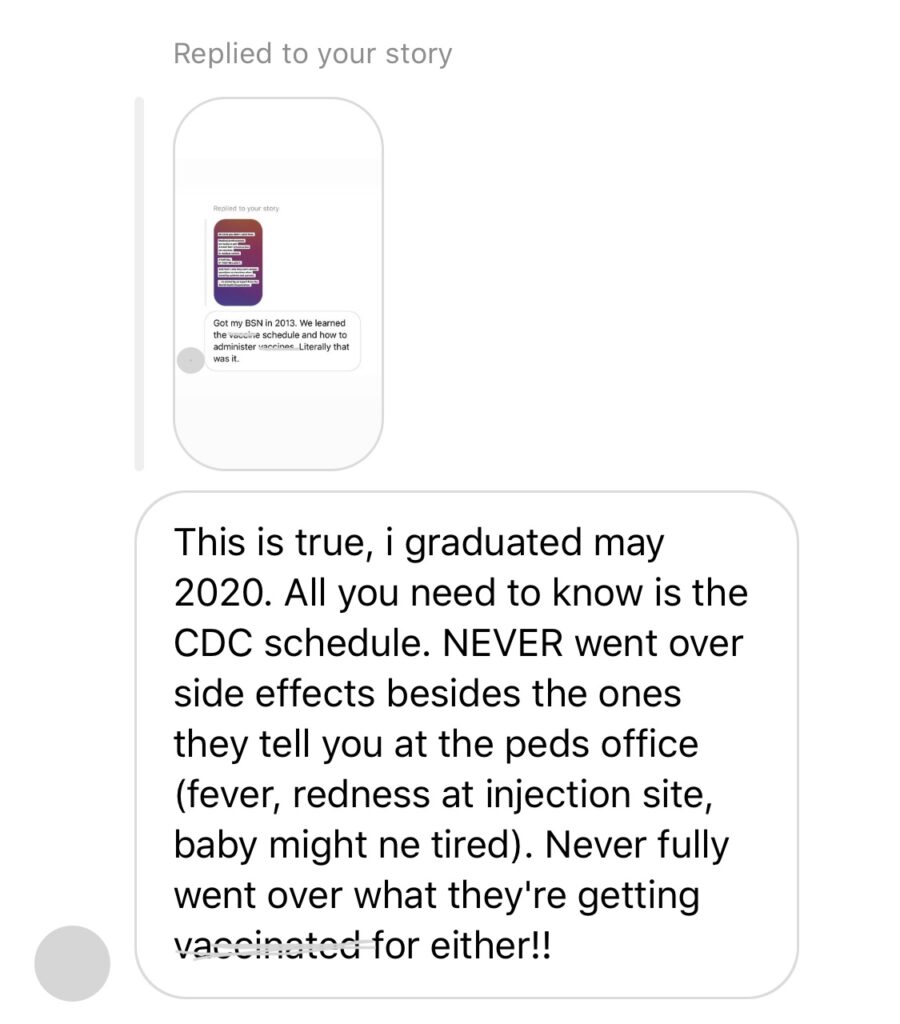
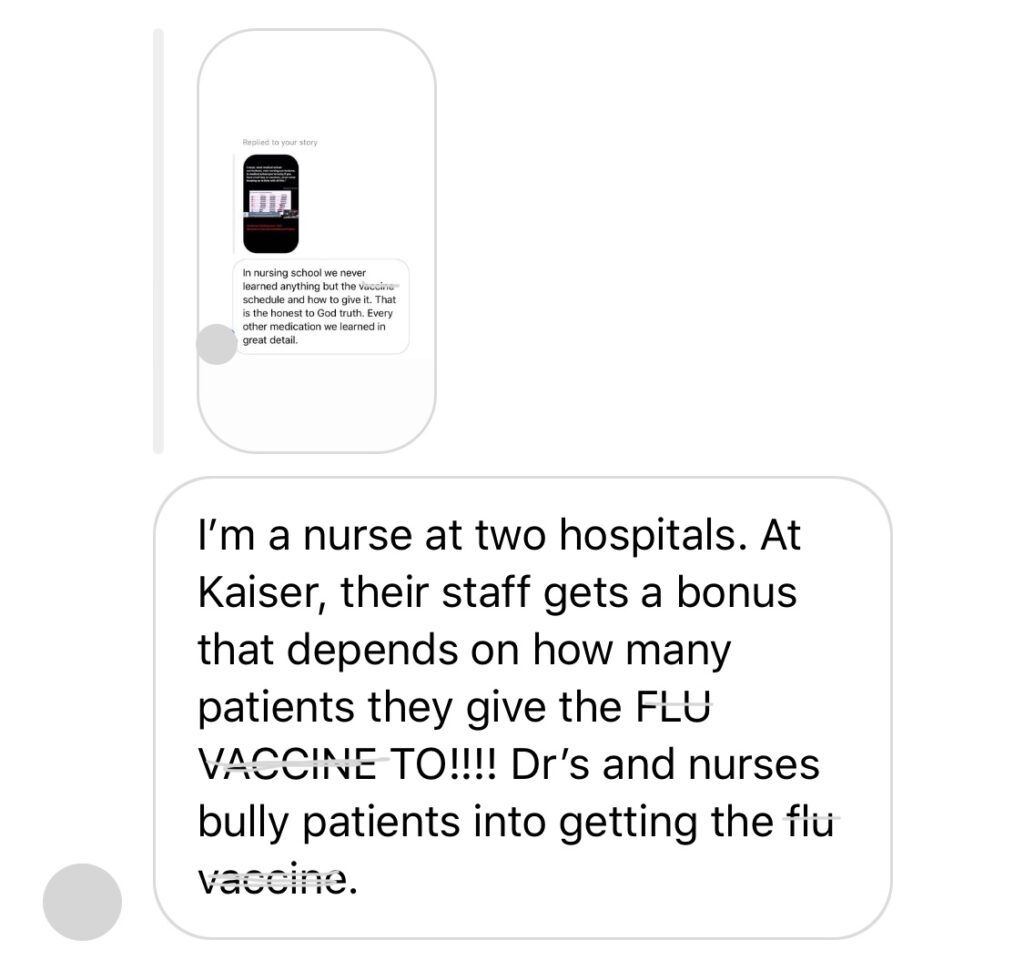
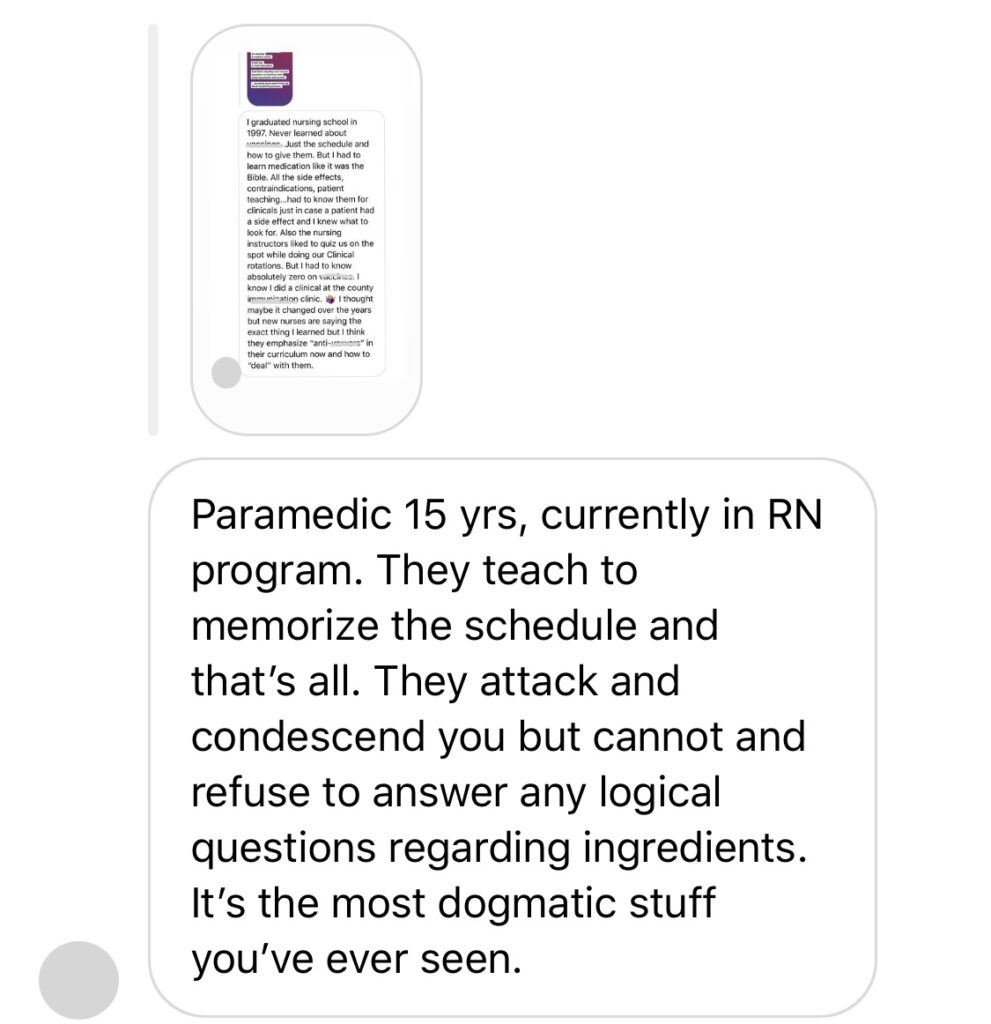
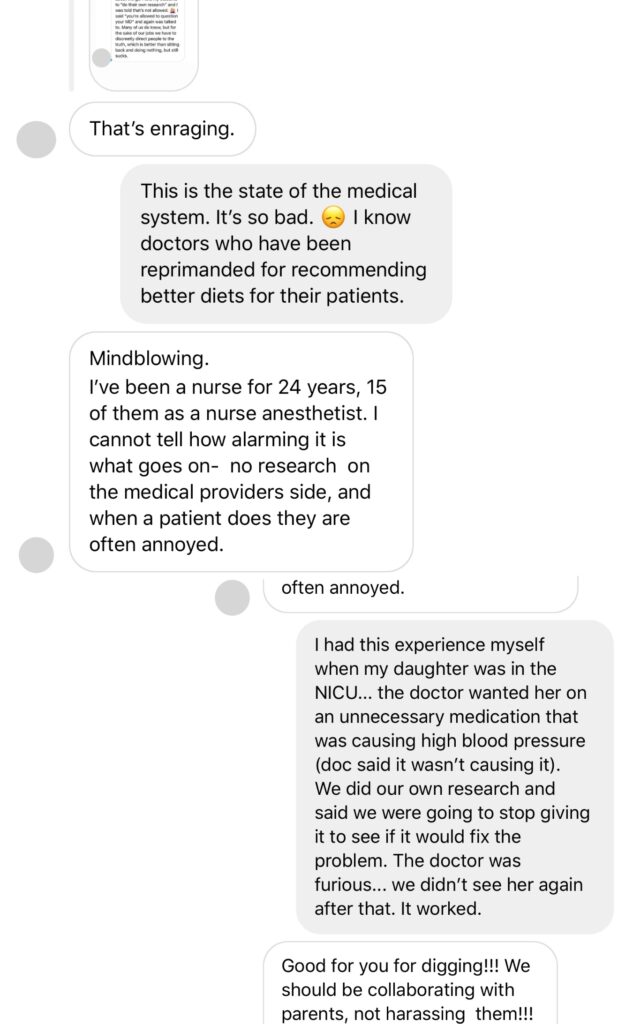
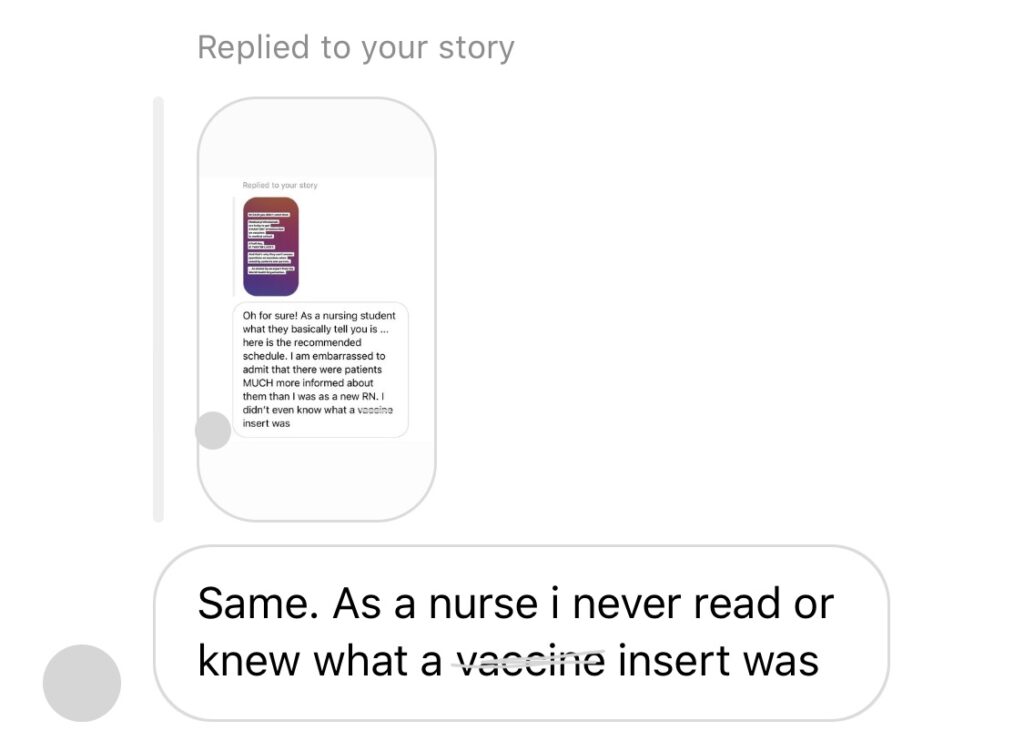
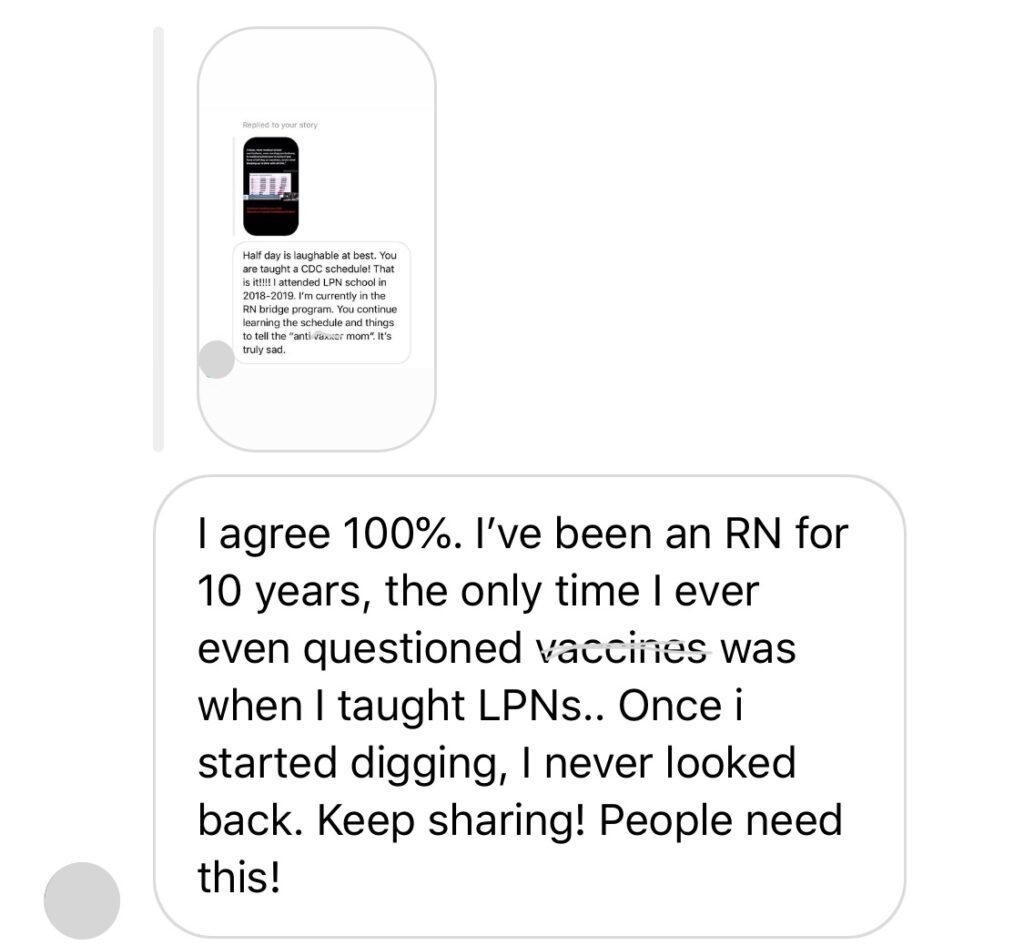
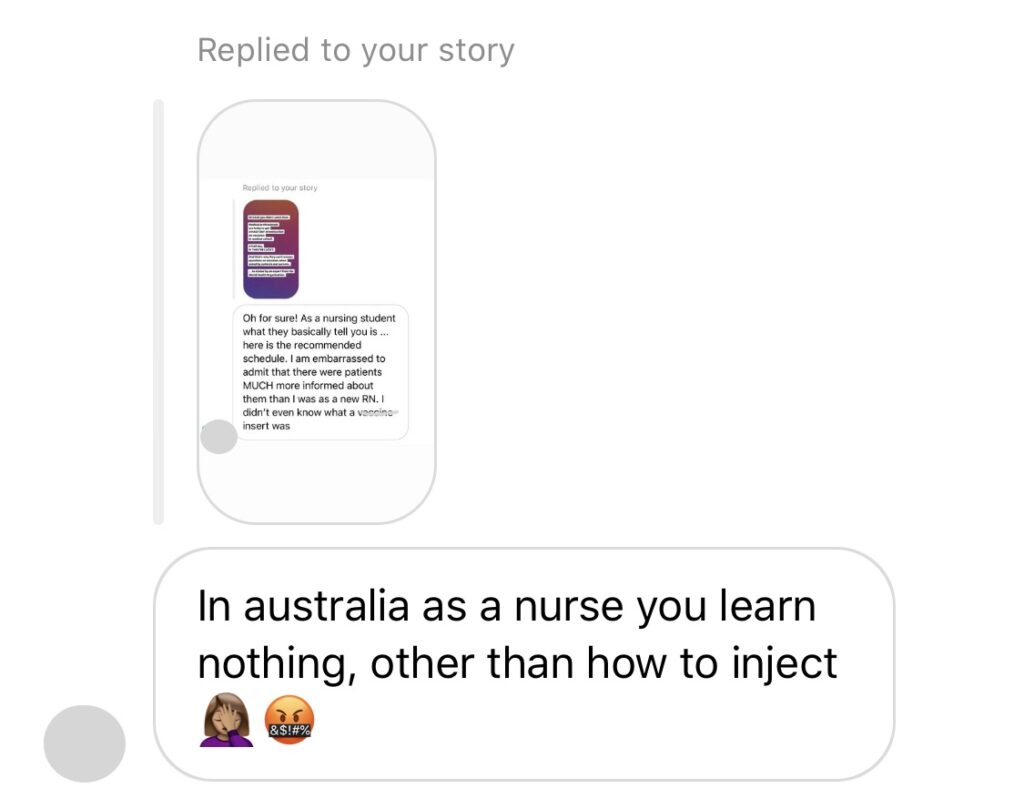
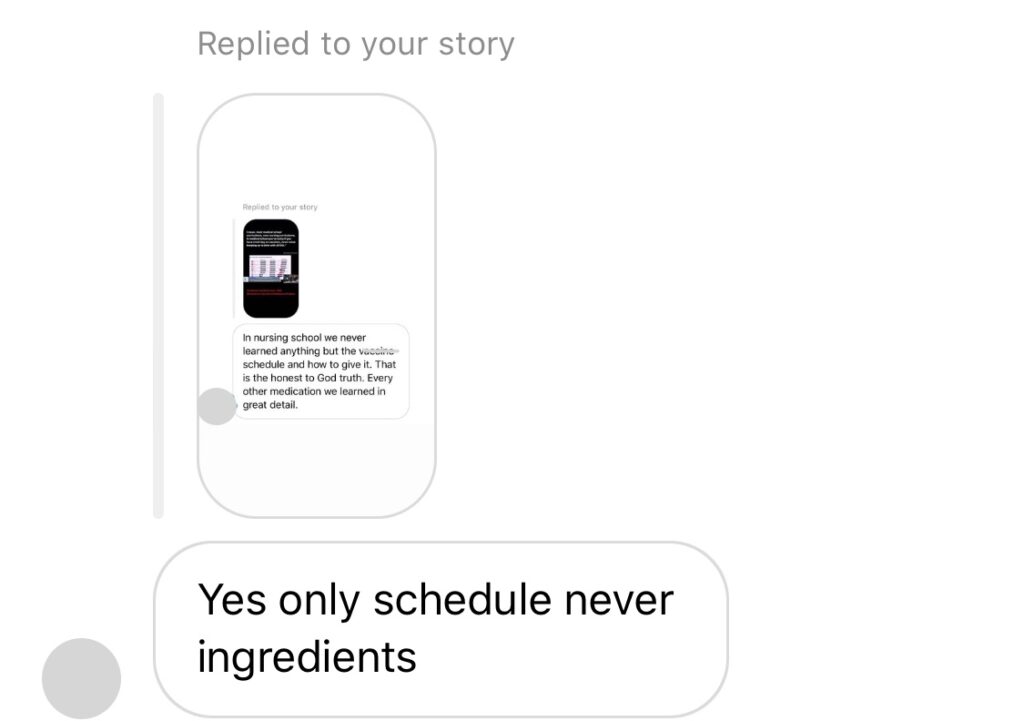
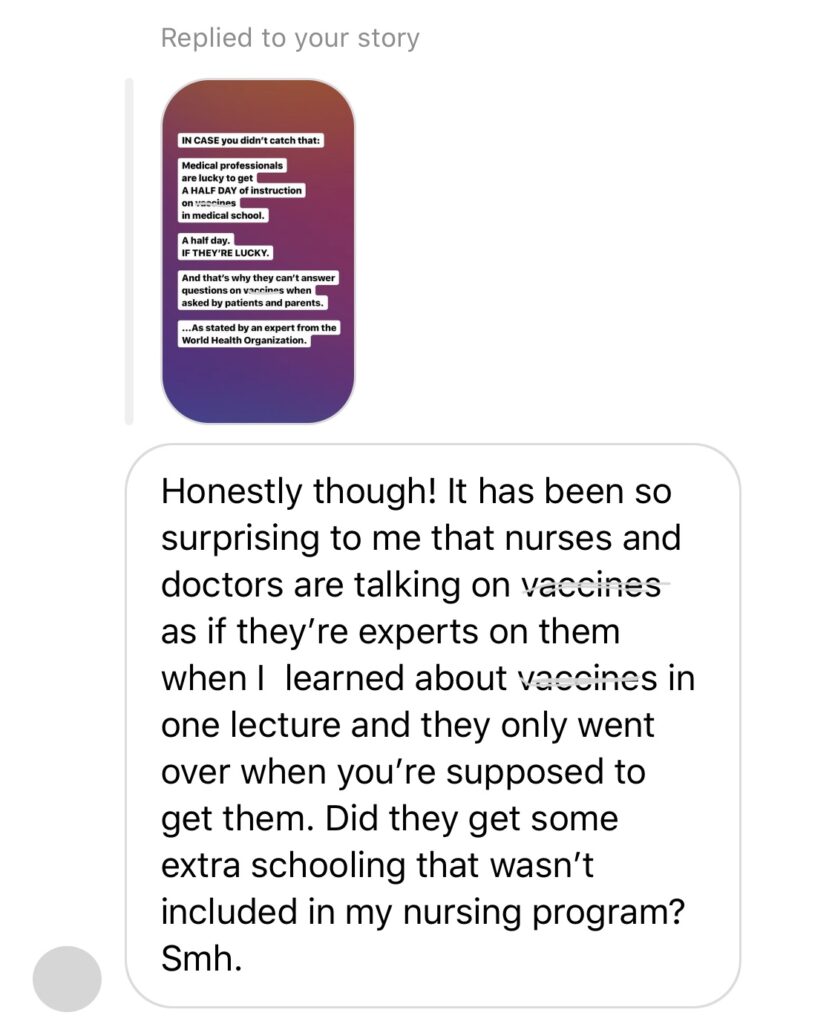
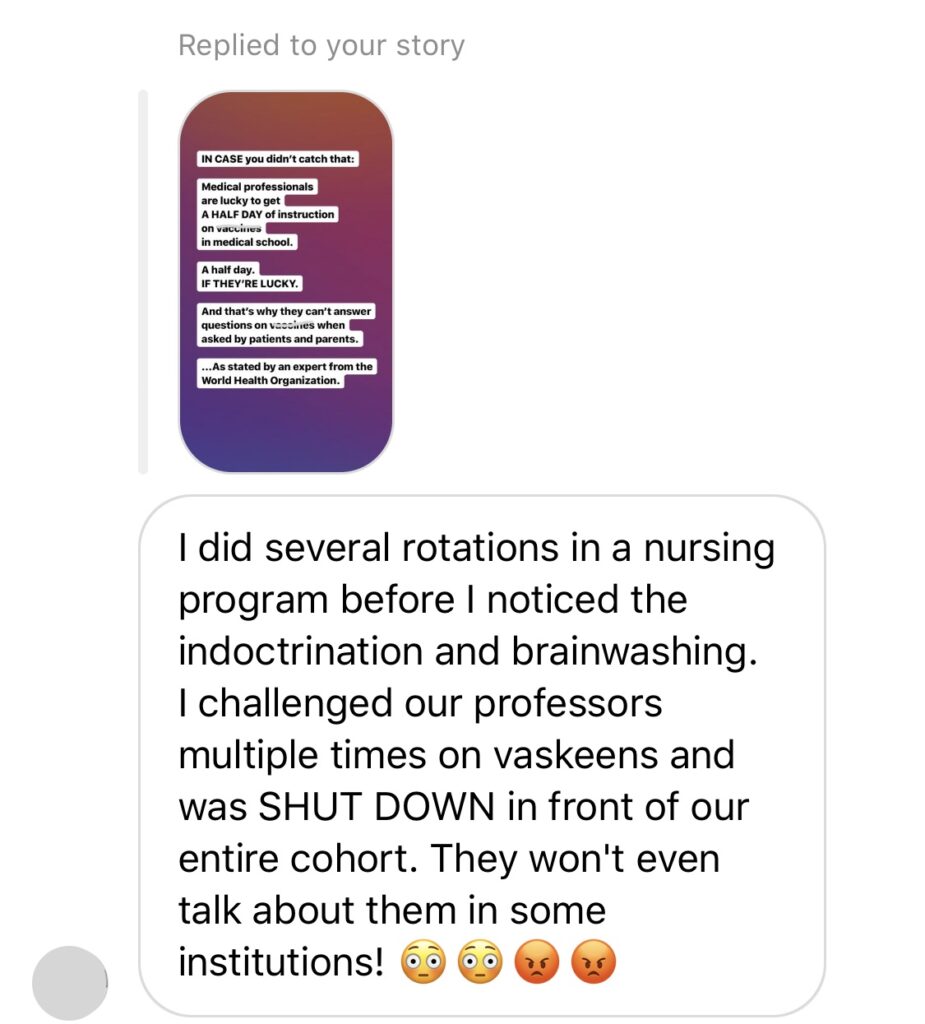
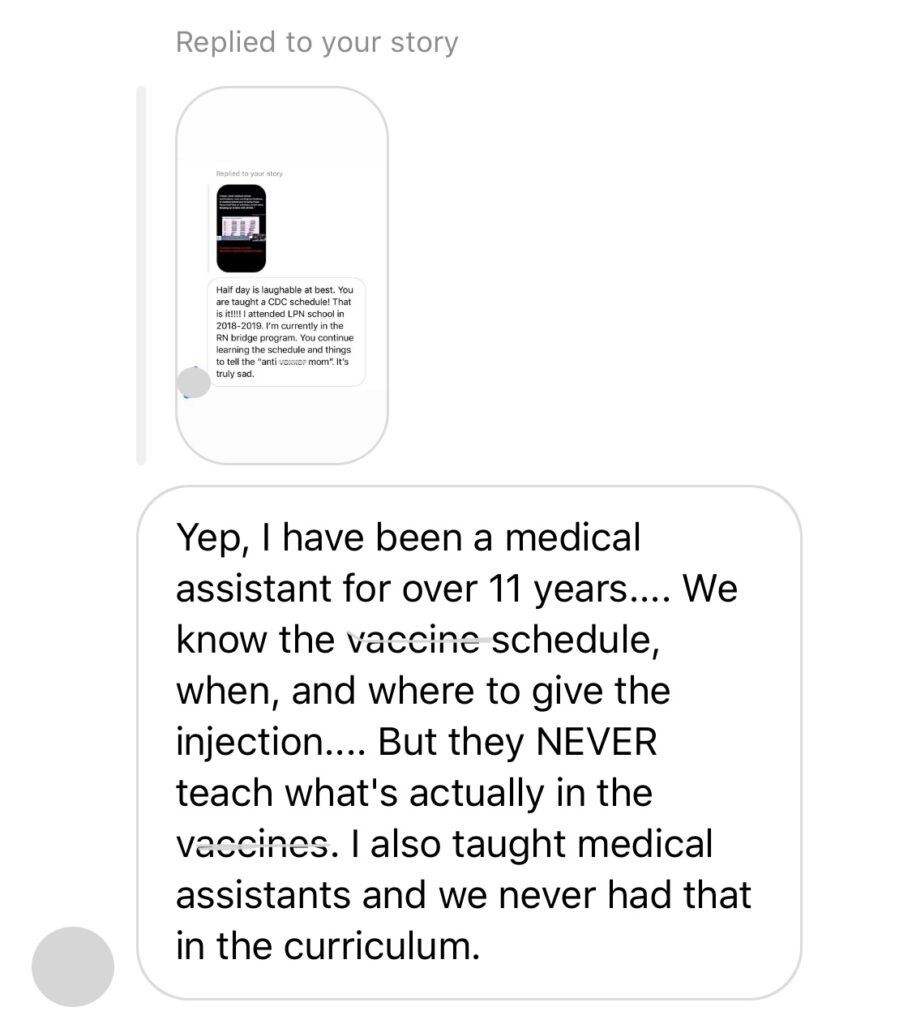
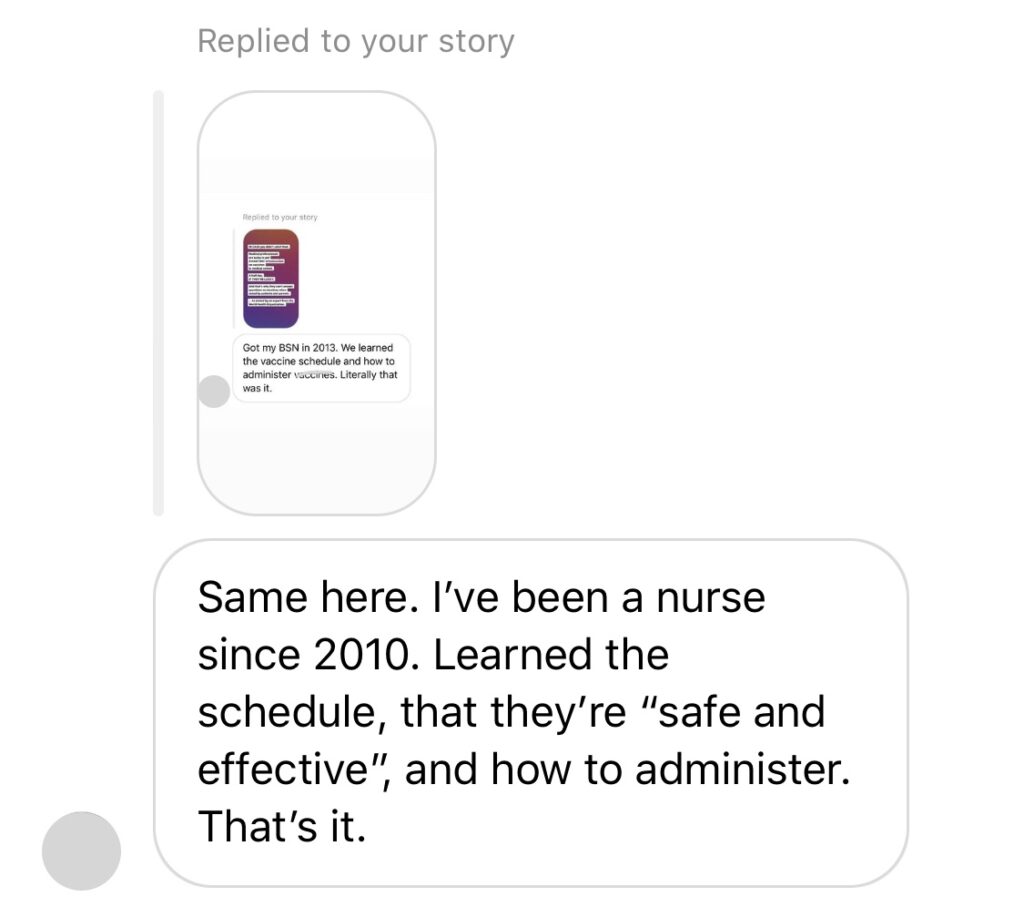
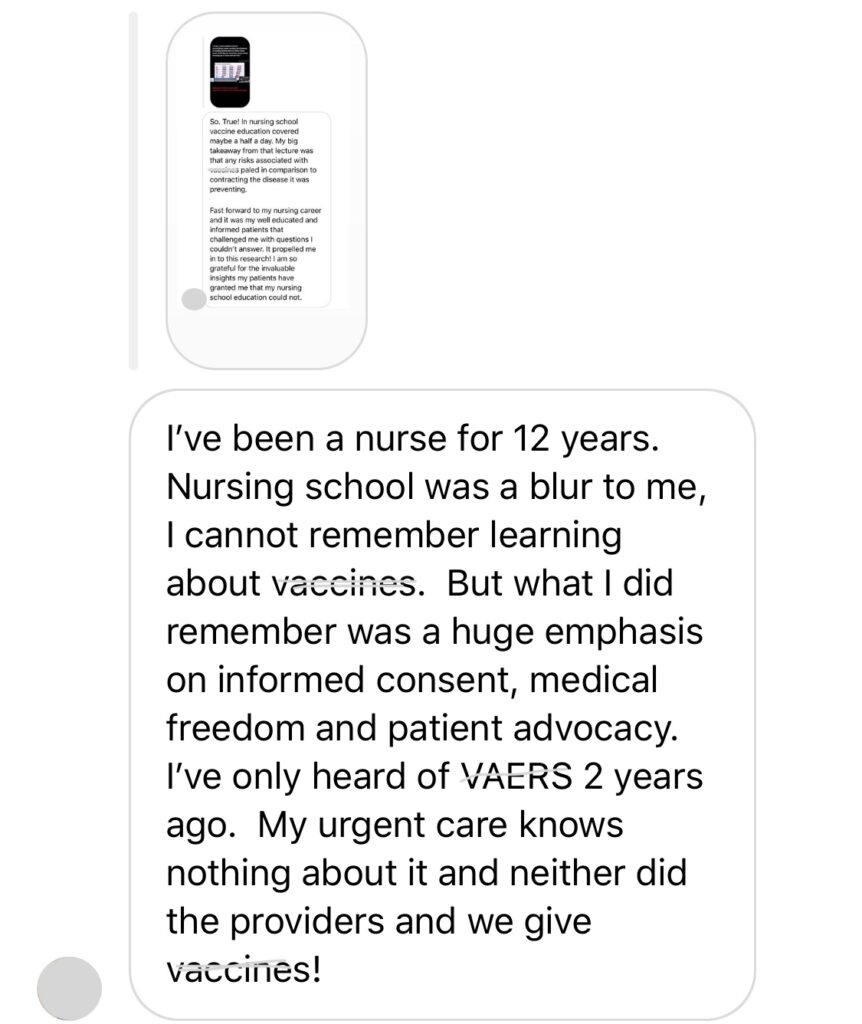
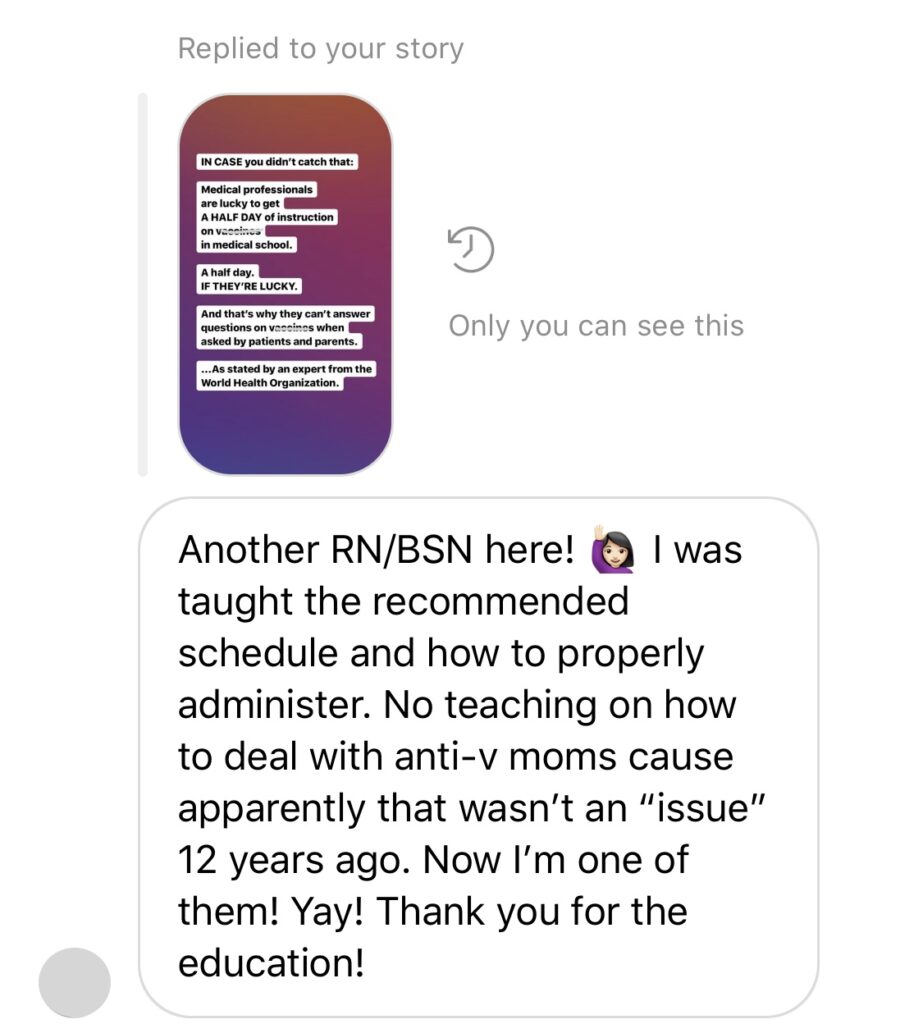
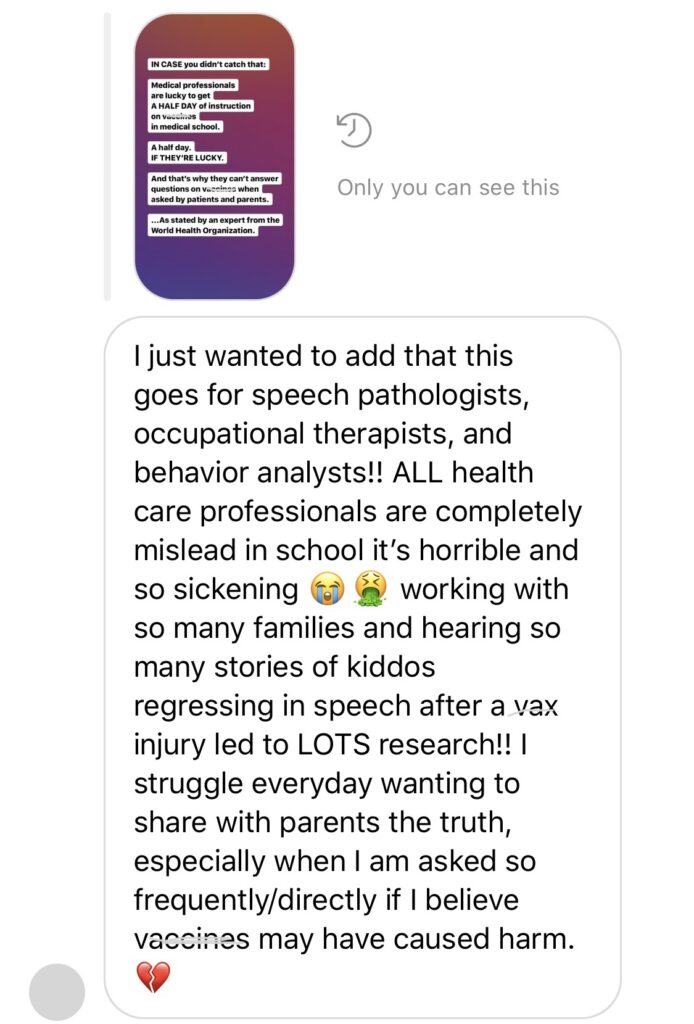
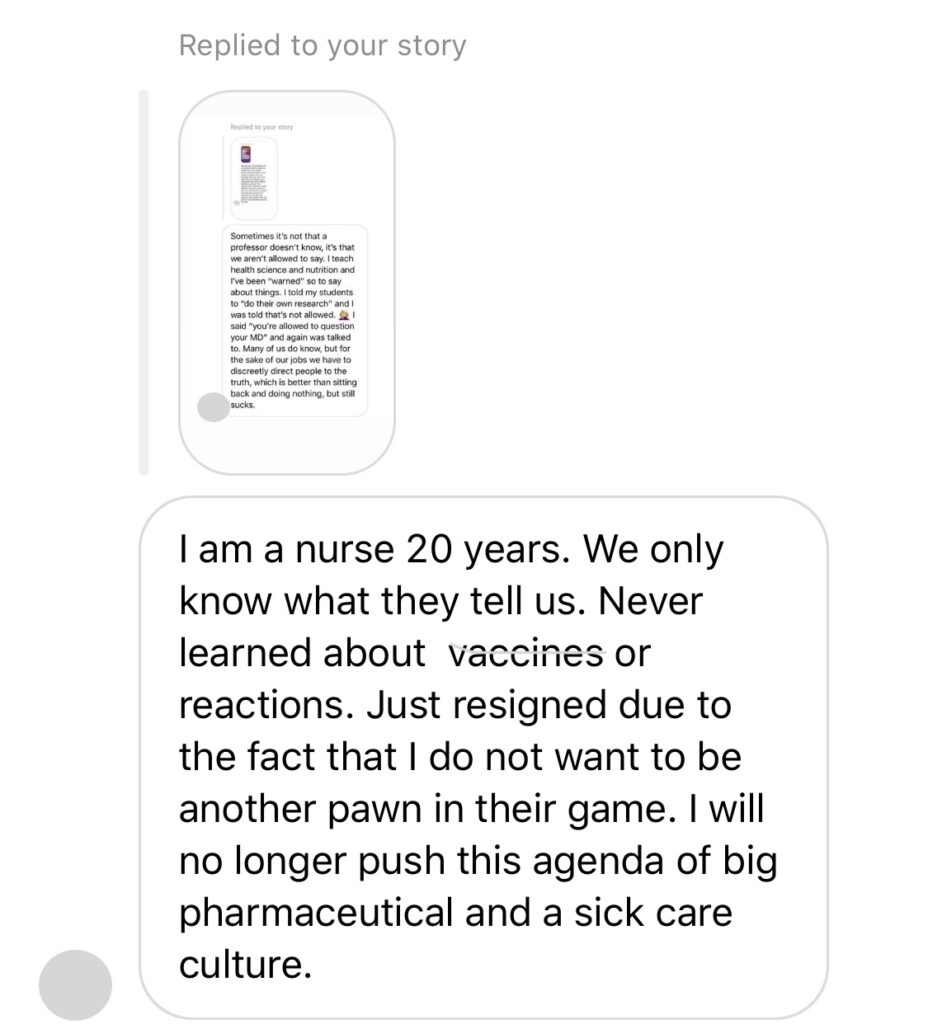
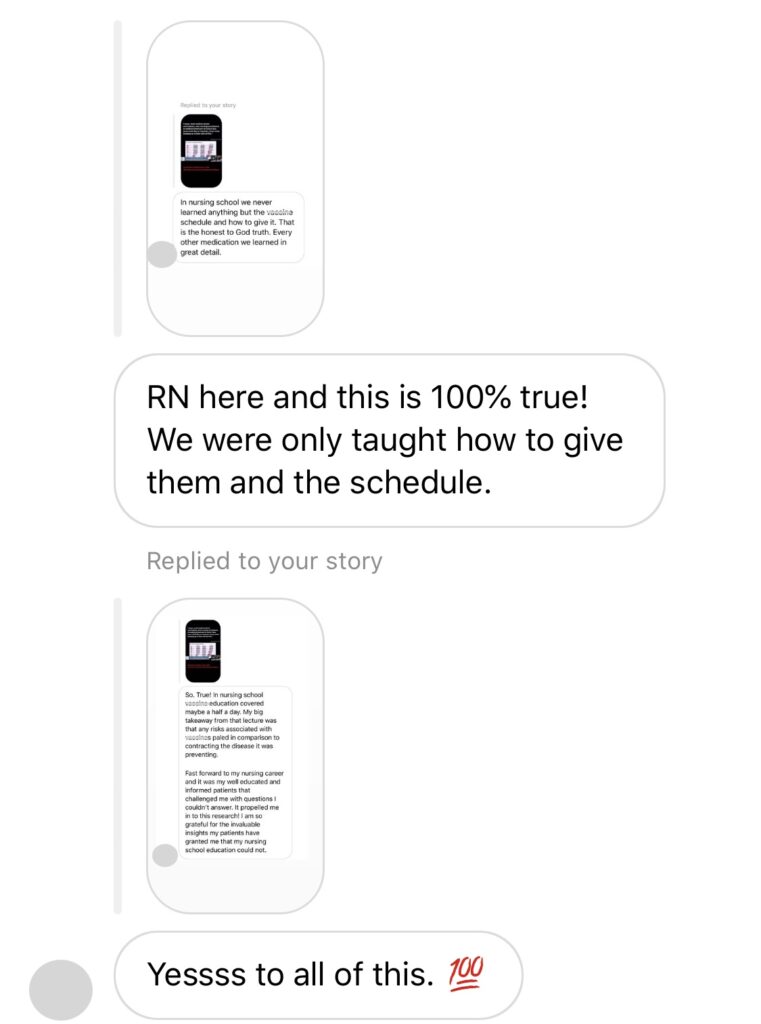
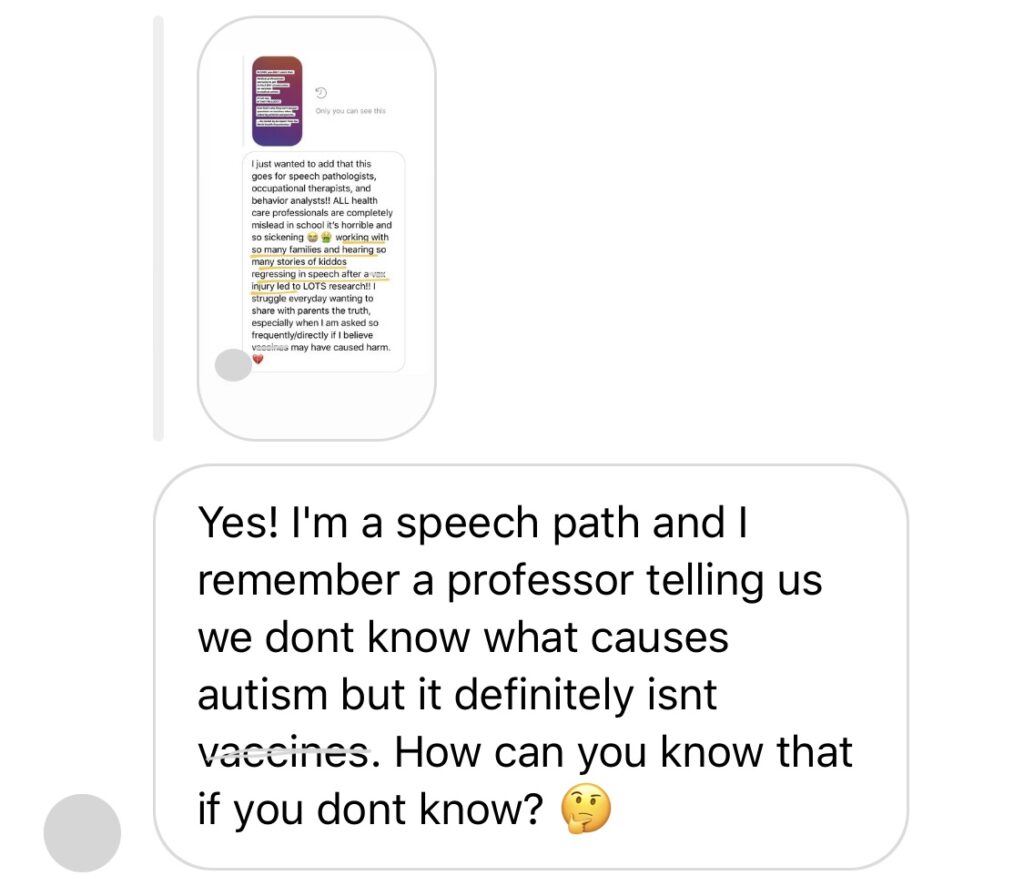
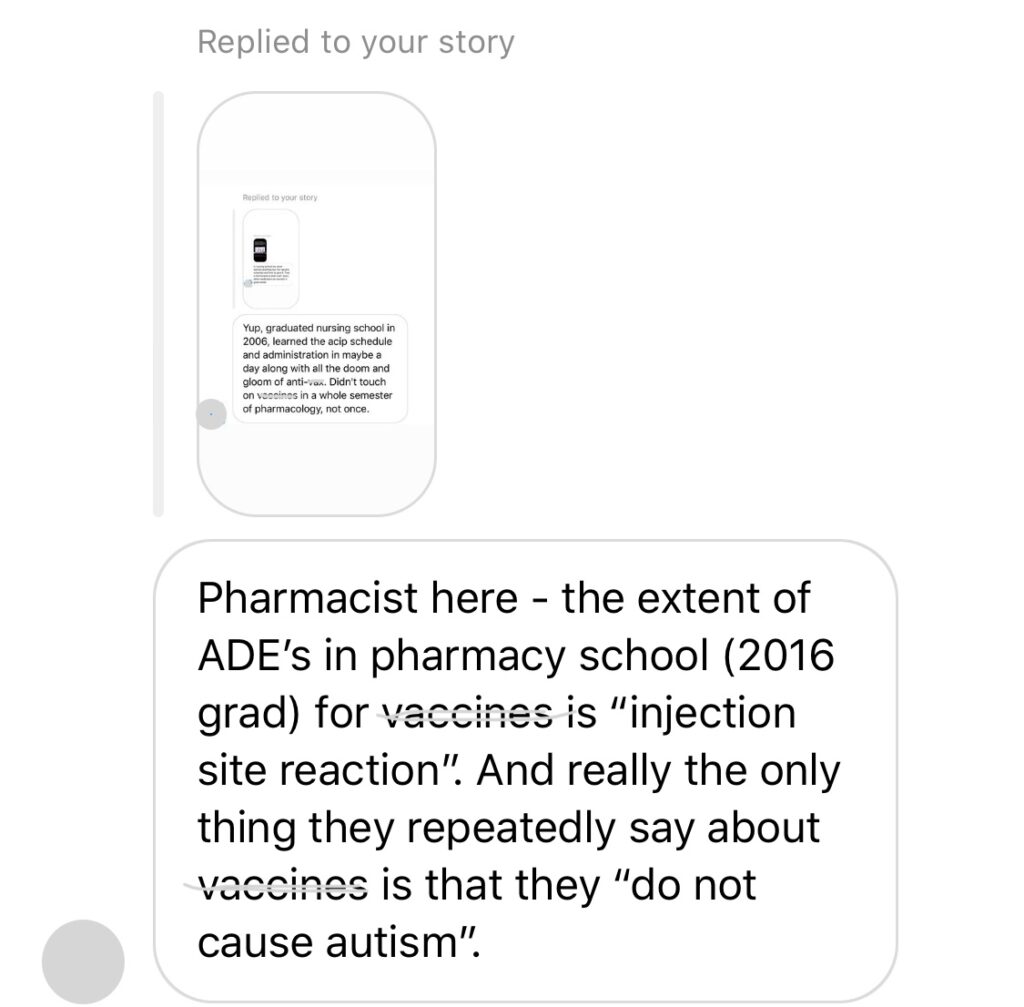
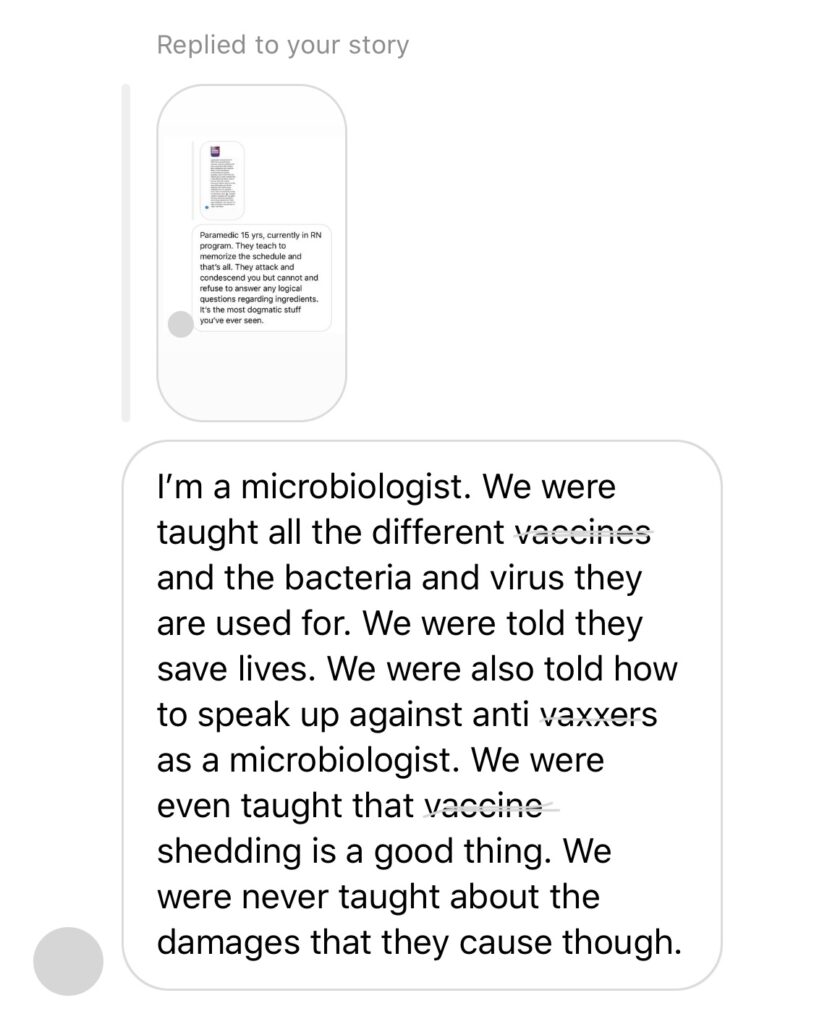
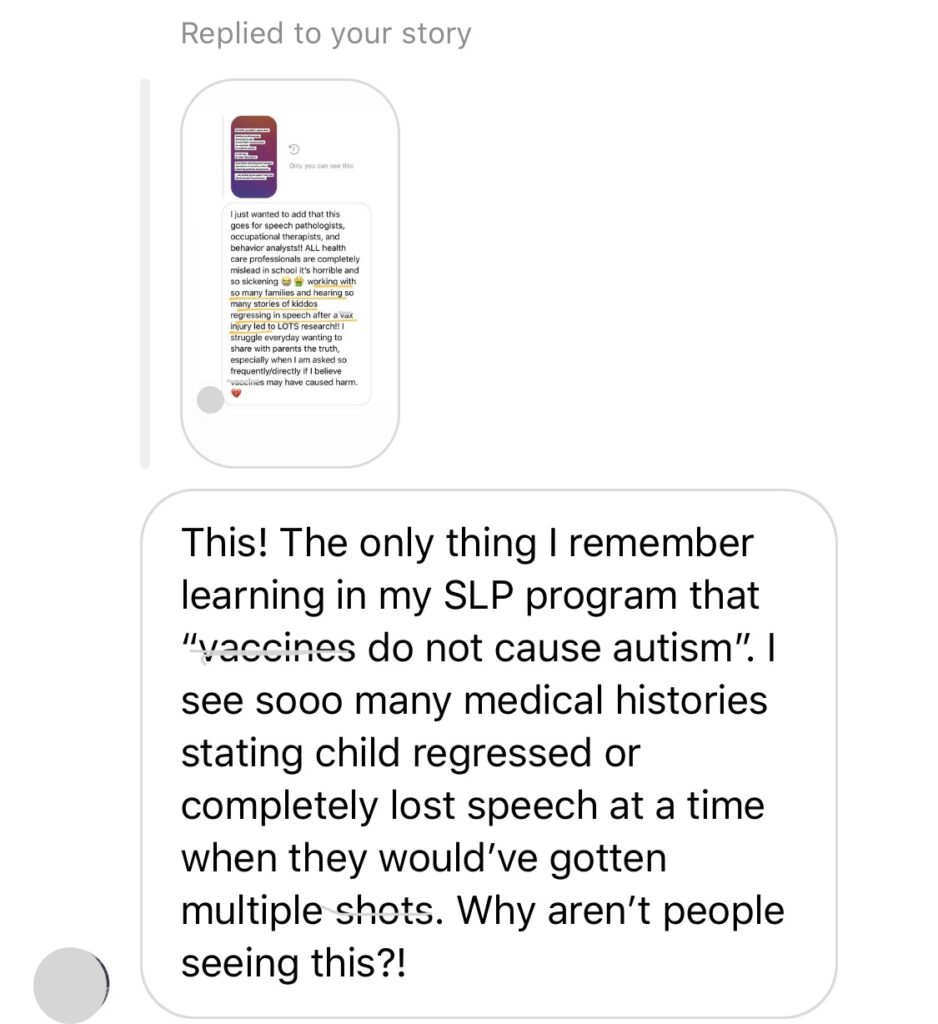
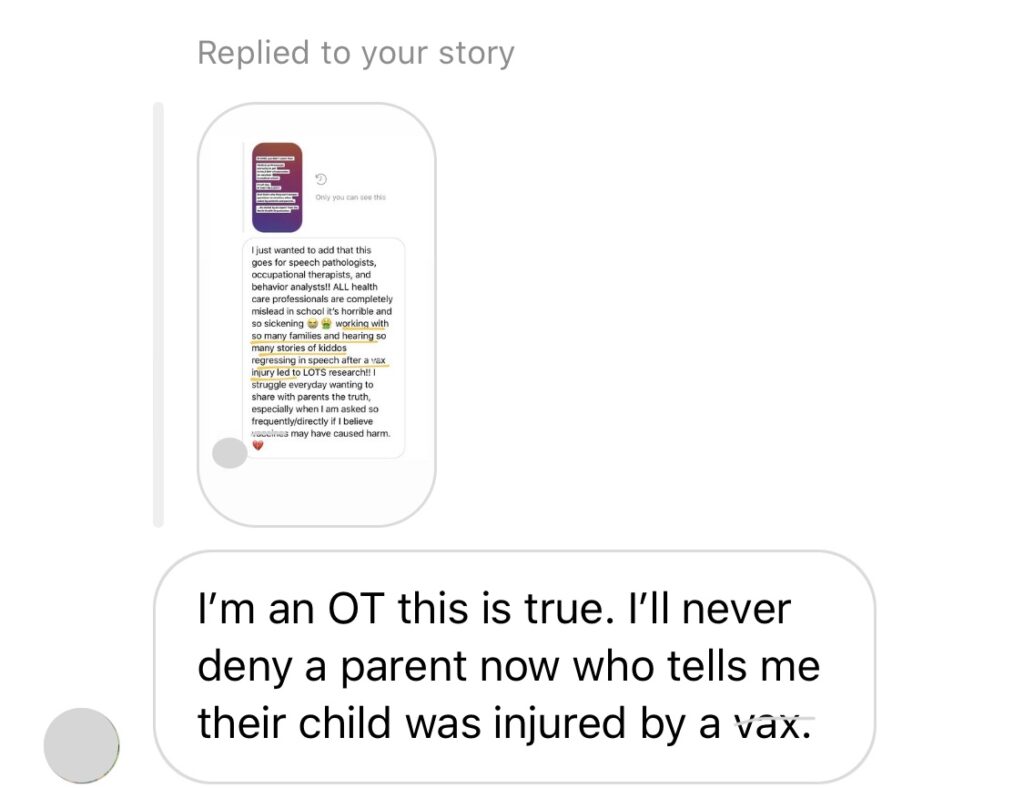
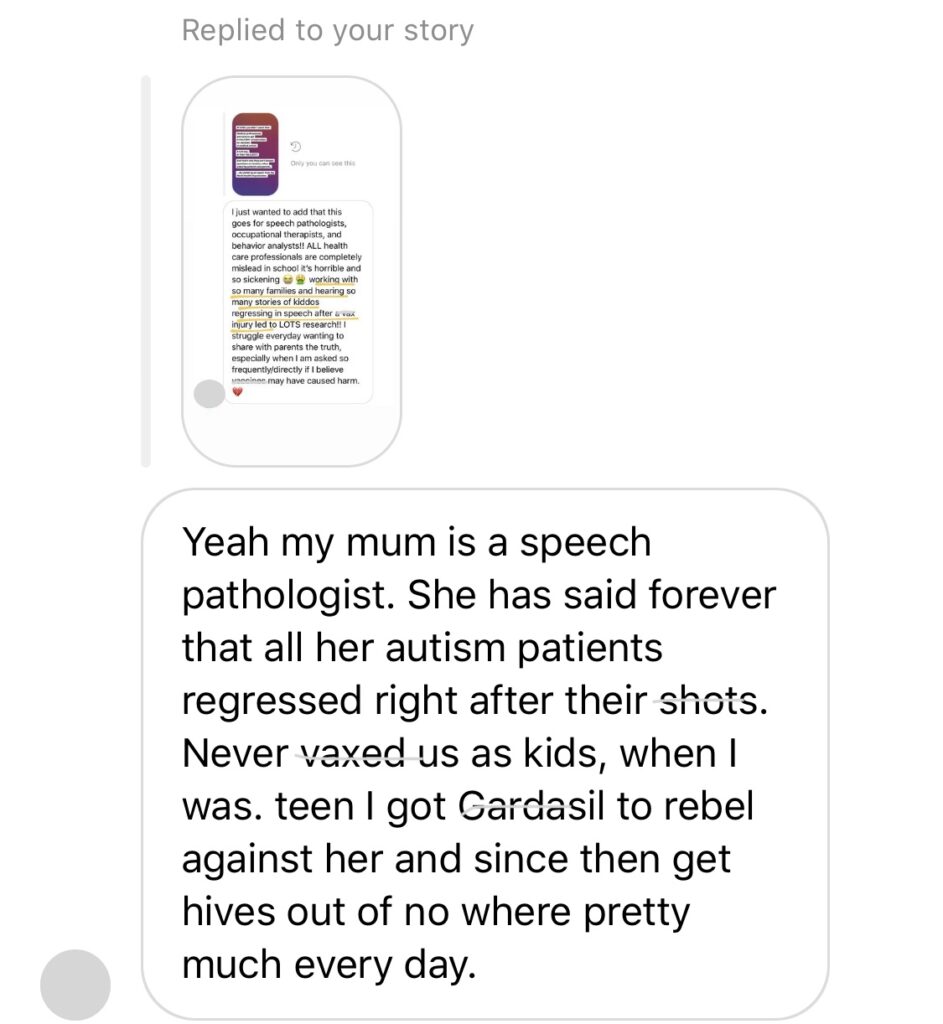
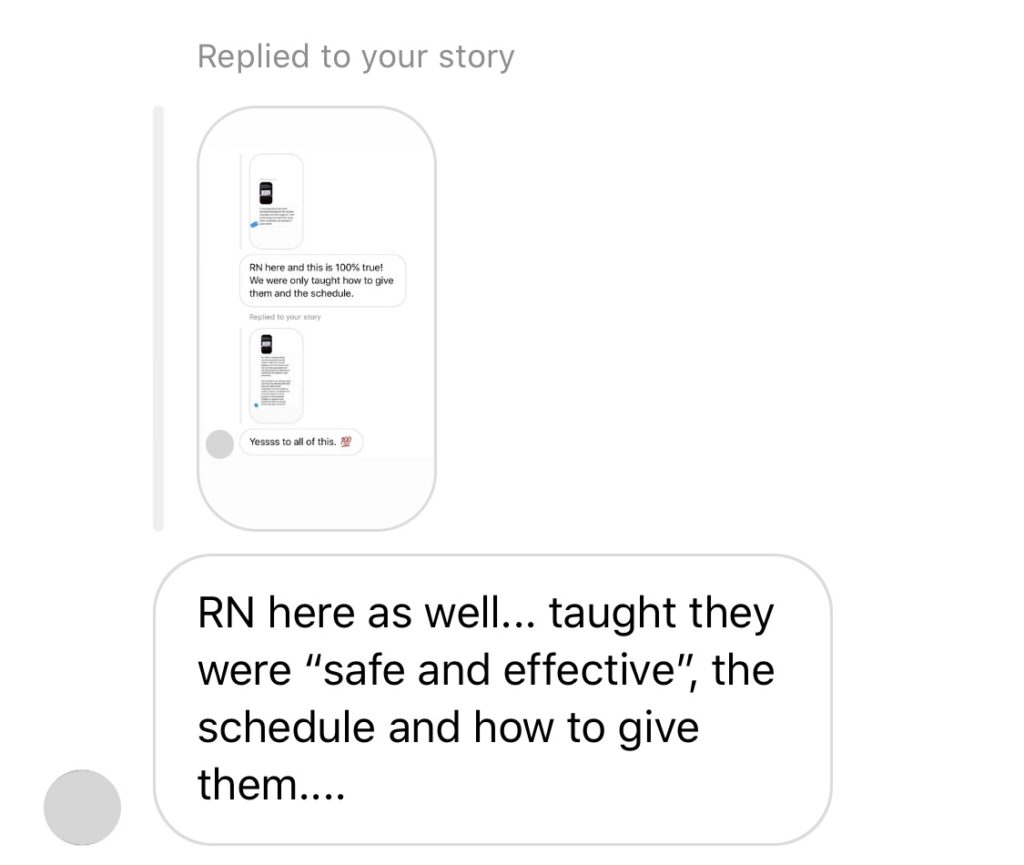
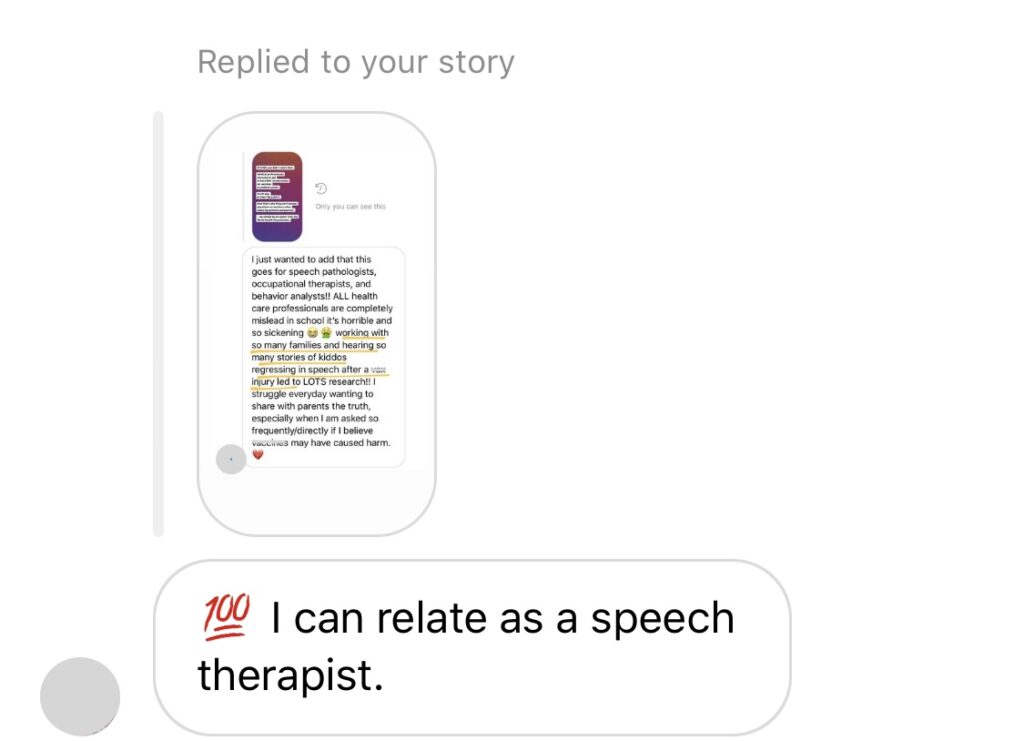
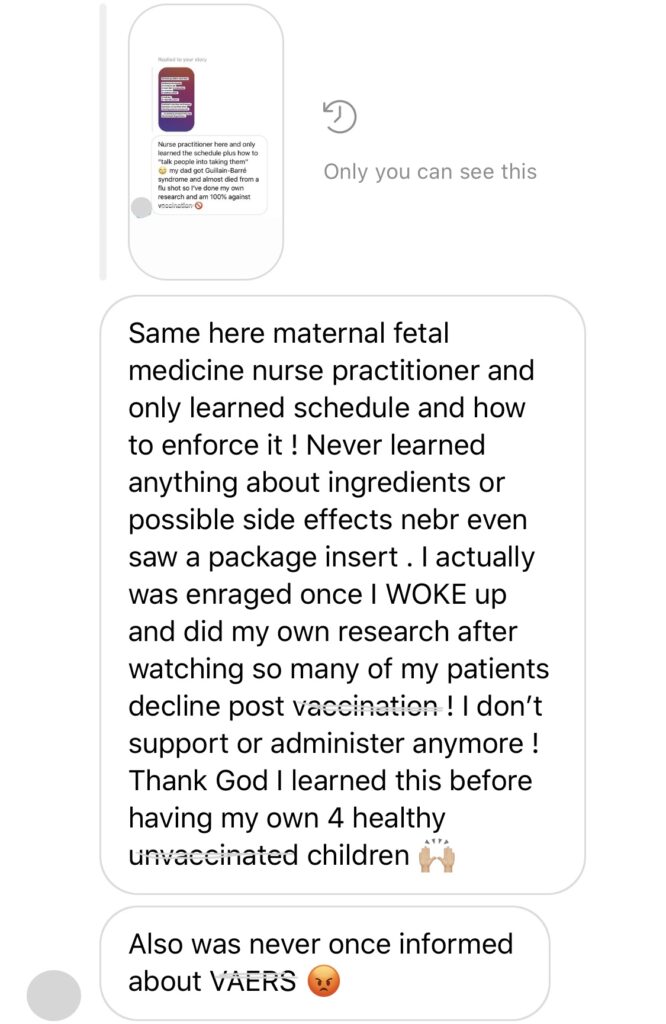
The following individual was the only one to share they had received more in depth education on the subject of vaccines, so I asked them to share a bit more detail. (In the next four images.)
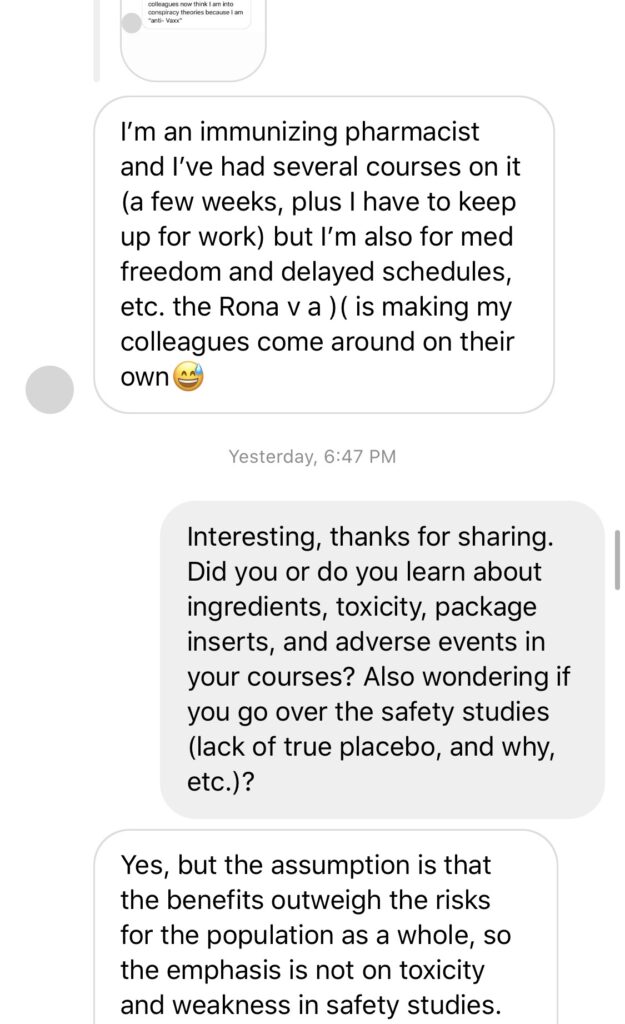
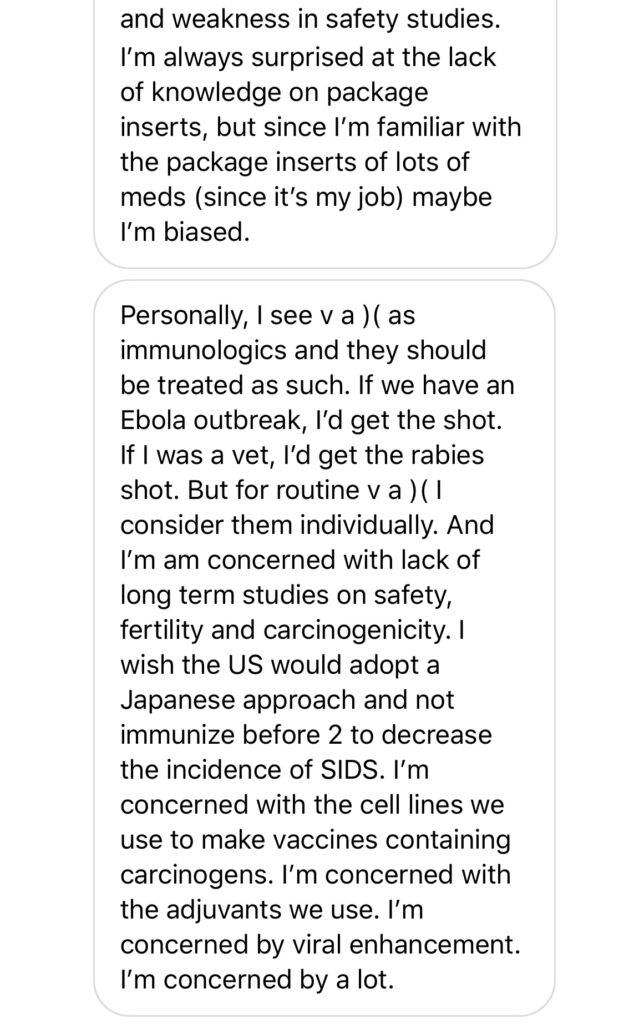
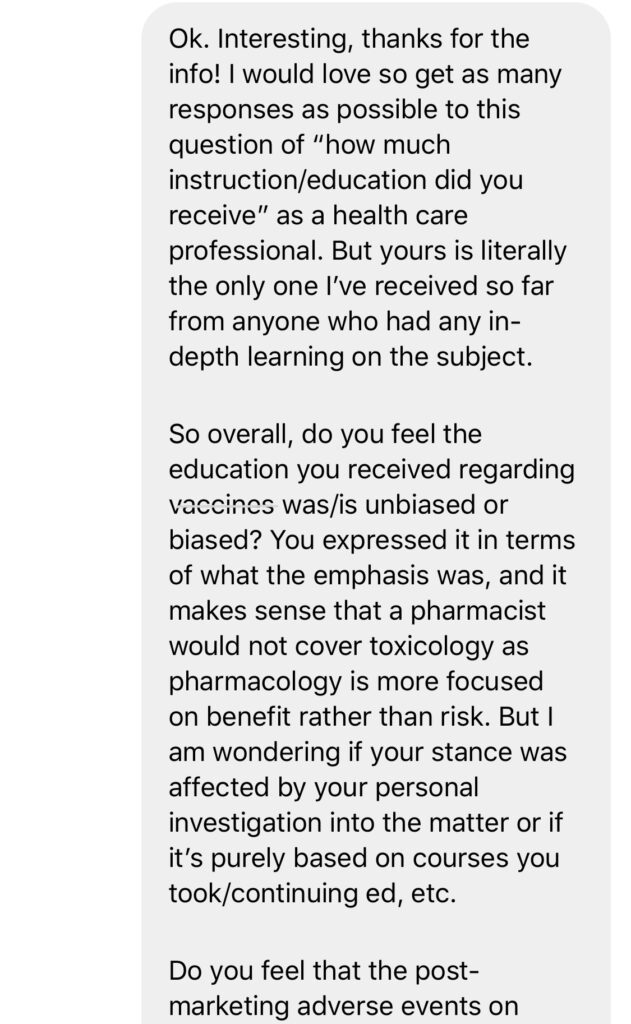
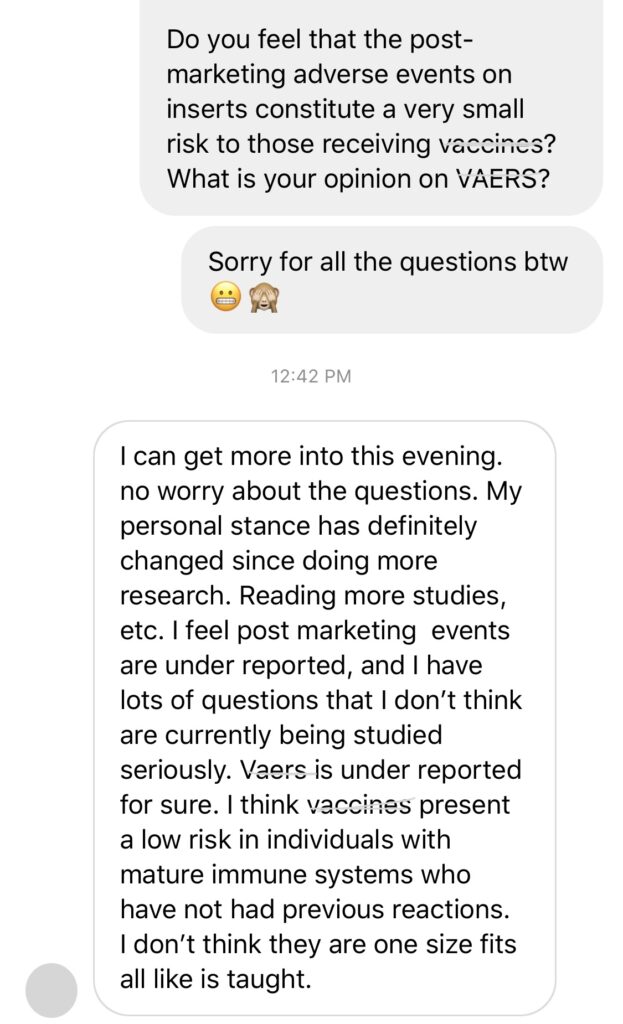
Moving onto the next message:
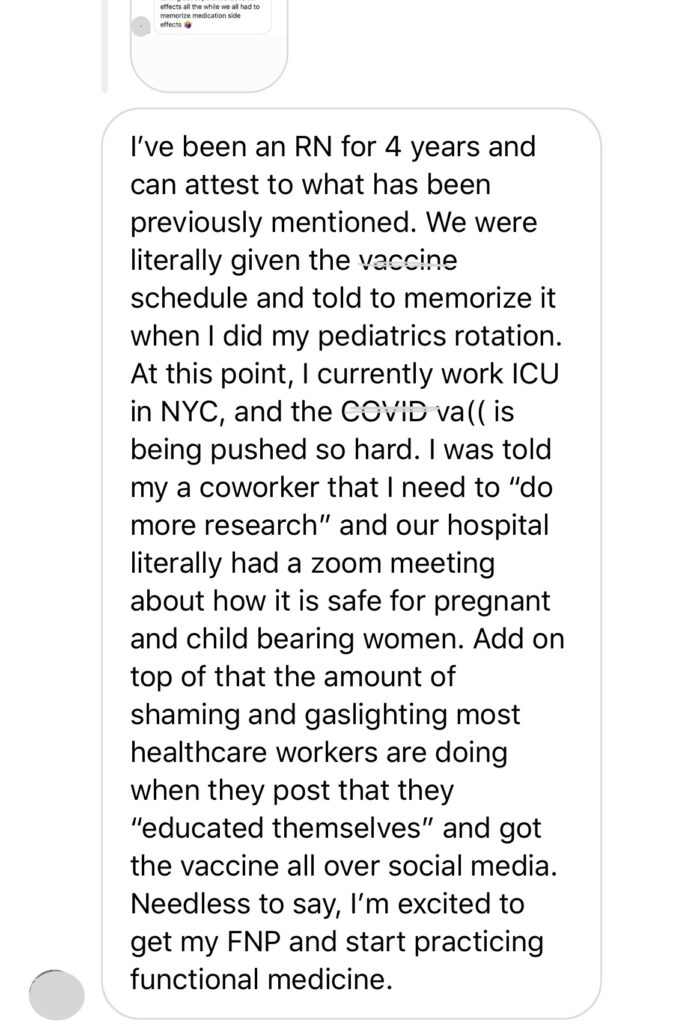
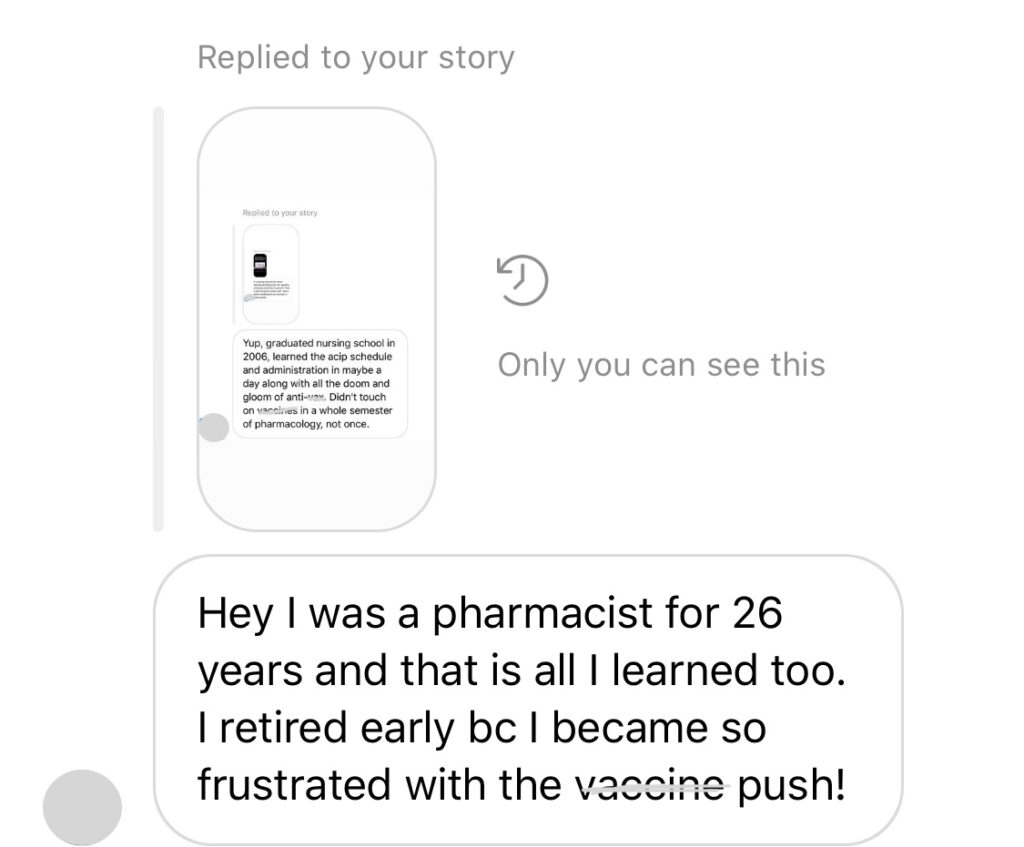
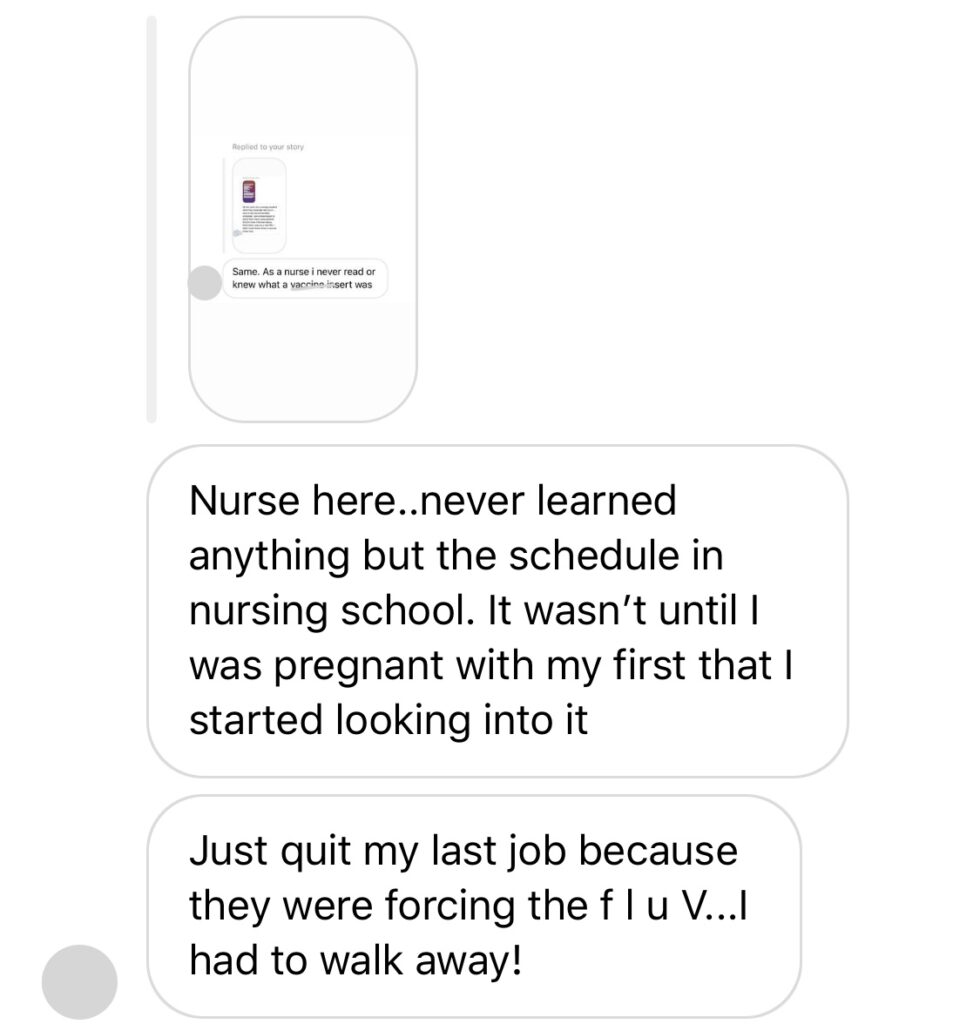
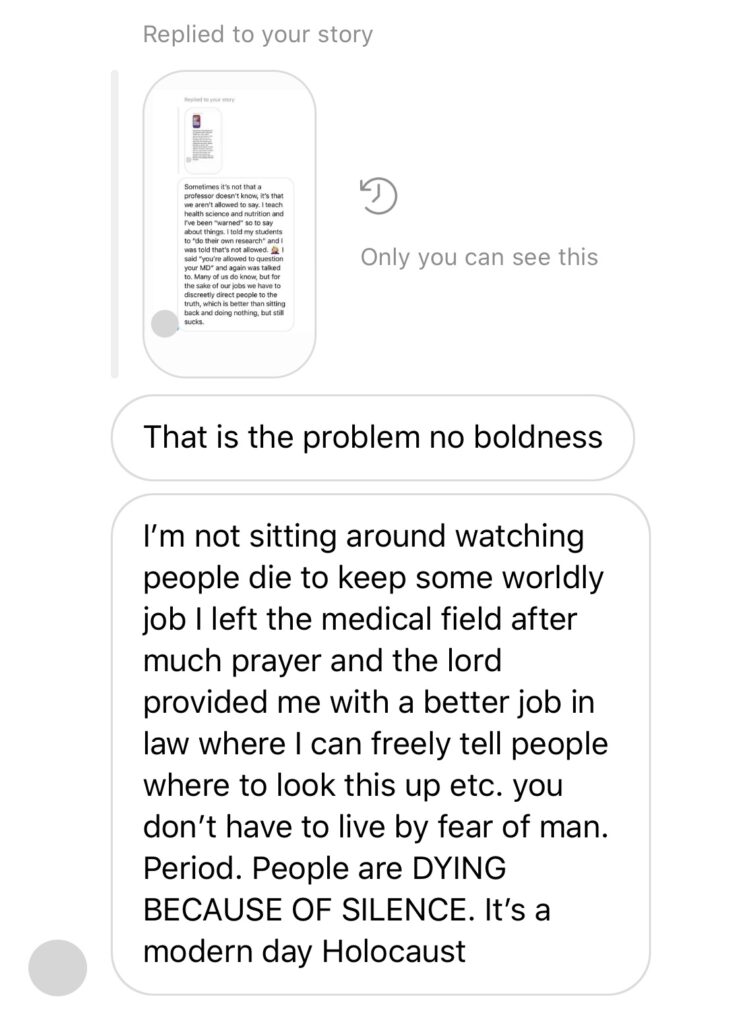
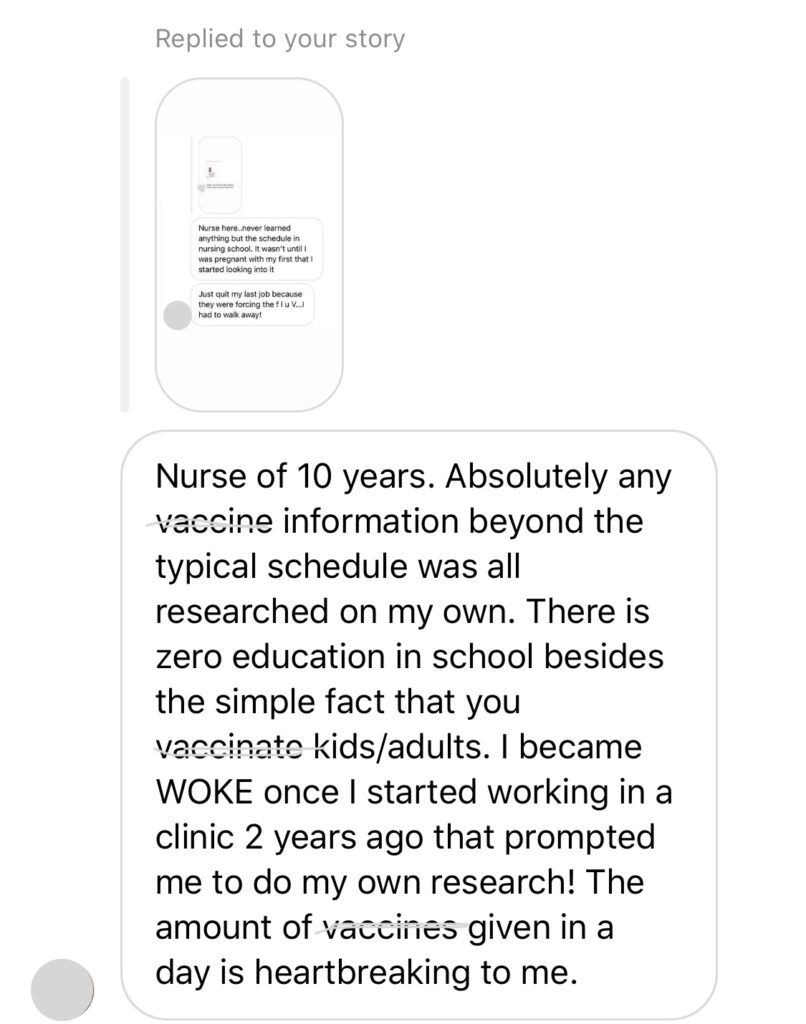
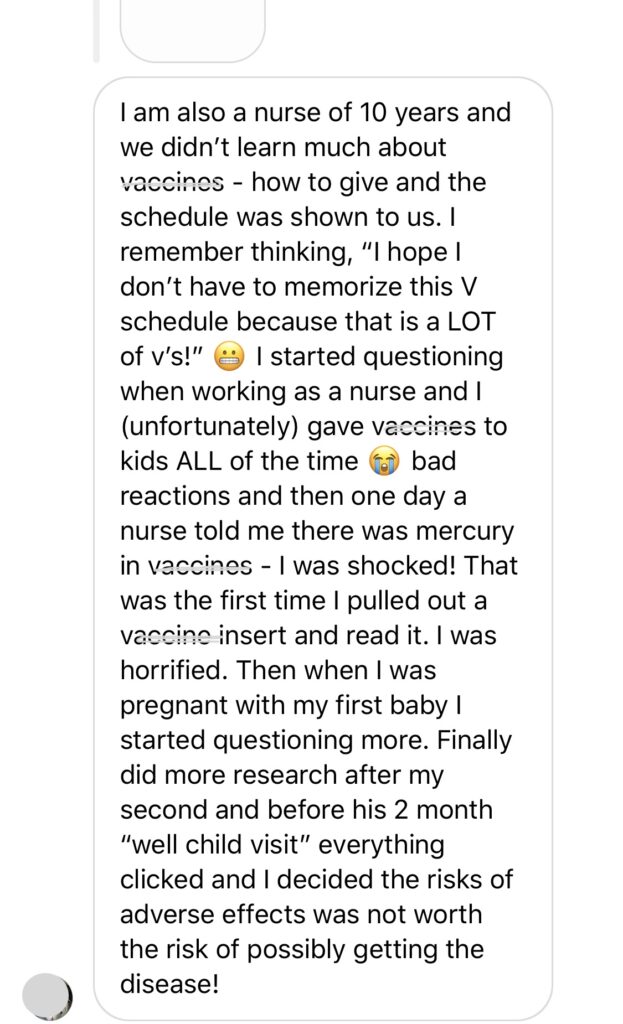
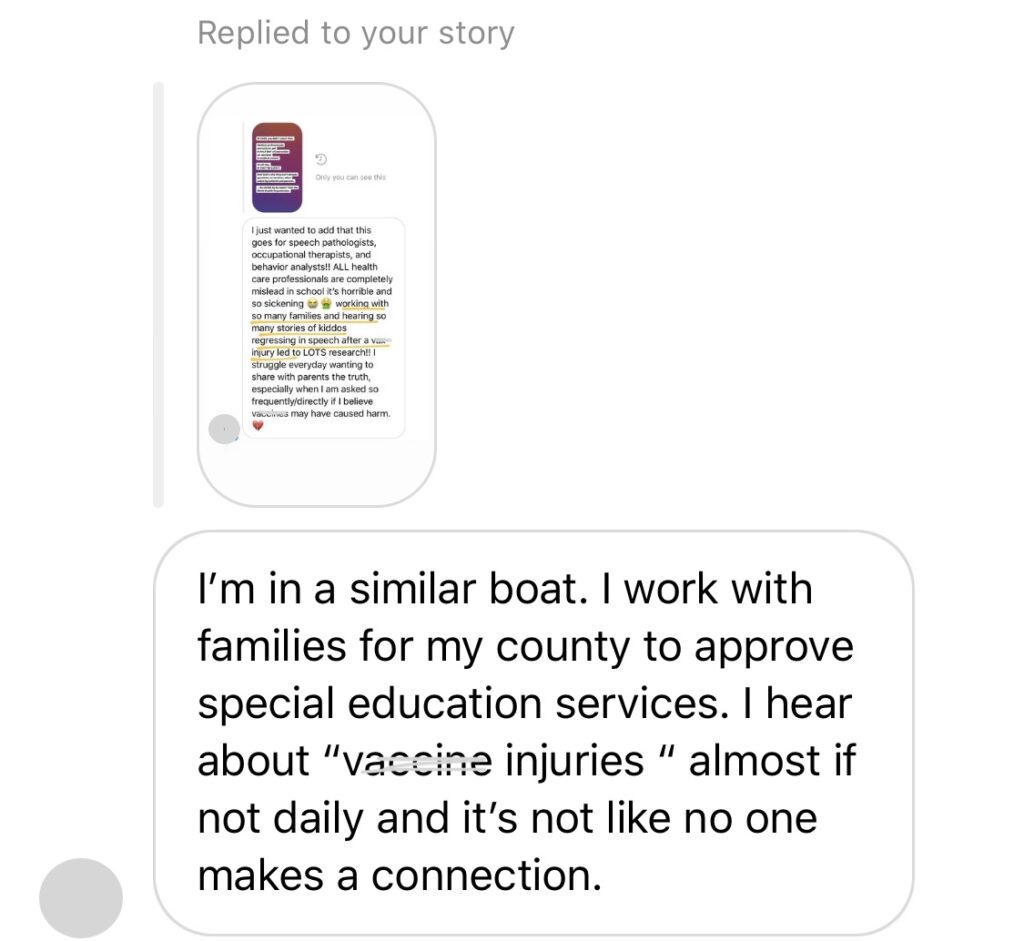
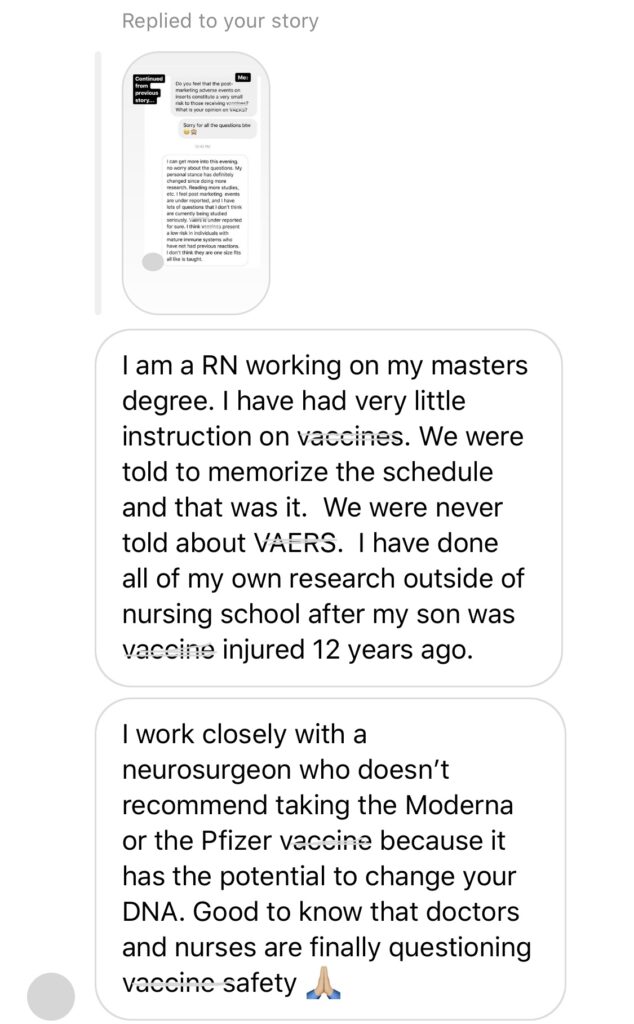
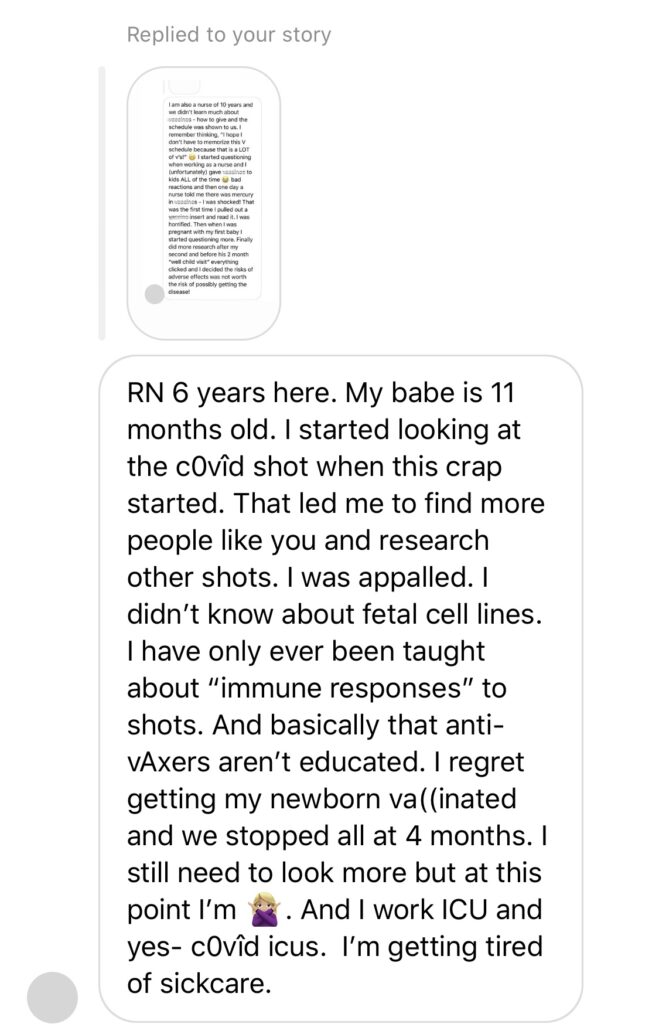
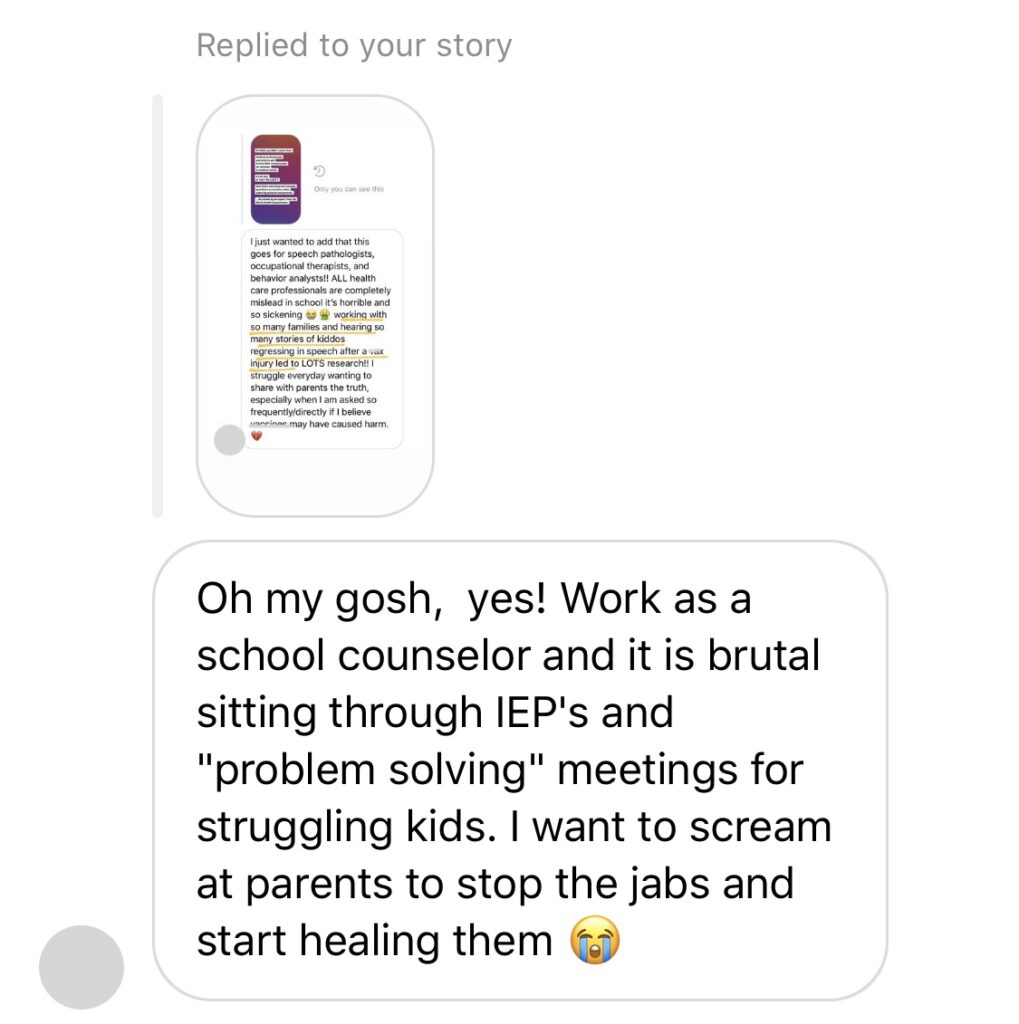
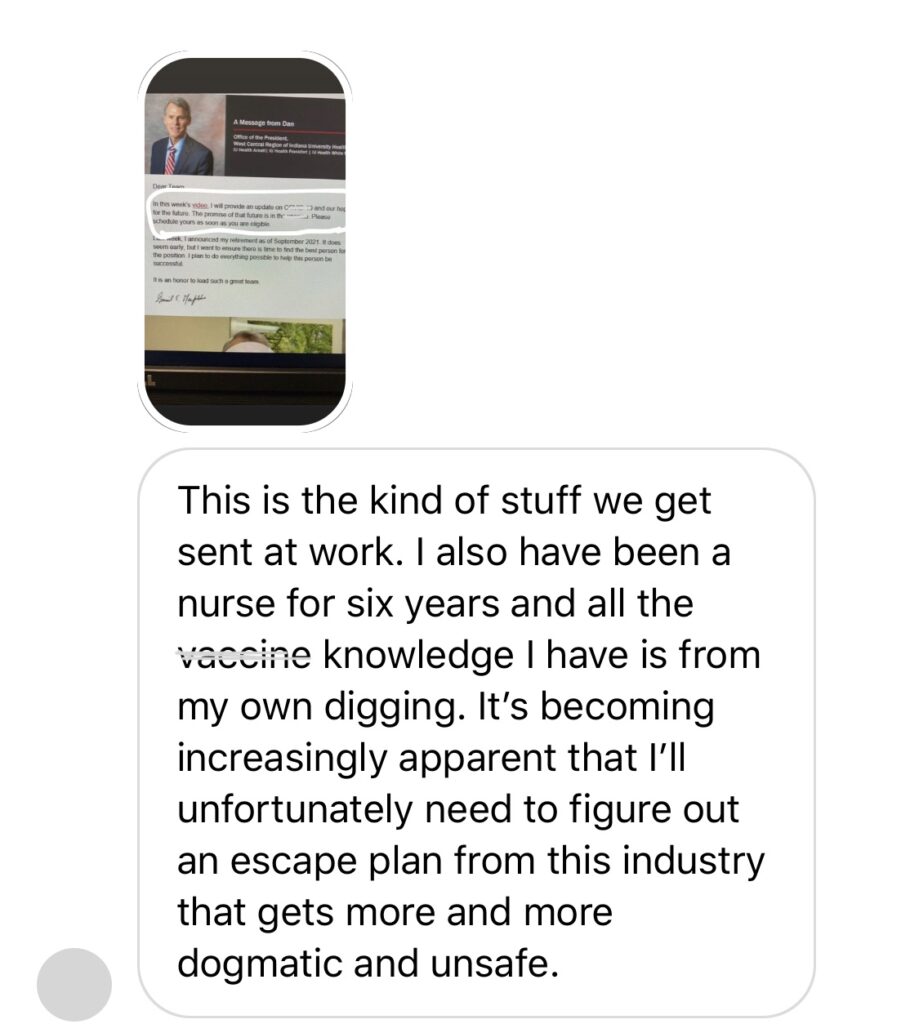
Here’s a portion of the screen shot shared with me by the previous individual:

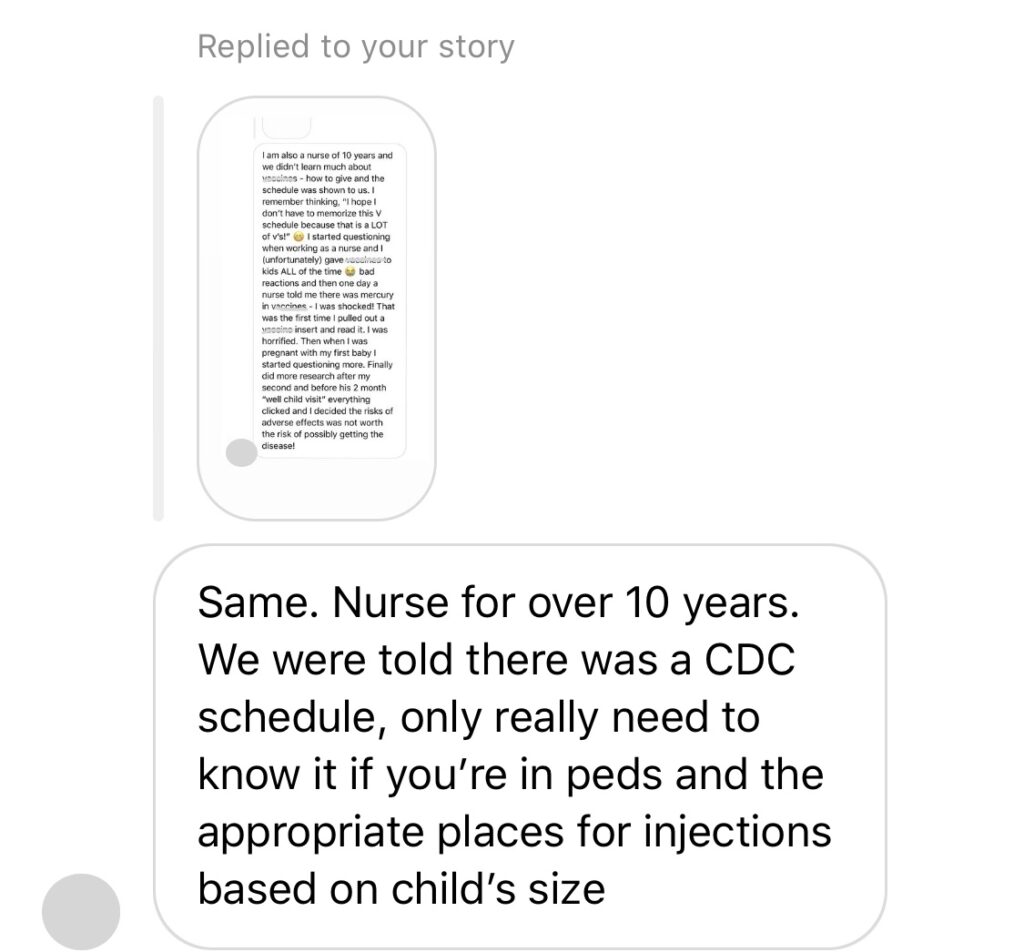
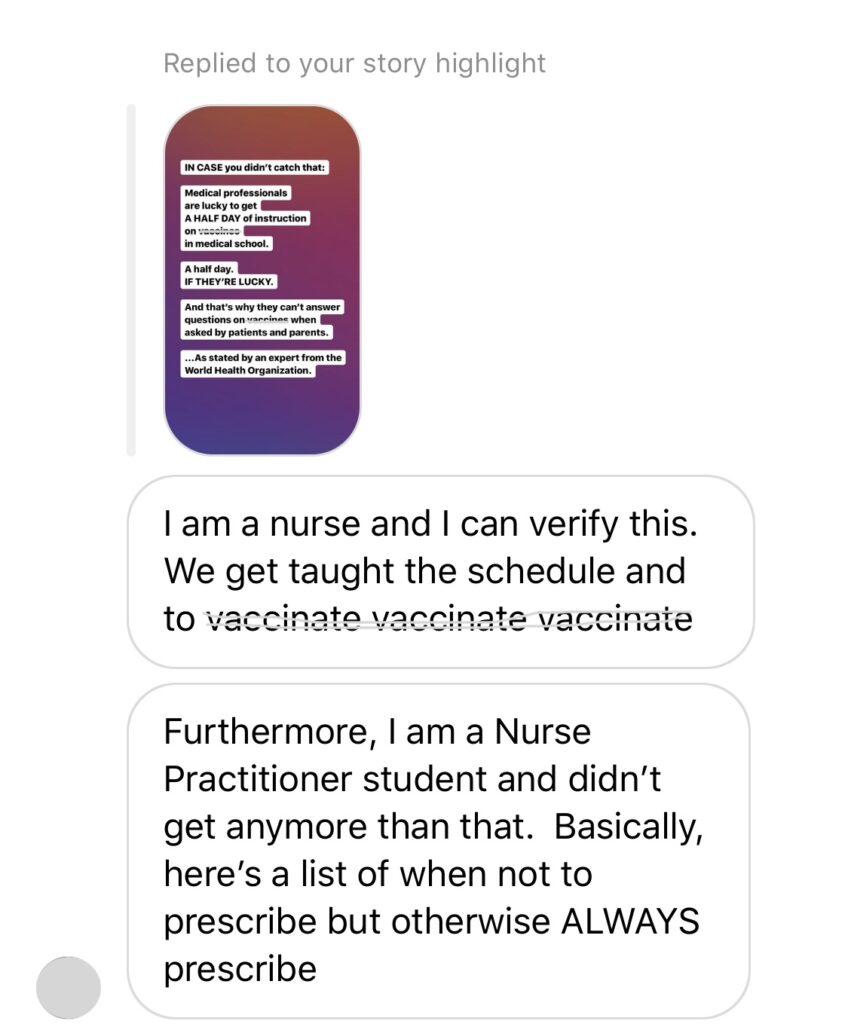
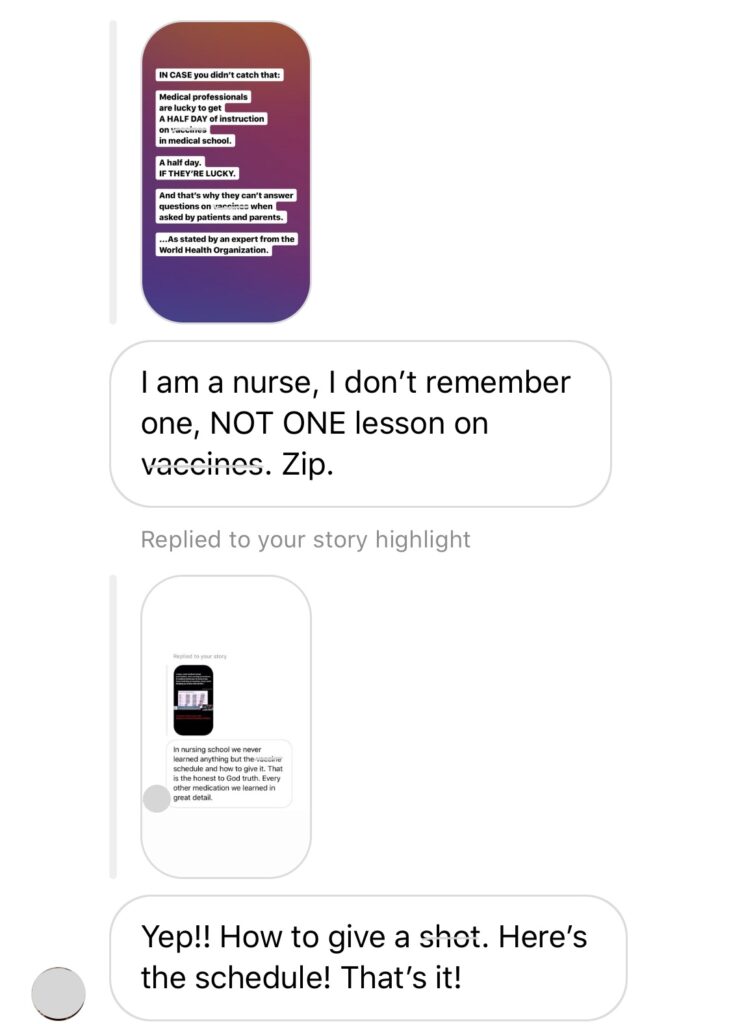
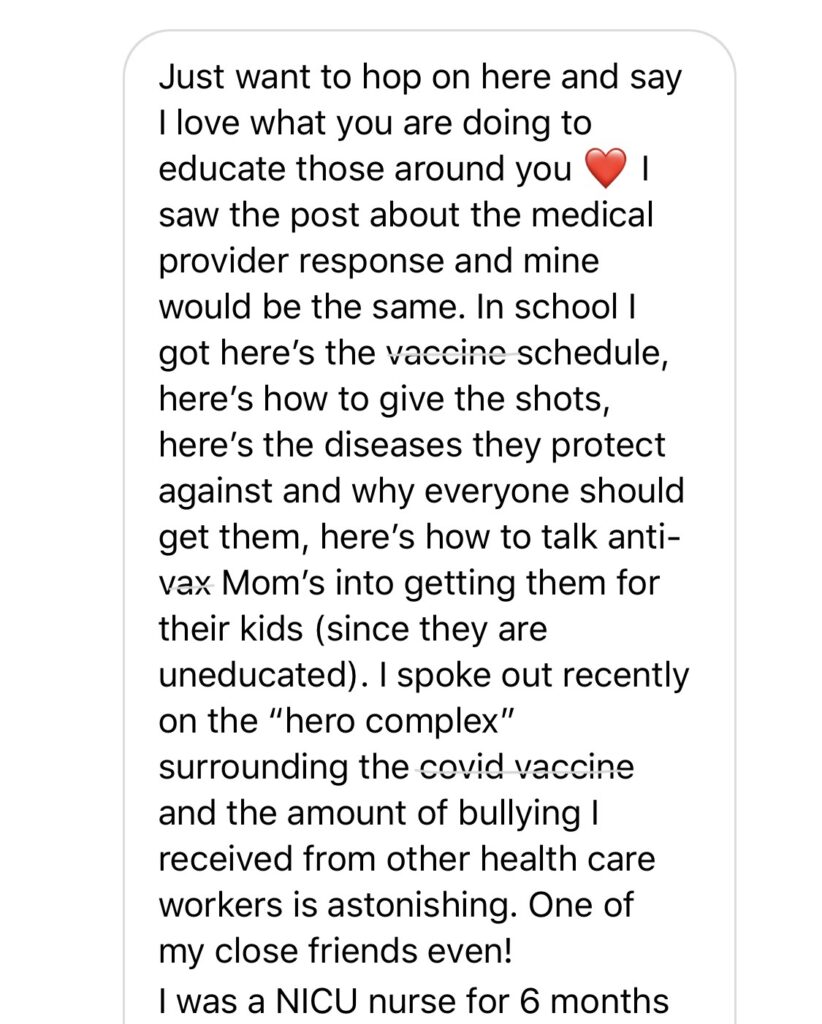

And that’s that.
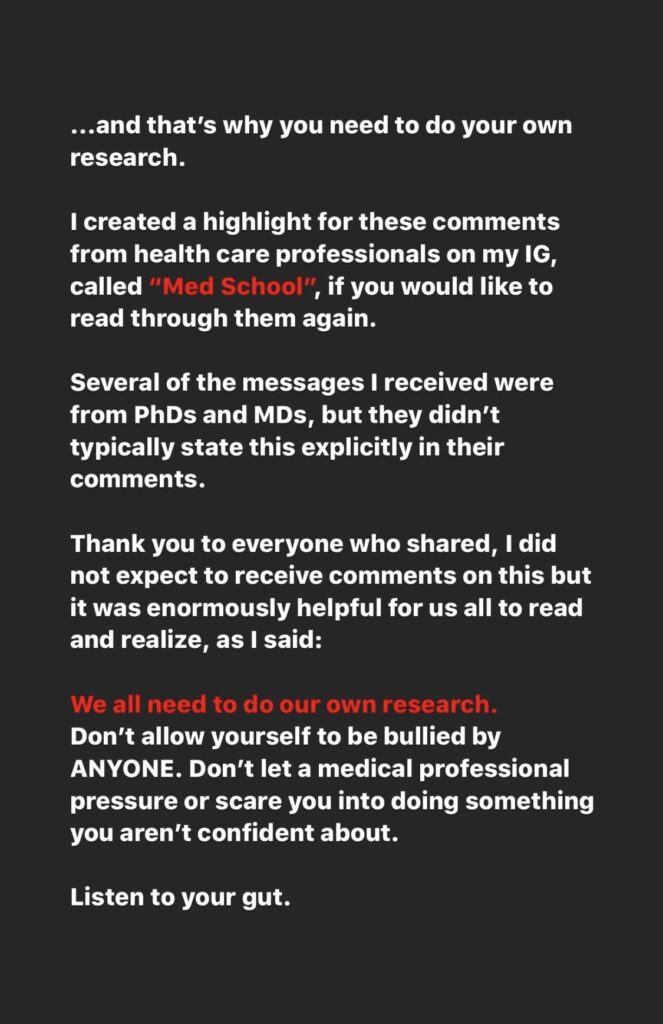
I hope this was illuminating and educational. The next time someone tries to belittle you regarding your lack of education on the subject of vaccines, just remember:
If you have read a vaccine insert or spent any time investigating the research on vaccine ingredients and adverse events, or know about VAERS (or the VICP for that matter), you are more educated on vaccines than most (if not, all) health care/medical professionals.